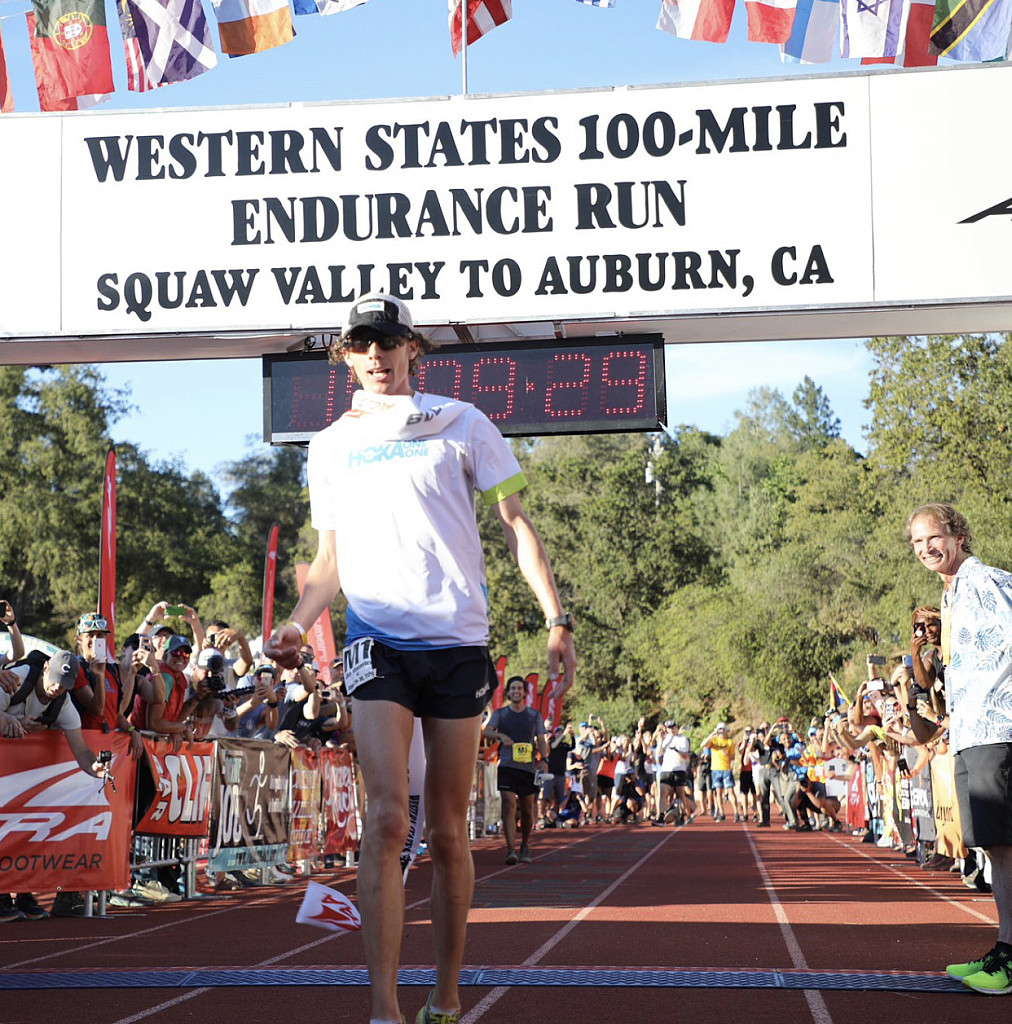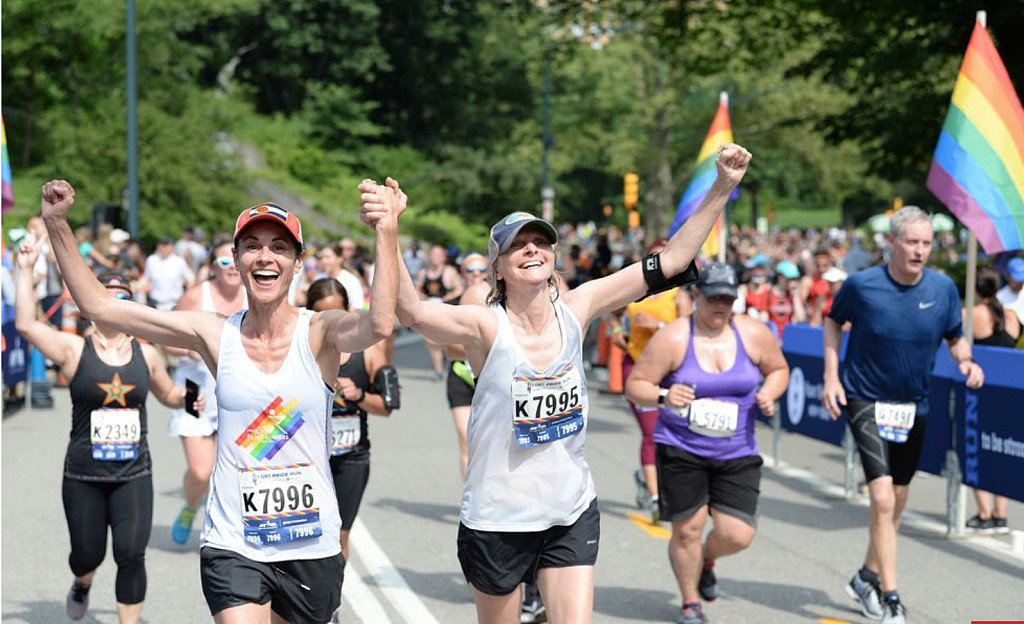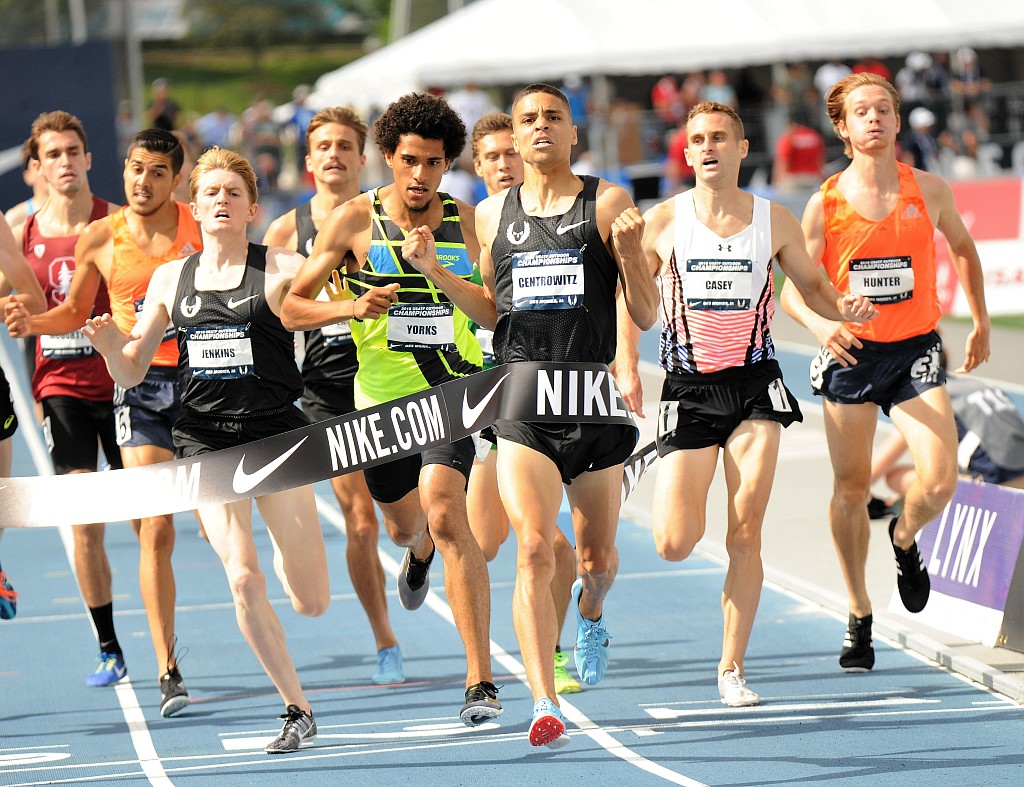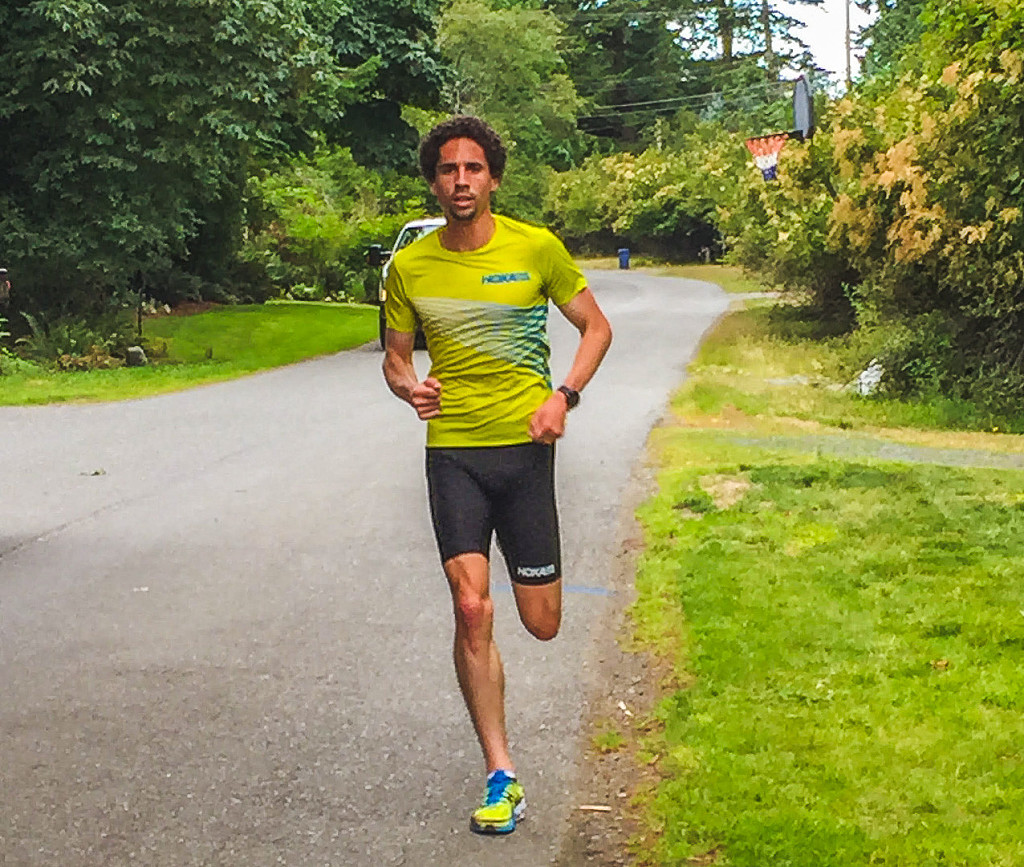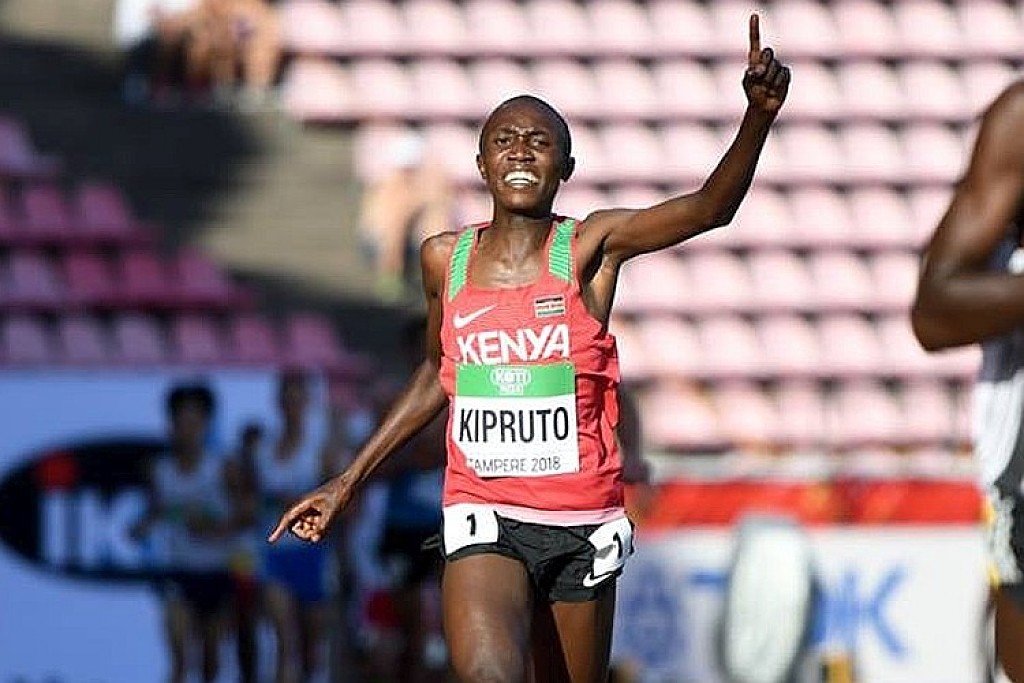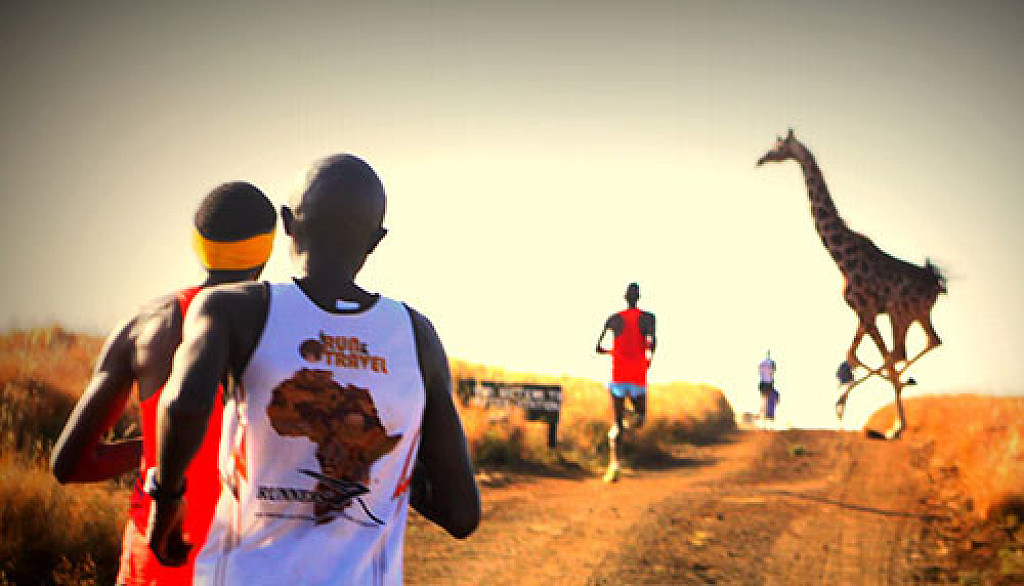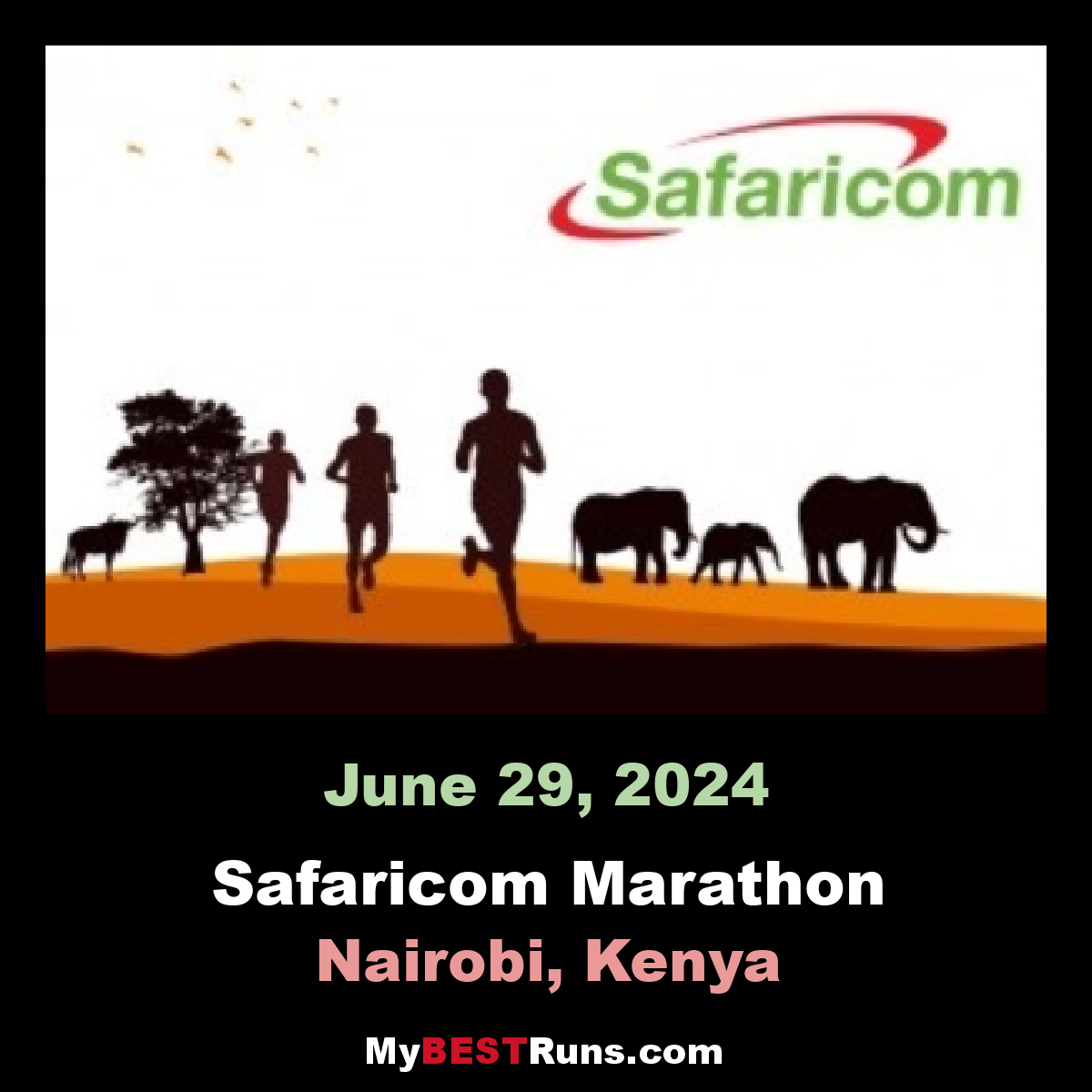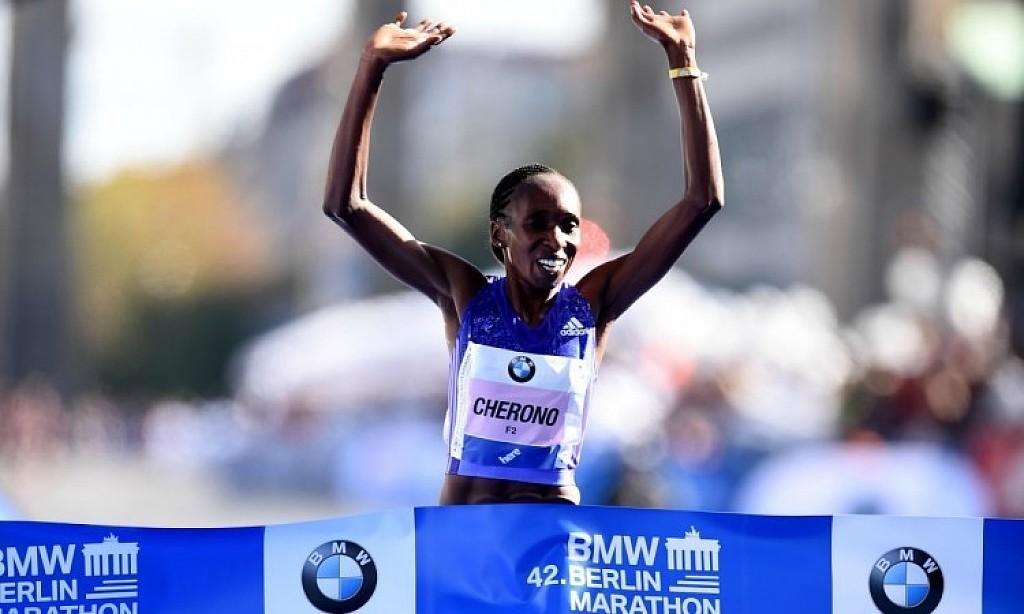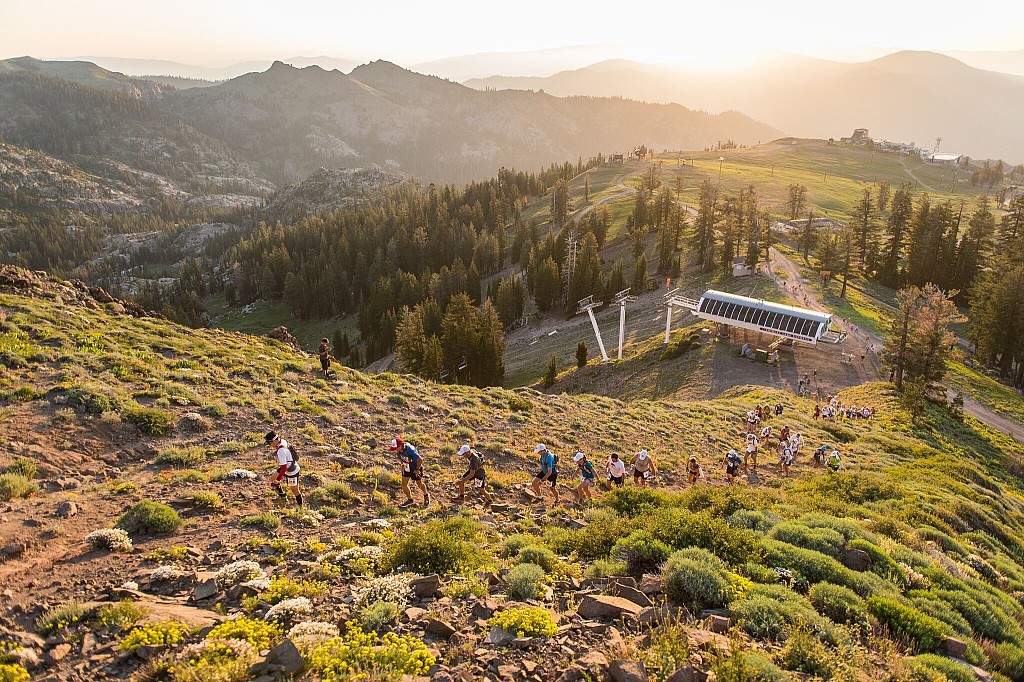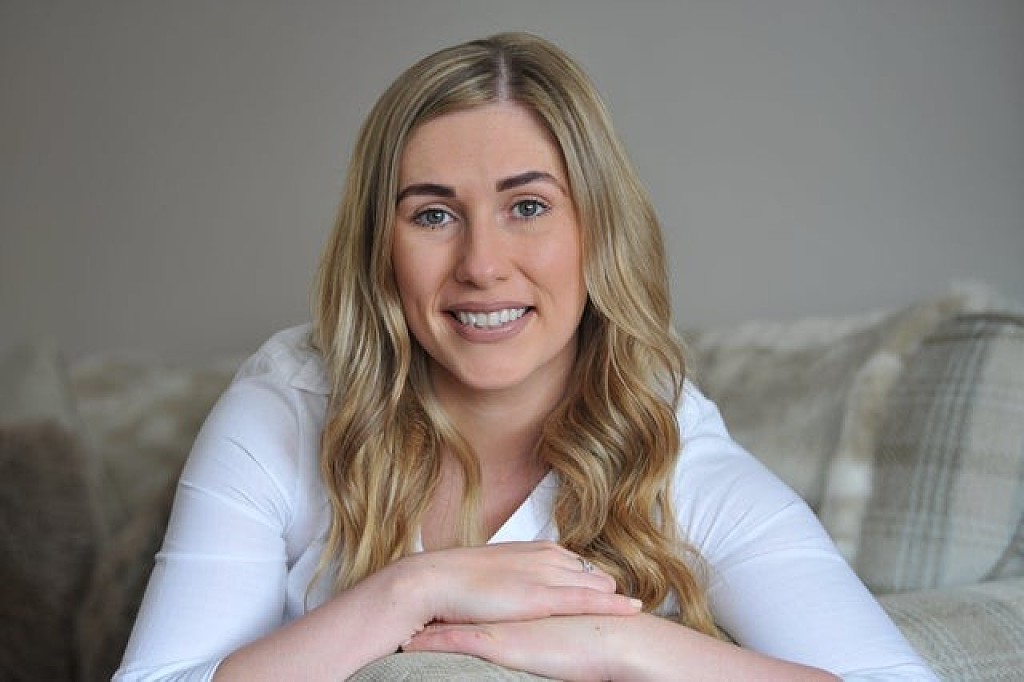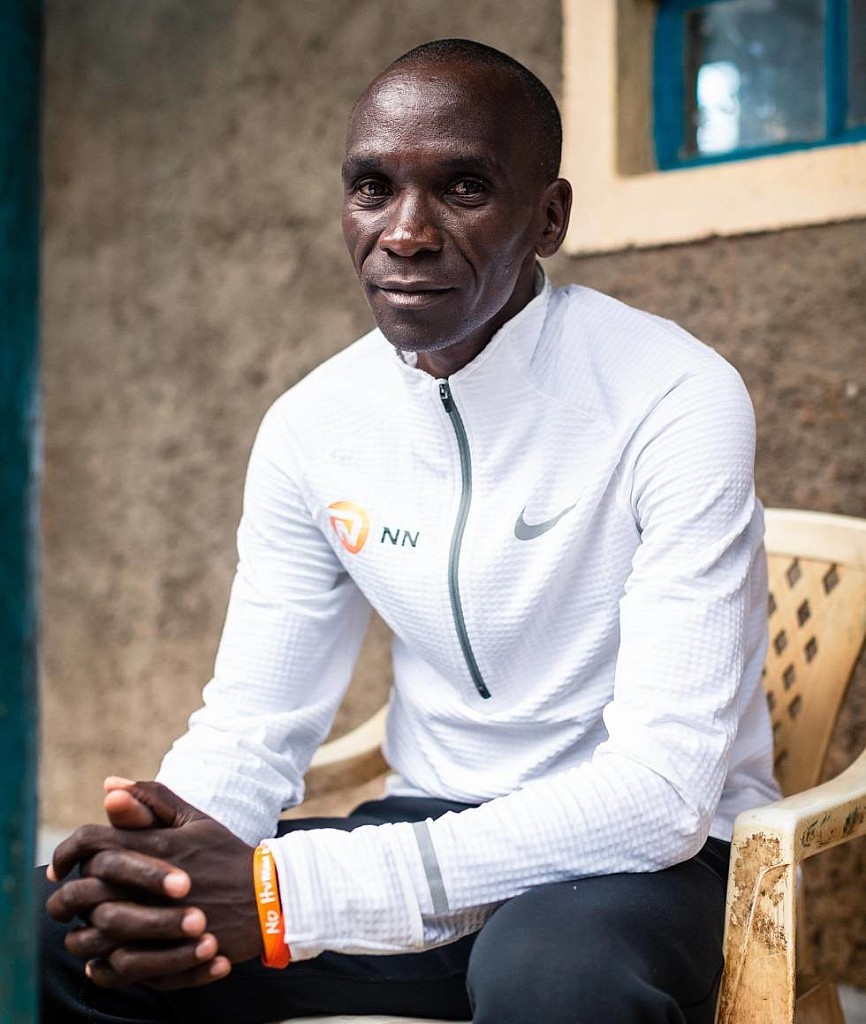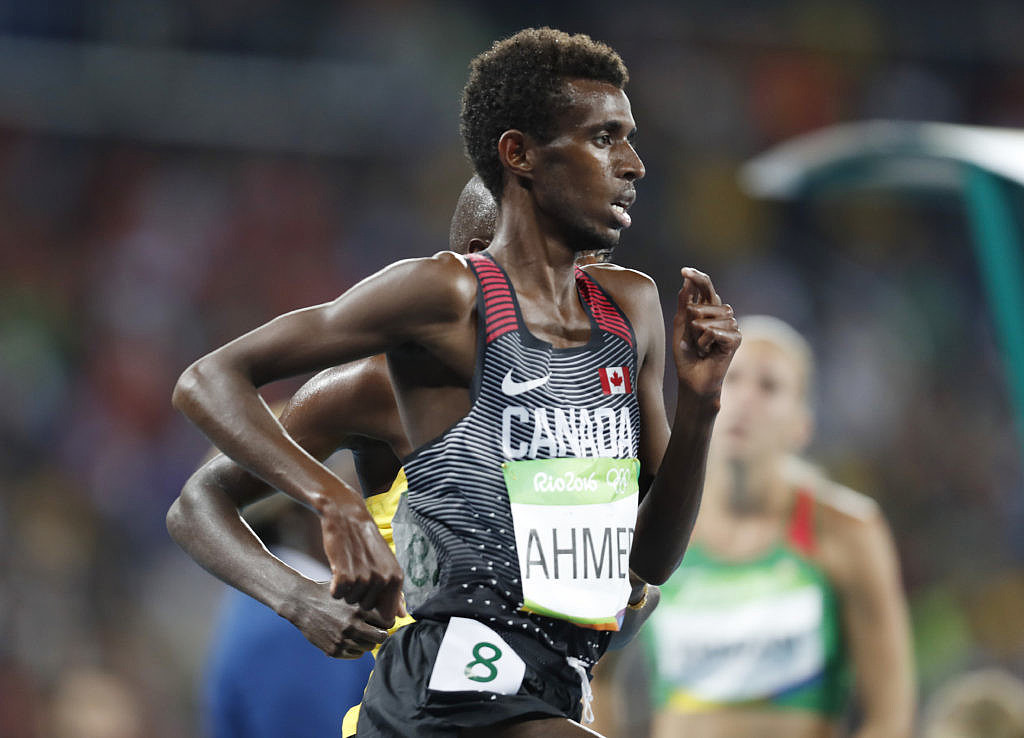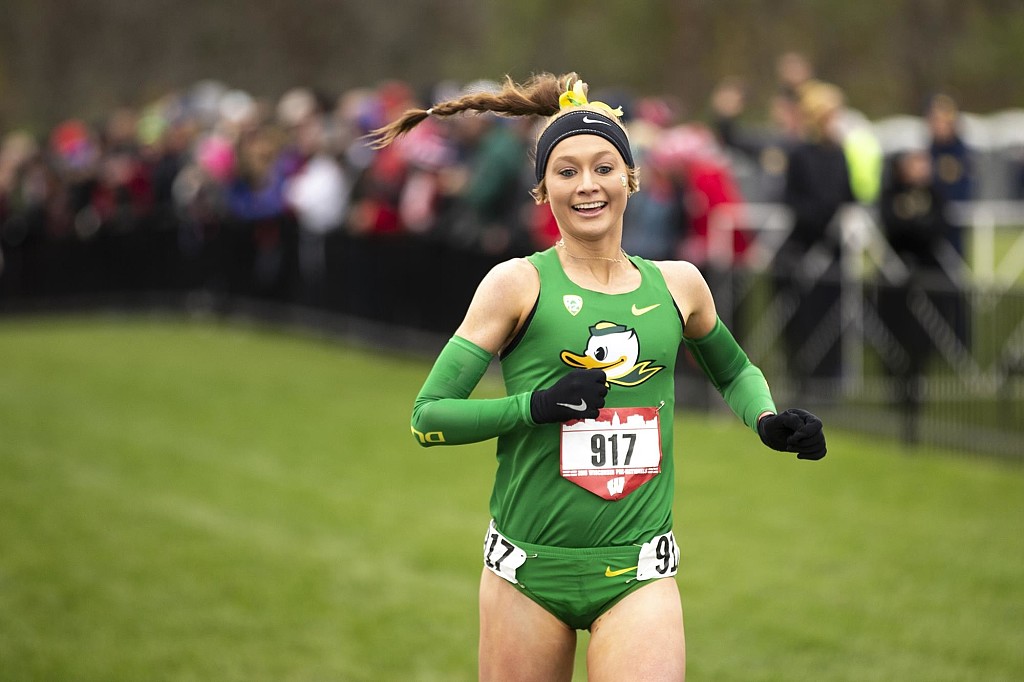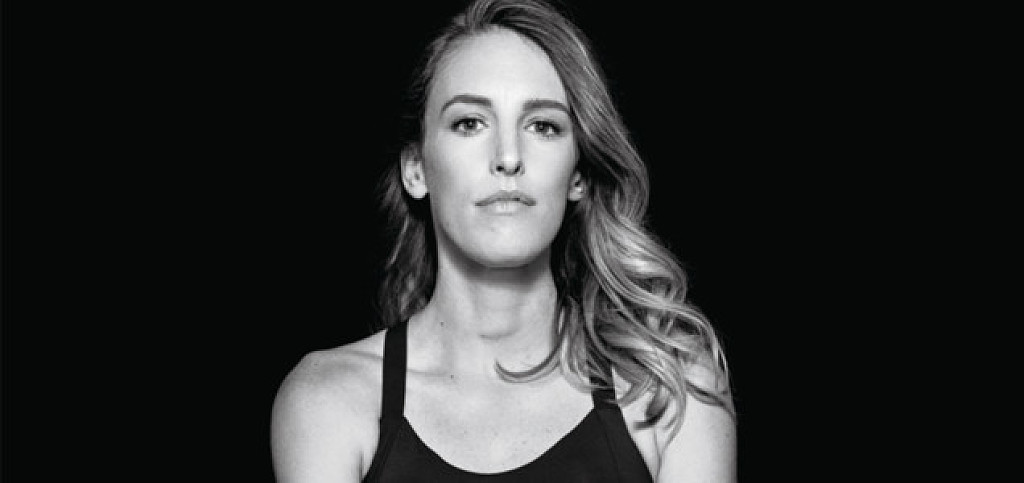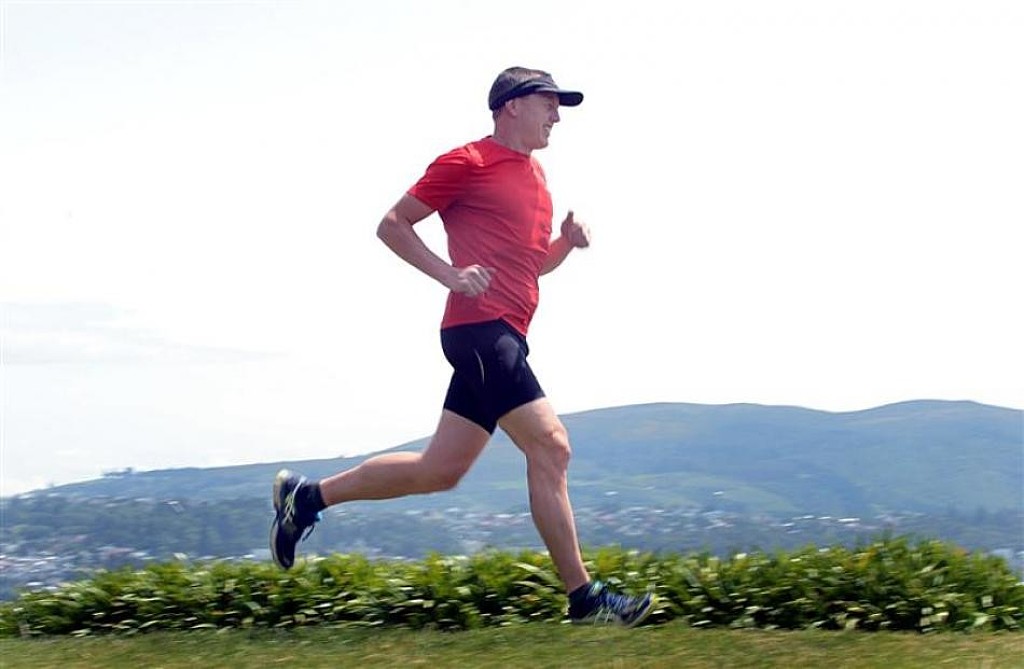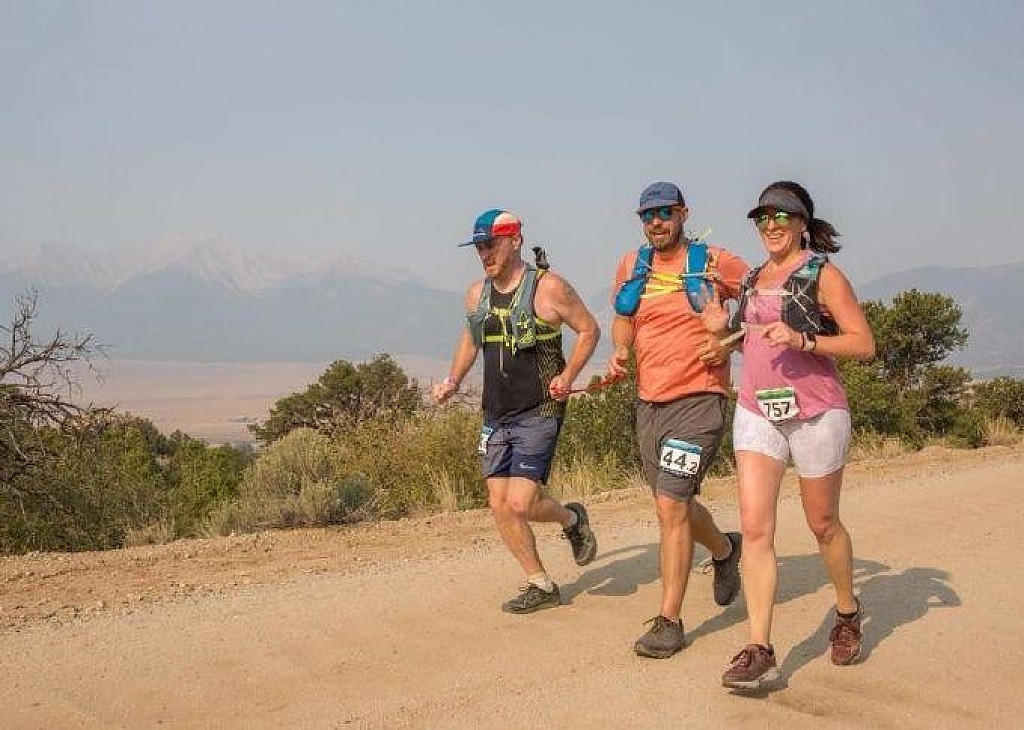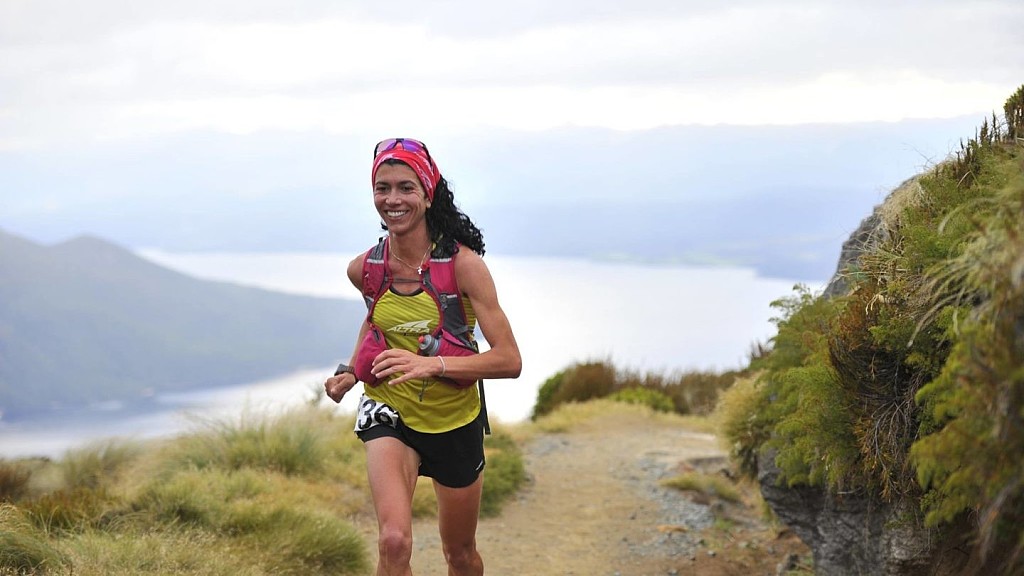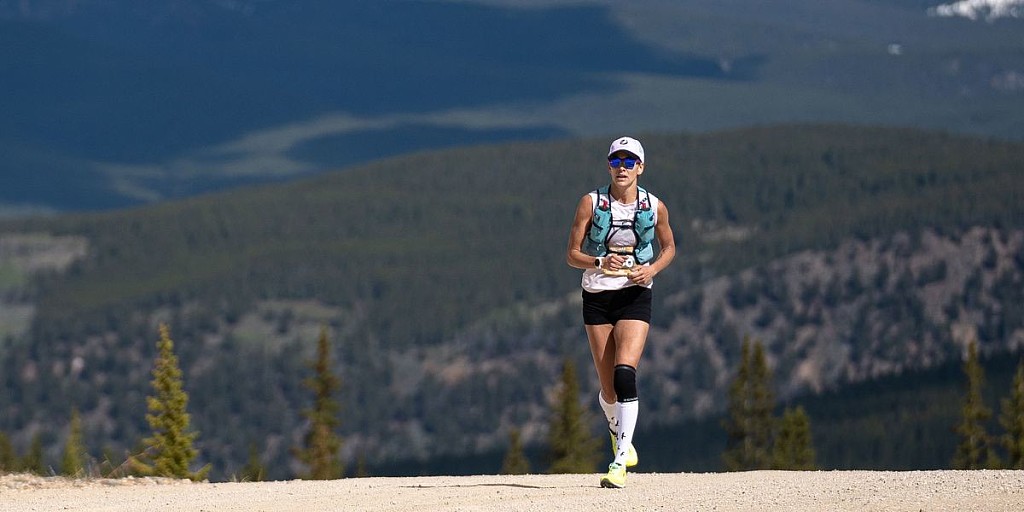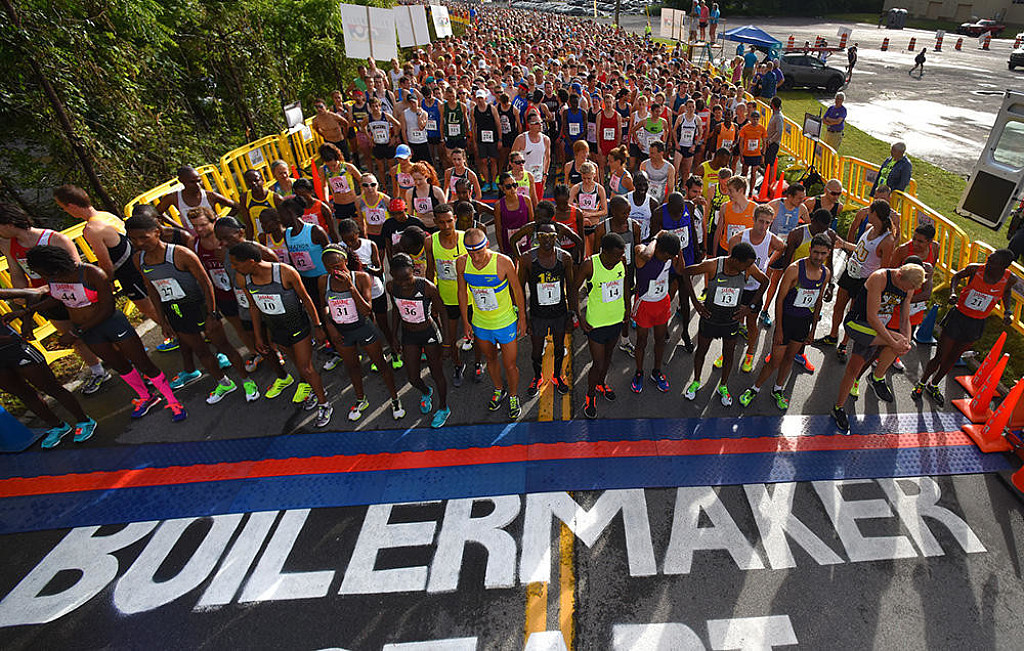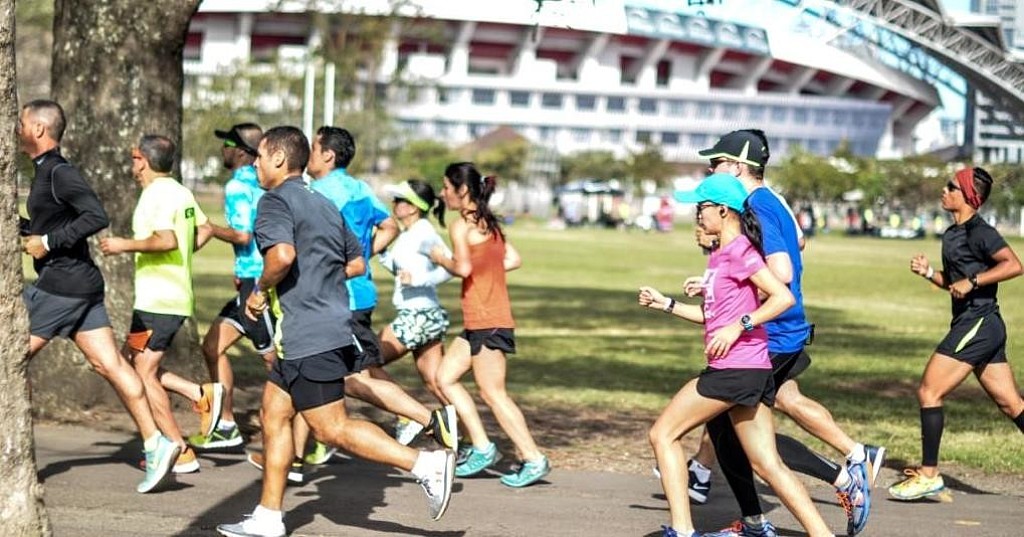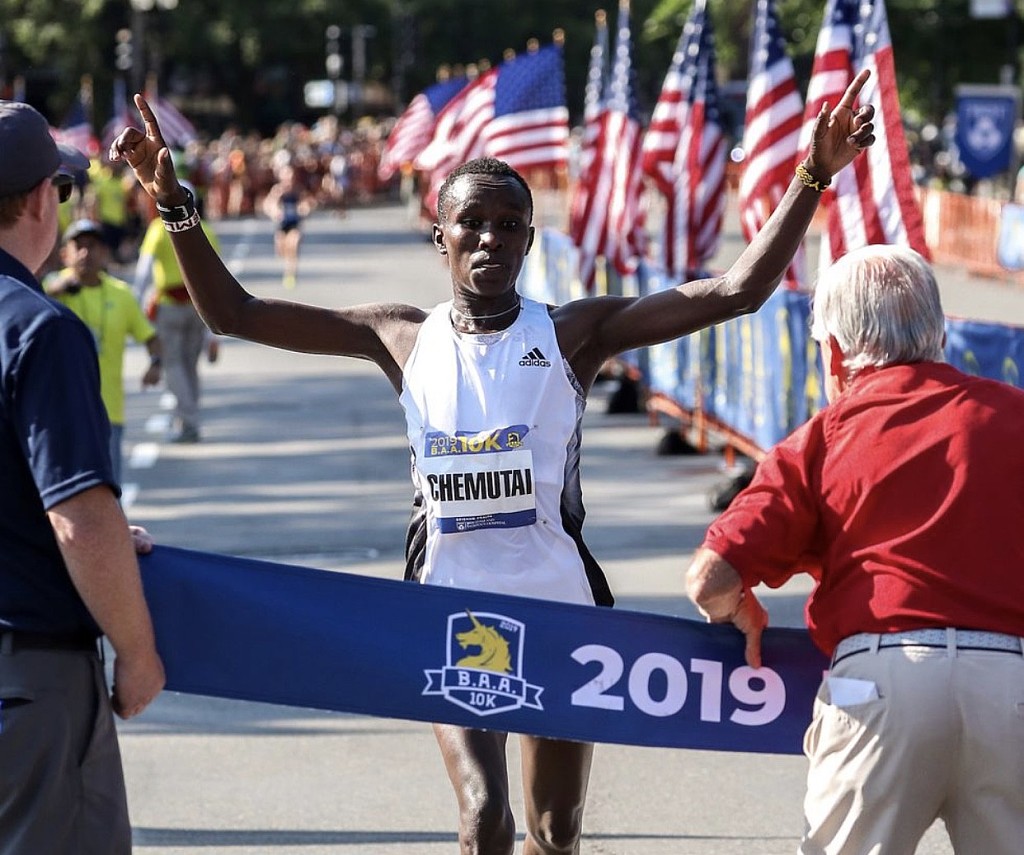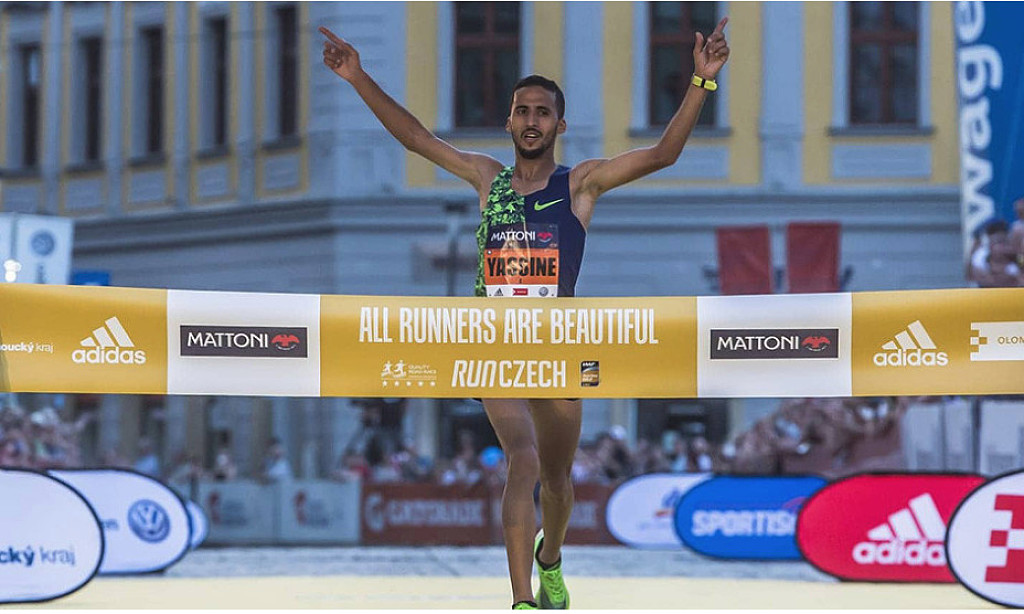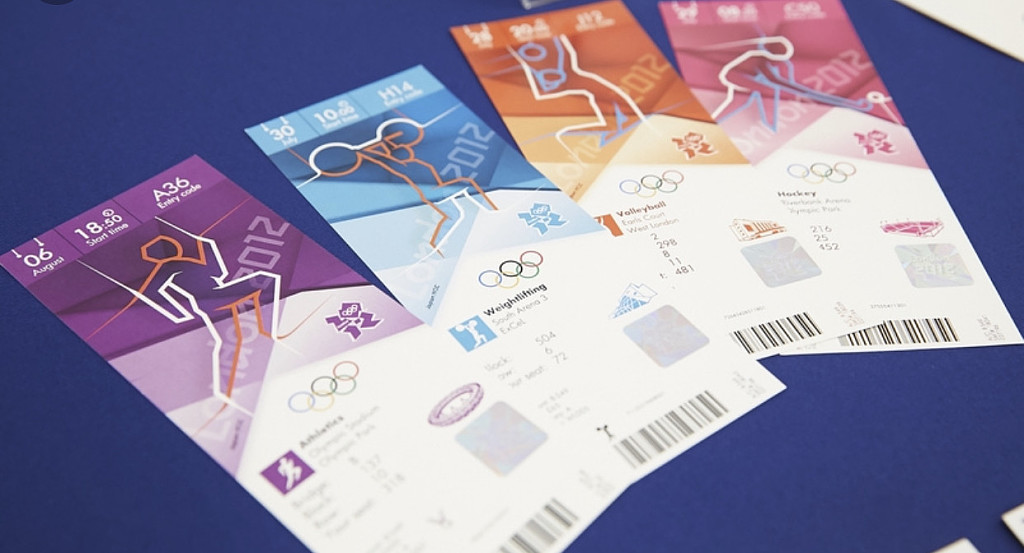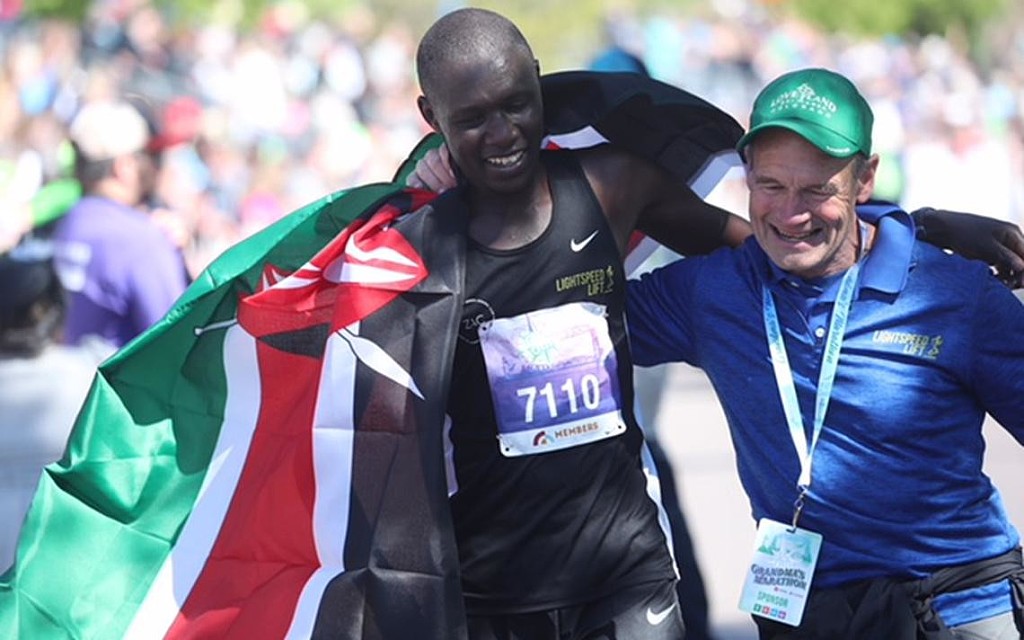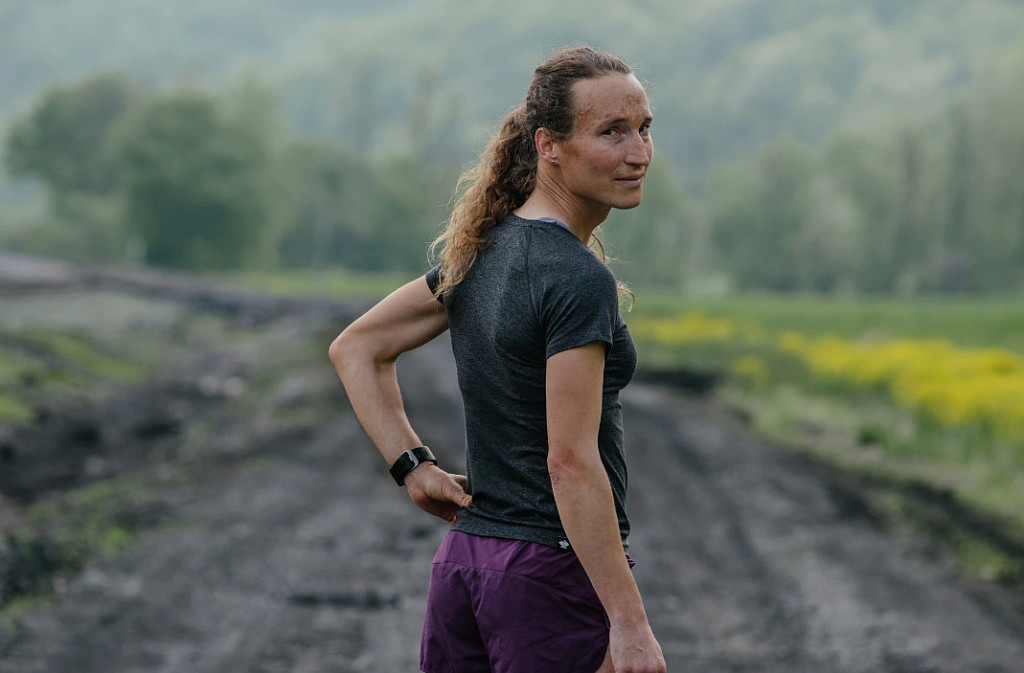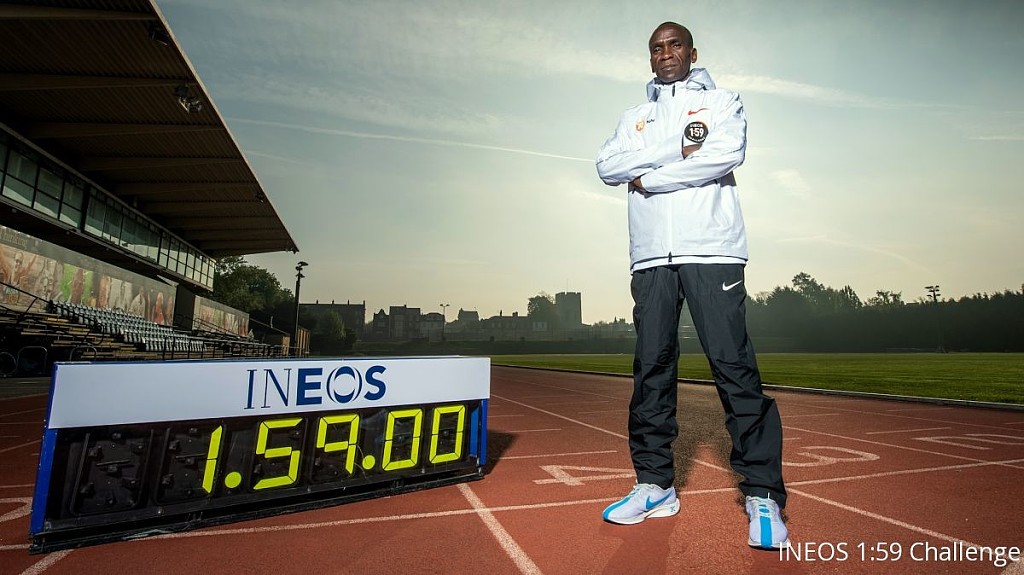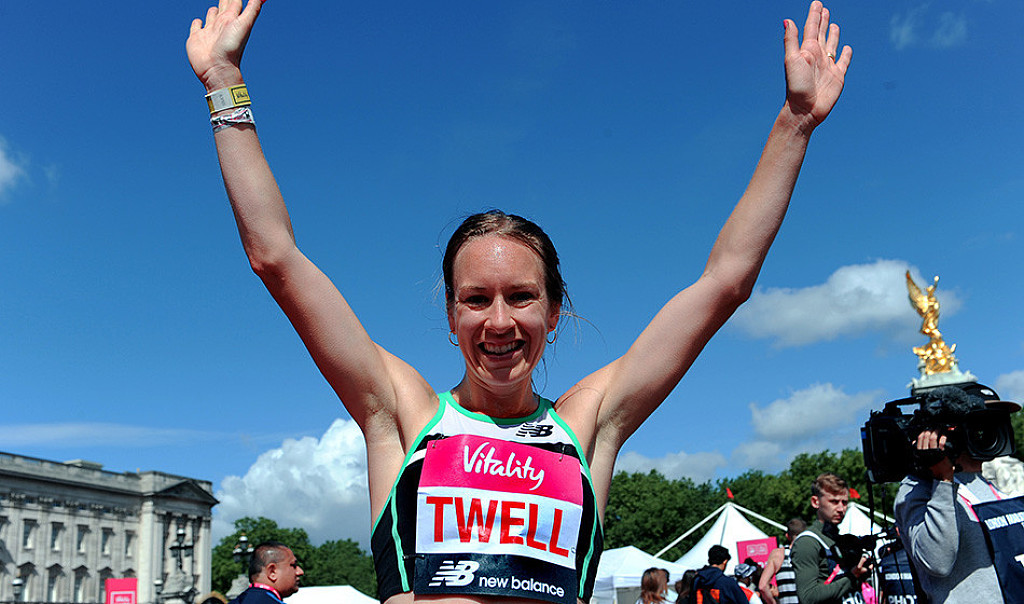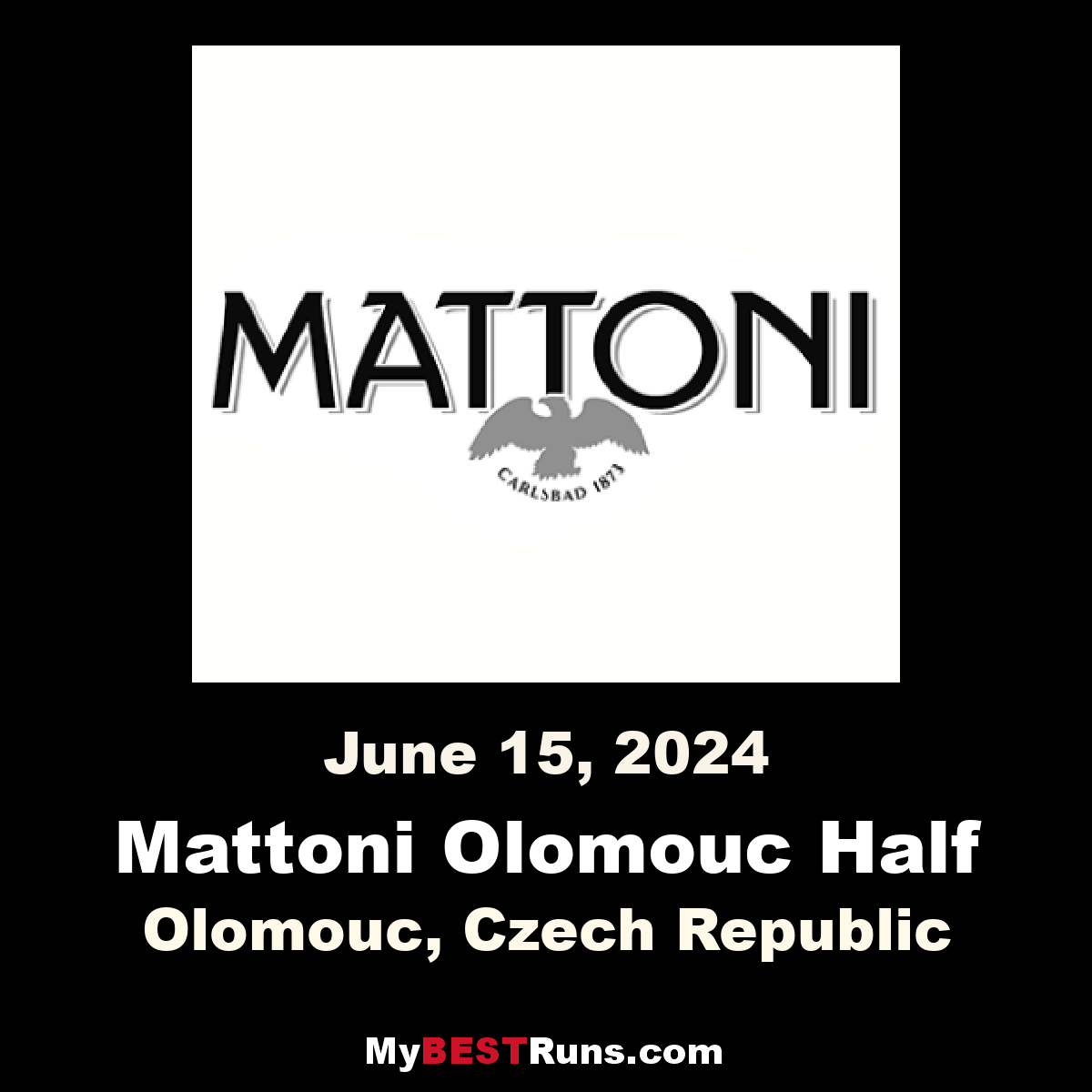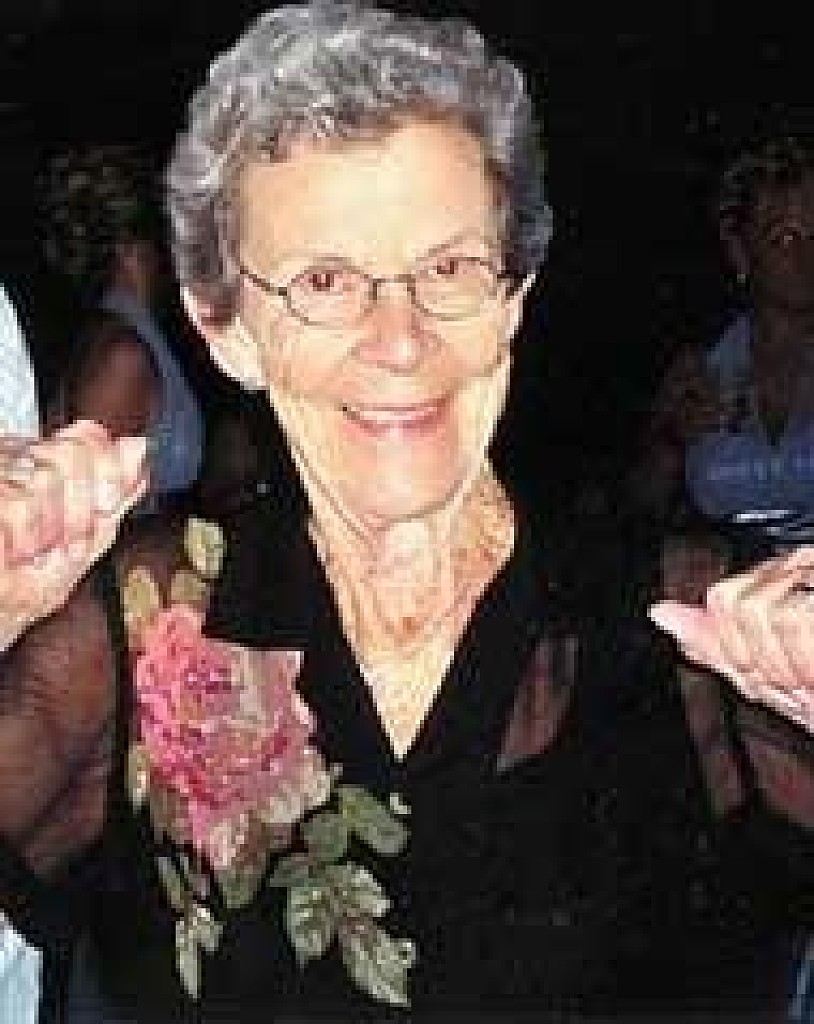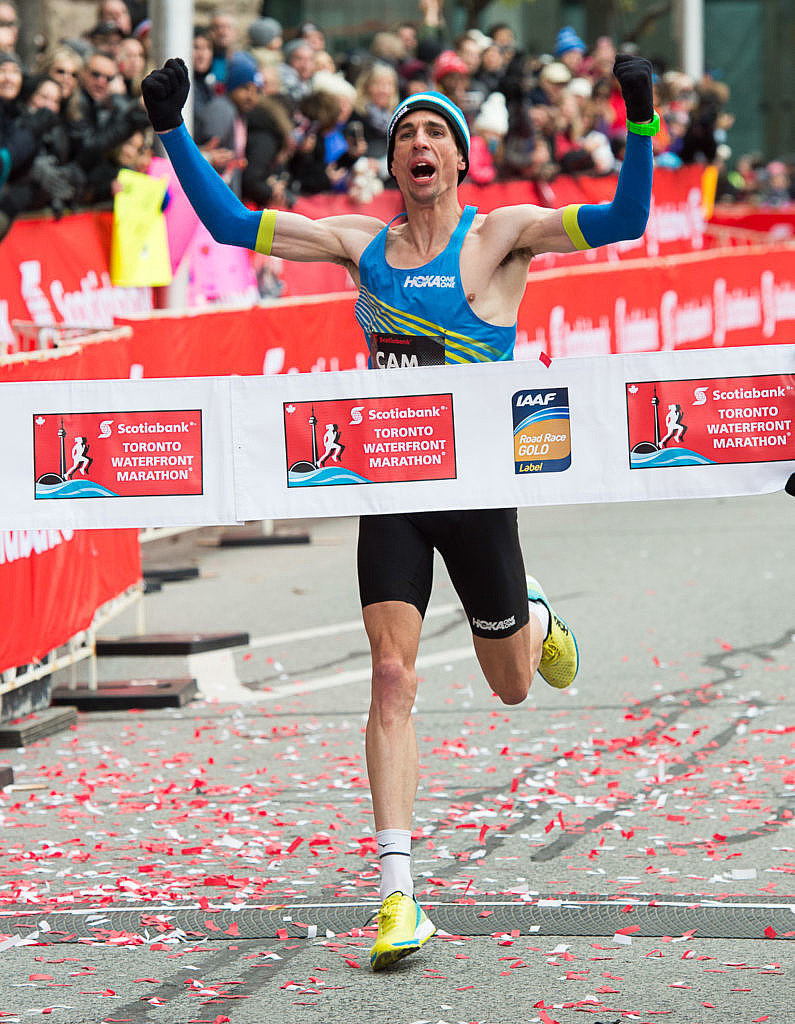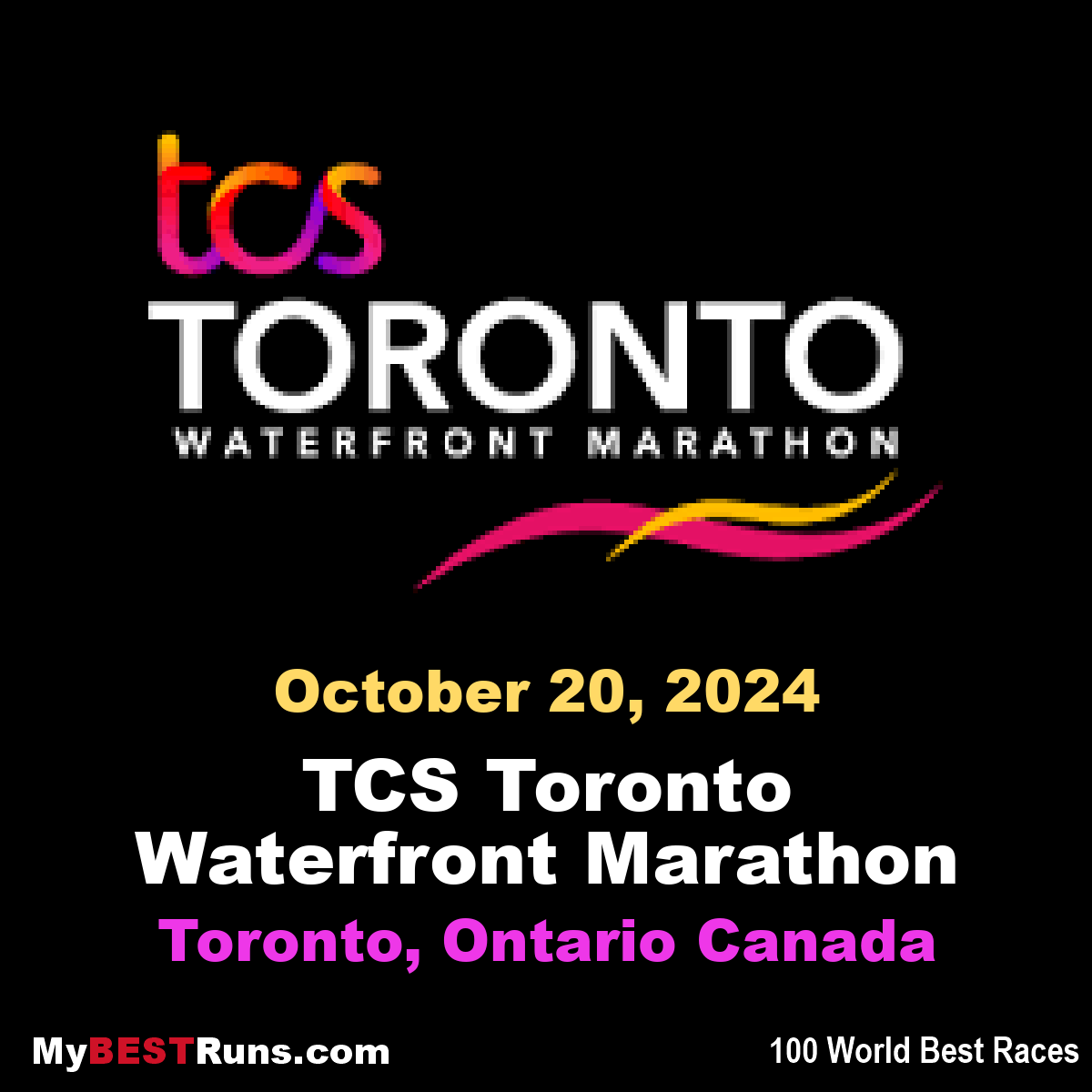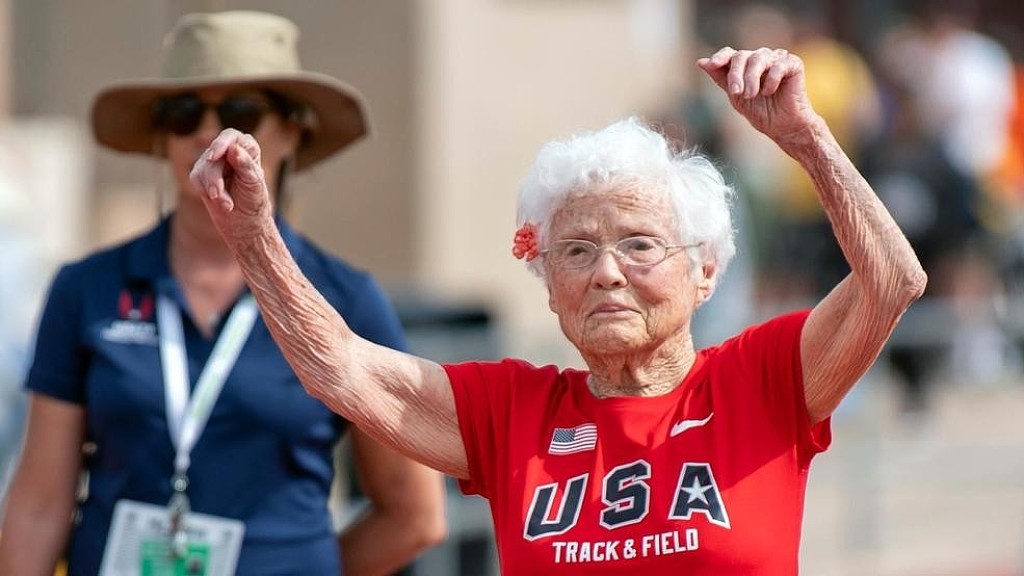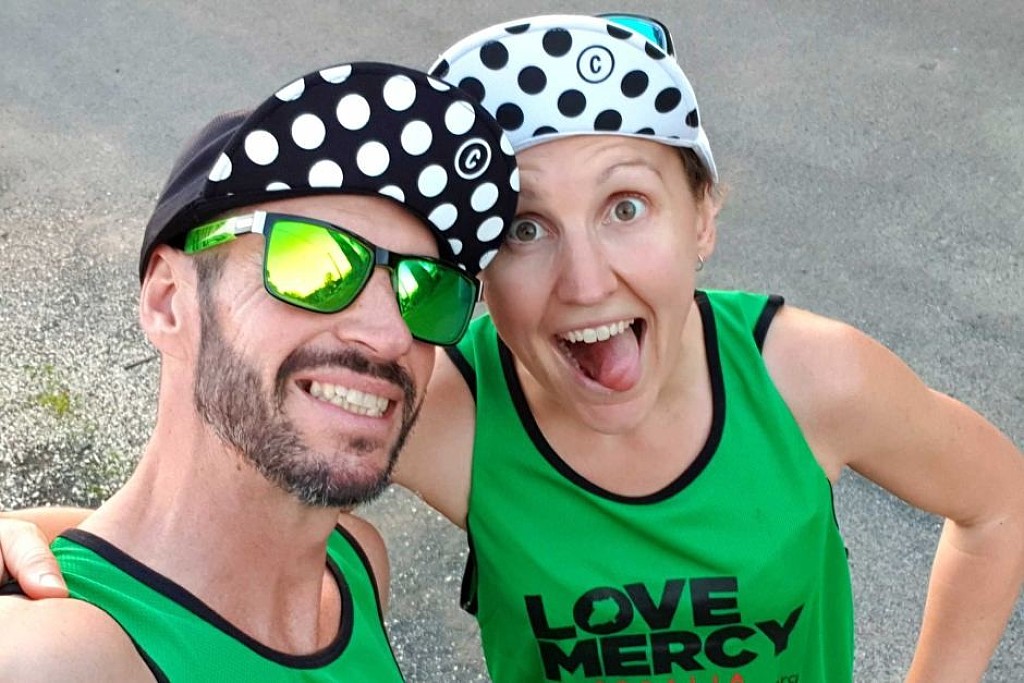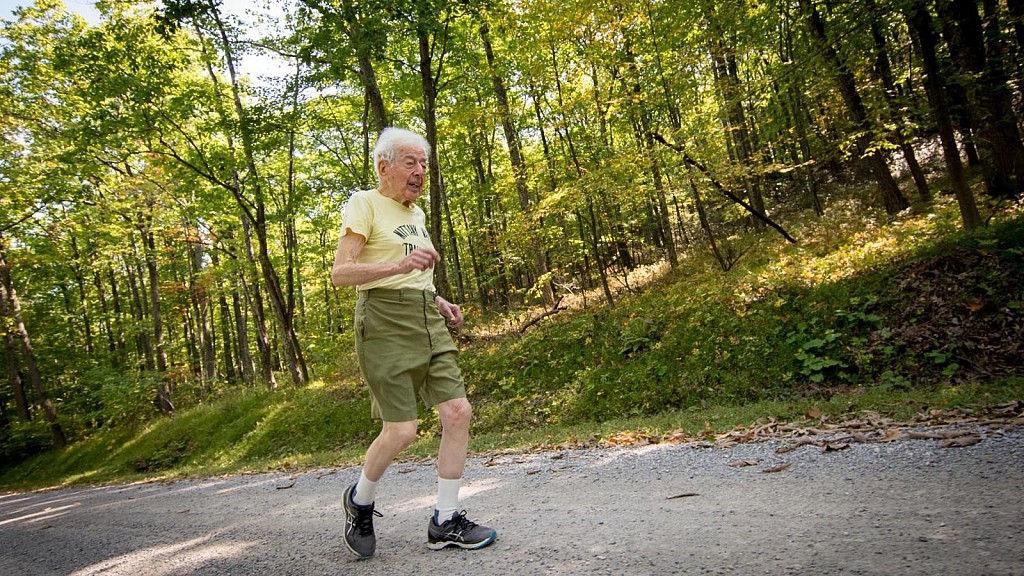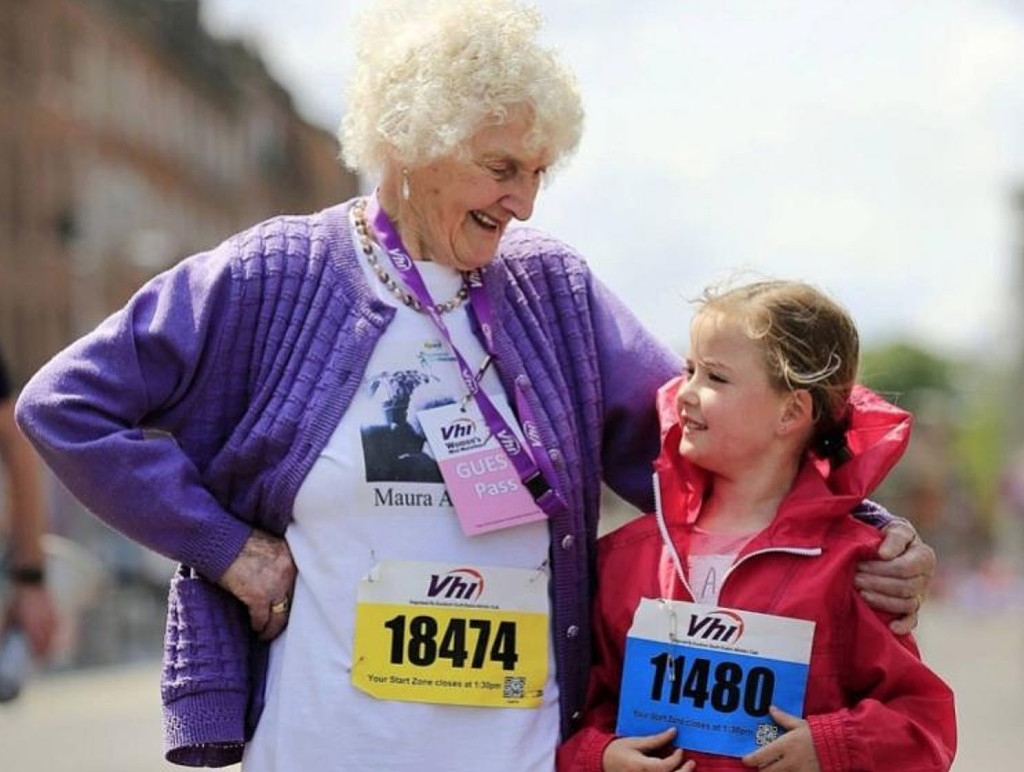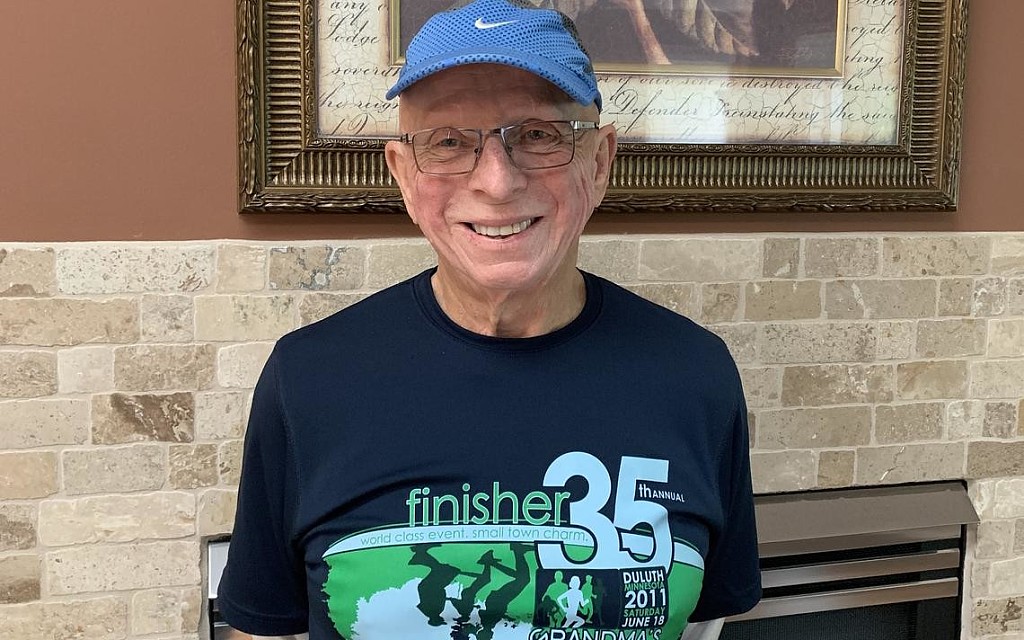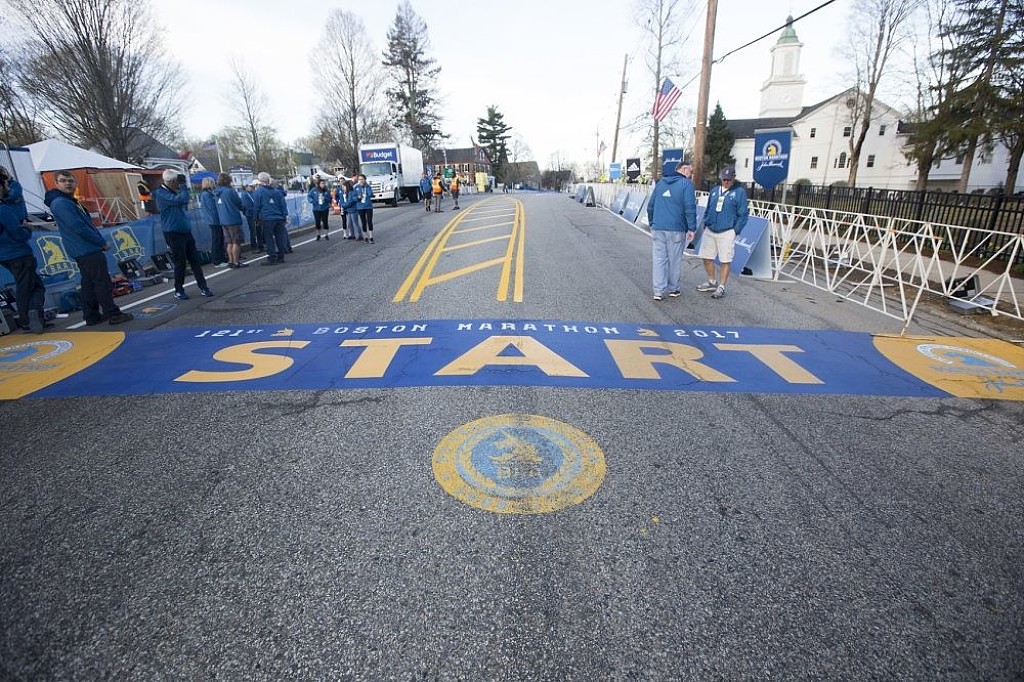Running News Daily
Running News Daily is edited by Bob Anderson in Mountain View, California USA and team in Thika Kenya, La Piedad Mexico, Bend Oregon, Chandler Arizona and Monforte da Beira Portugal. Send your news items to bob@mybestruns.com Advertising opportunities available. Over one million readers and growing. Train the Kenyan Way at KATA Running Retreat Kenya. (Kenyan Athletics Training Academy) in Thika Kenya. Opening in june 2024 KATA Running retreat Portugal. Learn more about Bob Anderson, MBR publisher and KATA director/owner, take a look at A Long Run the movie covering Bob's 50 race challenge.
Index to Daily Posts · Sign Up For Updates · Run The World Feed
The Missoula Marathon will bring an estimated $2 million to the Garden City economy
It’s not just the sound of pounding feet when the Missoula Marathon returns this weekend.
The event is also bringing the beeps of debit card readers and opening cash registers, with new estimates saying race weekend could be worth as much as $2 million to the Garden City economy.
More than 6,000 racers, plus all their families and friends will be in Missoula for the 13th annual running of the marathon, and its associated races, starting on Friday night.
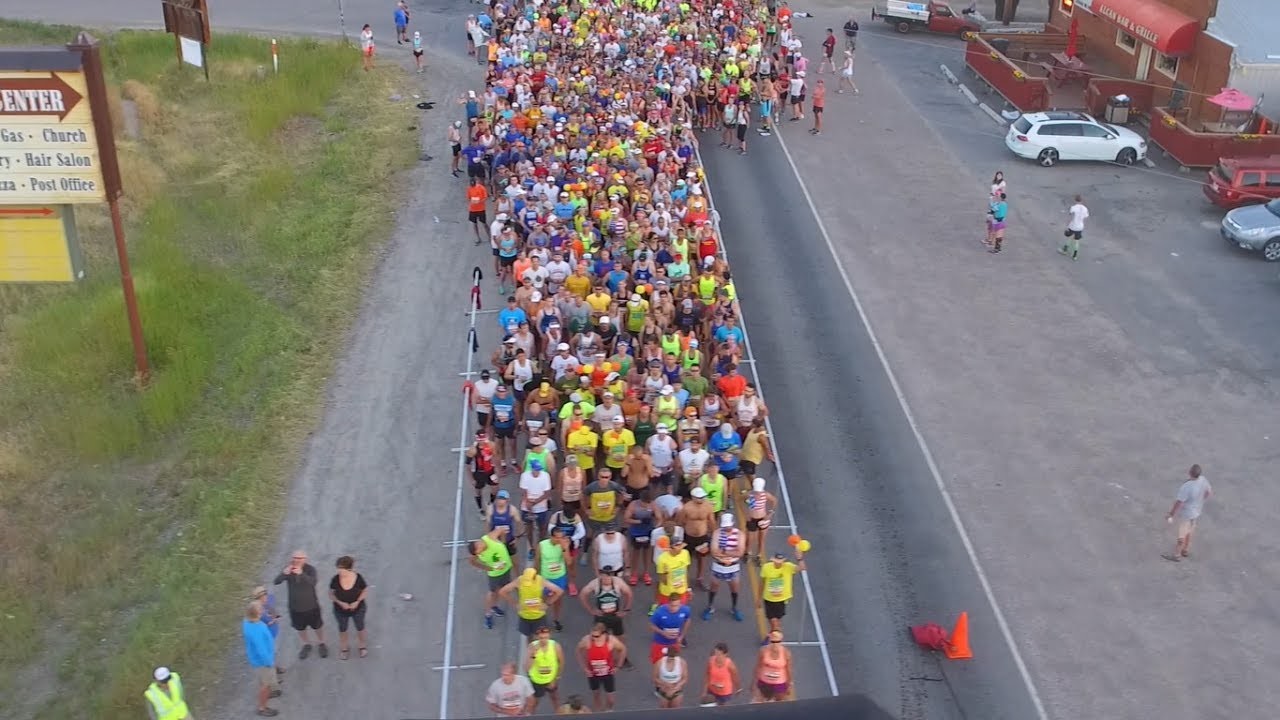
And that means no small bump in Missoula’s business, from hotels to restaurants and retail.
Our news partners at The Missoula Current did some number crunching and are reporting today the economic impact of the Marathon this year should hit $2 million, if not more.
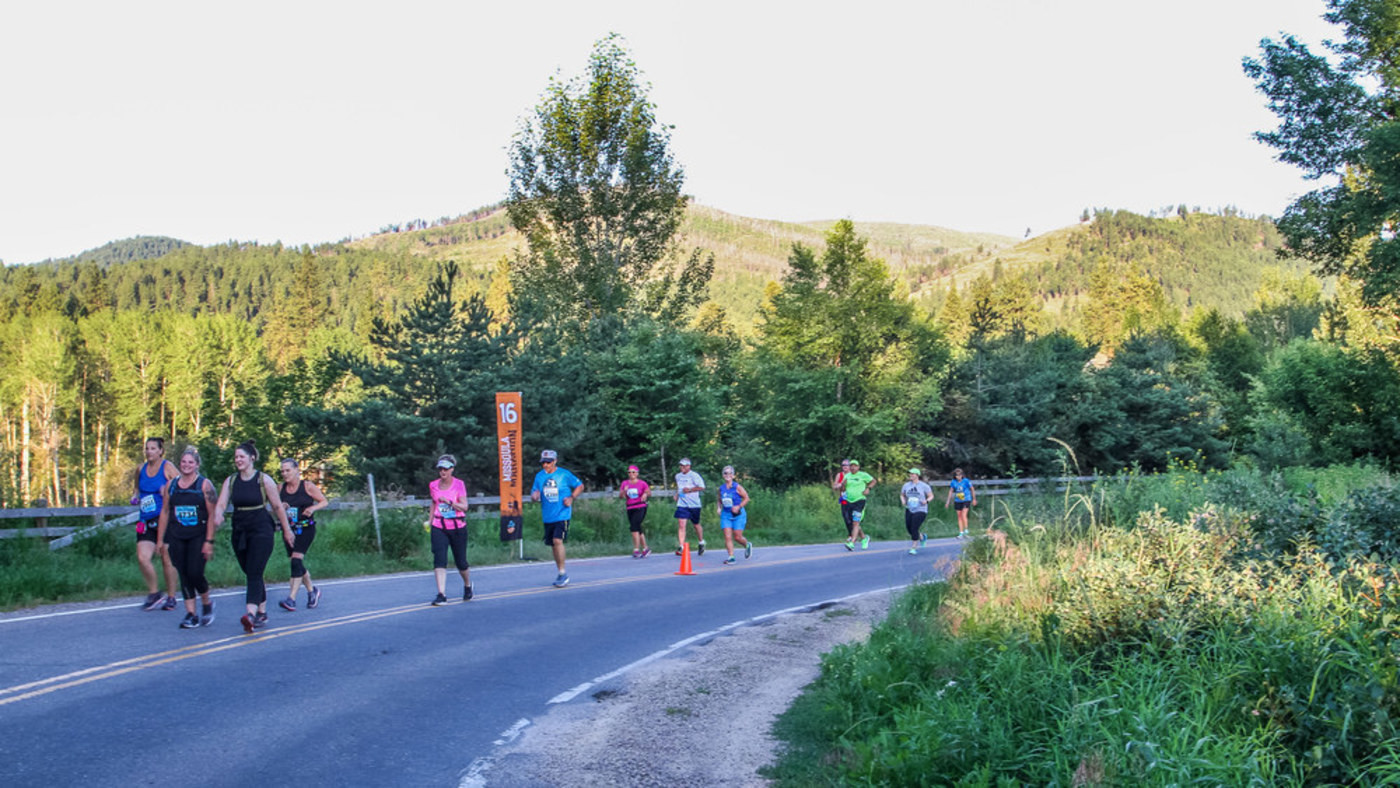
Most downtown hotels are sold out or expecting to be, and with 40% of the participants coming from outside Montana, that means expenditures have the most impact locally.
It’s not just business that are helped economically — local charities, running programs and Missoula Parks and Rec are expected to receive upwards of 40-thousand dollars of the proceeds.
(06/30/2019) ⚡AMPby Dennis Bragg
Missoula Marathon
Half and full marathon in Missoula, Montana, in the city they call "The Garden City." Amazing participation by the entire town and county. Front lawn hose squads cool down the runners en route. Lots of rest stations. The full marathon is a Boston qualifier. Runner's World rated the course as one of the best overall road races. ...
more...Jim Walmsley wins Western States 100 smashing his own course record
Jim Walmsley wins the 2019 Western States 100 in a course record 14:09:28, breaking his own course record of 14:30:04 set last year.
“I made up a lot of time pushing pretty good up Robinson, Devil’s Thumb as well, then things began to relax,” he said on the finish line, adding there were a few aid stations when he was not so fresh. “Things started rolling again when I crossed the river.”

“It was a big goal just to come here and try and win. It’s one thing to win at Western States, it’s a once in a lifetime thing, but to do it twice, puts you a bit more ‘two time guy right here.”
Jared Hazen took second at the 2019 Western States 100 in 14:26:46, also under Jim Walmsley’s previous course record.
Before this year’s race Walmsley said his mindset and approach to the race have changed little, and with favorable weather and decent course conditions, a push to again break the record could be in play.
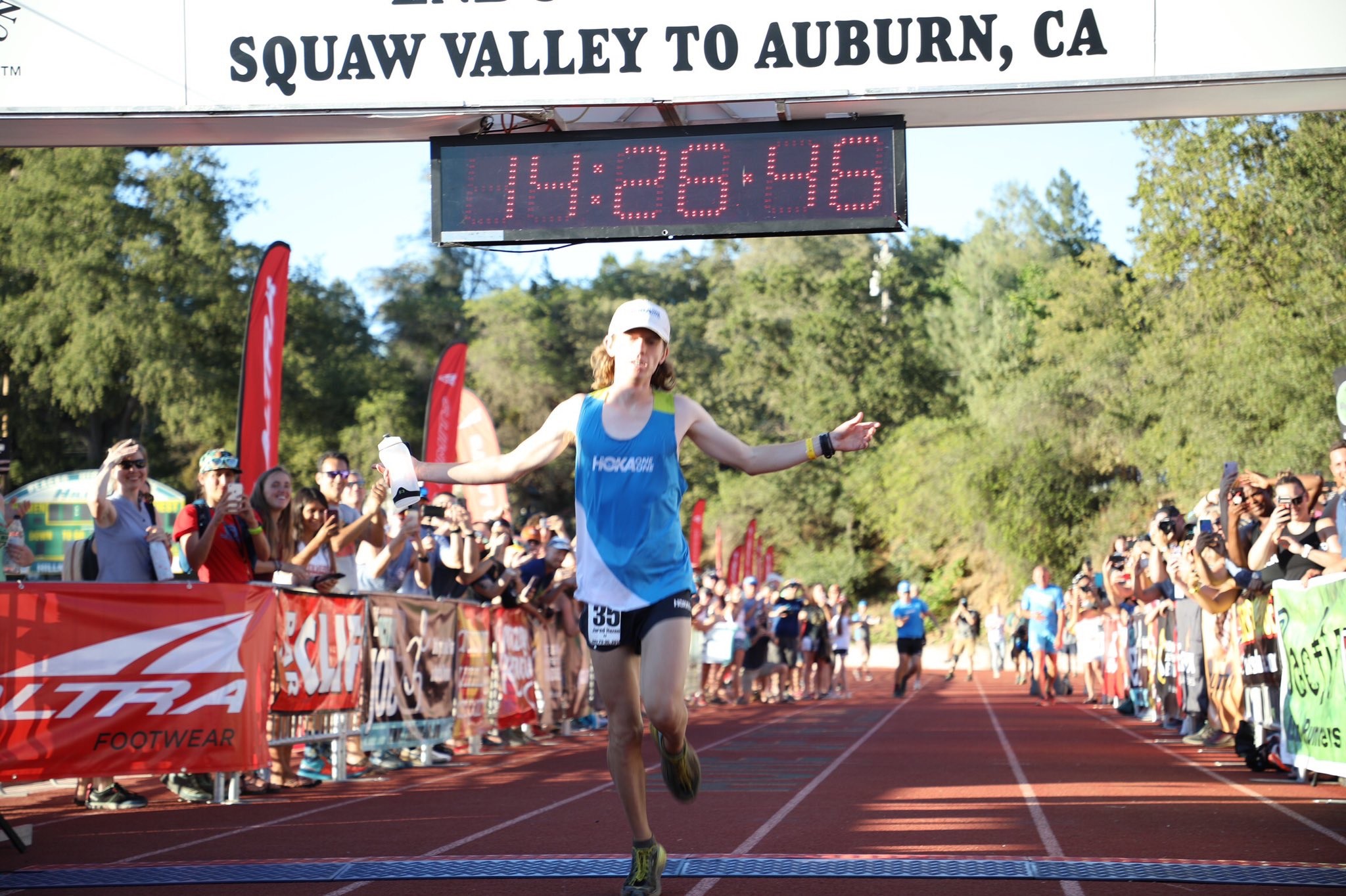
“I might kind of pull things back (from) maybe not running as risky, but at the same time, counter to that, there’s pretty good weather predictions right now,” said Walmsley. “This will be my fourth time racing, fourth year in a row, and it’s by far the coolest year. There’s also that tempting side of it of like, ‘I always want to see what I can run here.”
Walmsley was on a record-breaking pace in 2016, but strayed off course with less than 10 miles to go. He fought through exhaustion to finish 20th with a time of 18:45:36. In 2017, which had a similar amount of snow on the course as this year, Walmsley was several minutes ahead of his 2018 record time during the early portions of the course, but as the day wore on, temperatures climbed past 90 degrees and exhaustion knocked him out of the race with a little more than 20 miles to go.
“Ultimately, it’s about listening to my own pace and just putting everything out there regardless,” he said. “As long as I end up giving my best effort and going to the well to get there, I’m always happy with it. Whether it’s the DNF in 2017 or the course record last year. I’m pretty proud of both days and the fact that I know I gave everything at both races. You can always live with that.”
Coming into this year’s race, Walmsley said he feels he’s matured as a runner, which has given him the confidence to overcome the mental and physical hurdles that arise during a 100-mile race.
(06/29/2019) ⚡AMPWestern States 100
The Western States ® 100-Mile Endurance Run is the world’s oldest and most prestigious 100-mile trail race. Starting in Squaw Valley, California near the site of the 1960 Winter Olympics and ending 100.2 miles later in Auburn, California, Western States, in the decades since its inception in 1974, has come to represent one of the ultimate endurance tests in the...
more...The Guinness World Record for the Largest Pride Charity Run Has Been Shattered
The streets of New York City were undeniably colorful this weekend: On Saturday, June 29, the New York Road Runners (NYRR) and Front Runners New York (FRNY) teamed up to host the 38th annual five-mile LGBT Pride Run.
This year, they had a special mission in mind: to set the Guinness World Record for largest Pride charity run.
To break the Guinness Record, more than 6,000 participants had to compete in the race. As of Thursday, the amount of people registered for the race—which sold out—was around 10,000, according to a press release issued to Runner’s World from NYRR.
Then on Saturday, NYRR announced that 10,236 people completed the race, shattering the record. There was a Guinness World Records adjudicator onsite to verify the record once the final finisher crossed the line, a spokesperson for NYRR told Runner’s World.
The race served as a finale for LGBTQIA+ Pride Month, officially recognized in June. It also complemented WorldPride, an international event hosted by New York City that welcomed LGBTQIA+ members from around the world to engage in special events, parties, and performances throughout the month of June.
This year is especially noteworthy for the LGBTQIA+ community, because it marks the 50th anniversary of the Stonewall riots, a series of protests in Manhattan in 1969 that initiated the gay rights movement in the United States.
Each year, an LGBT charity organization is chosen to be beneficiary for the funds raised from the Pride Run. This year’s recipient was The Center (The Lesbian, Gay, Bisexual & Transgender Community Center) located in the West Village, which provides career advice, family guidance, as well as health support to the gay community in New York City.
The five-mile race began on the East Drive at 67th in Central Park, ran north around the park’s upper loop, then finished on the 72nd Street Transverse. Early birds who made it before the 8:30 a.m. were treated to a special surprise: limited-edition rainbow pairs of Goodr sunglasses, which were sold until they ran out.
While there were only a limited number of sunglasses, all participants received a rainbow-themed technical tank along with their race bib. Prizes were also awarded to the top four men and women, as well as the five largest participating teams. The men’s winner was Kedir Figa of Ethiopia, who finished in 25:19. The women’s winner, Lindsey Scherf of New York, finished in 28:06.
For those who couldn’t make it to New York City for the race, the NYRR Virtual Pride Run 5K continues until Sunday, June 30. So far, more than 5,000 runners from across the world have completed the virtual Pride race, according to a press release from NYRR.
(06/29/2019) ⚡AMPby Runner’s World
Front Runners New York LGBT Pride Run
The annual Front Runners New York LGBT Pride Run is a 5 mile race in Central Park that will draw in more than 5,000 runners and thousands of fans from across the country. This event, organized by Front Runners New York (FRNY) in collaboration with New York Road Runners, is an official qualifier for the TCS New York City Marathonand...
more...Your guide to this year's Prefontaine Classic
The Prefontaine Classic relocated, temporarily, and it brought the best fields of the Diamond League season with it to Stanford, California on Sunday June 30.
That includes the world’s fastest man and woman this year (Christian Coleman and Elaine Thompson), the athlete who has made the most worldwide headlines this season (Caster Semenya) and a bevy of other reigning Olympic and world champions.

Notably, Olympic 10,000m champion Almaz Ayana of Ethiopia and Olympic 1500m champion Faith Kipyegon will compete for the first time since 2017. World 100m champions Justin Gatlin and Tori Bowie are in their first Diamond League meets in more than one year. It’s the first Diamond League in two years for 2008 Olympic 400m champ LaShawn Merritt. It’s also the first race of 2019 for Olympic 1500m champion Matthew Centrowitz.
NBC and NBC Sports Gold air live coverage Sunday from 1-3 p.m. Pacific.
The Pre Classic has been held annually since 1975 in Eugene, Ore. But Hayward Field’s reconstruction ahead of the 2020 Olympic Trials forced a move to Cobb Track and Angell Field at Stanford.
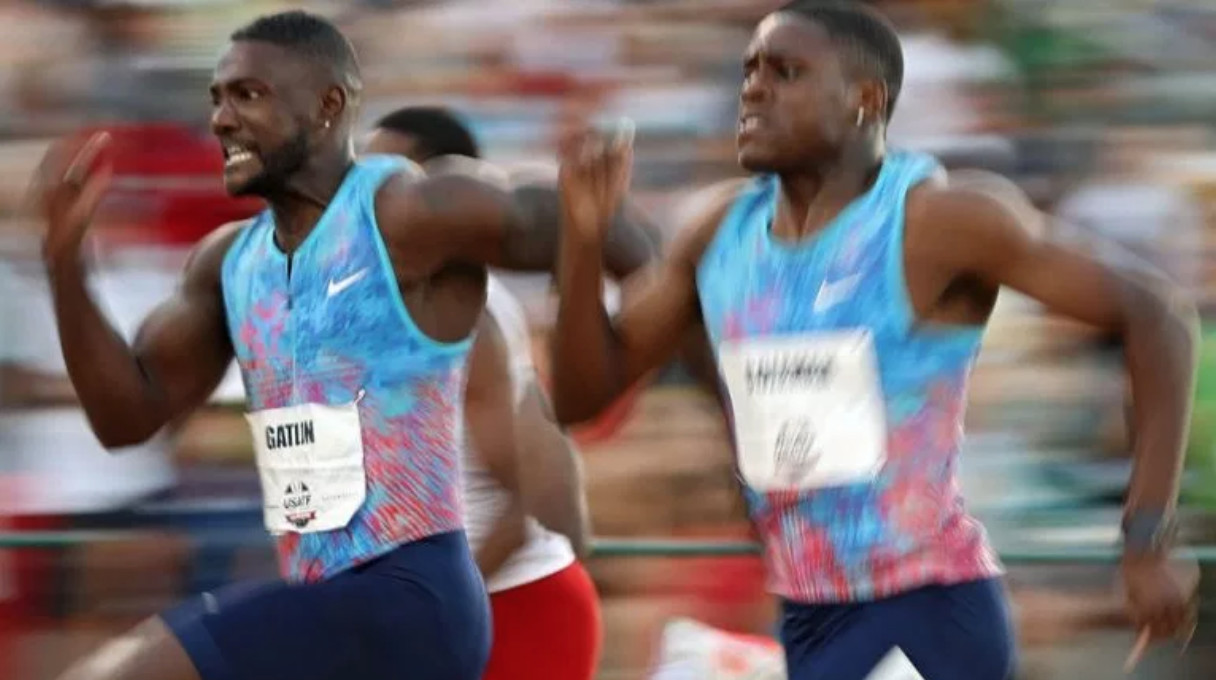
Here are the Pre Classic entry lists. Here’s the schedule of events (all times Pacific):
Here are 10 events to watch:
Men’s Pole Vault — 12:43 p.m.The Big Three of the event meet for the first time this season: 2012 Olympic champion and world-record holder Renaud Lavillenie of France, 2017 World champion Sam Kendricksand 2018 and 2019 world leader Mondo Duplantis of Sweden, who just turned pro after his freshman year at LSU. Lavillenie has competed just once this season due to injury. Duplantis was beaten at NCAAs by Chris Nilsen (also in the Pre field). But Kendricks has been hot, winning the first three Diamond League pole vaults this season (though Lavillenie and Nilsen weren’t in any of those fields and Duplantis just one).
Women’s High Jump — 1:08 p.m.U.S. champion Vashti Cunningham takes another crack at Russian Mariya Lasitskene, who has just two losses in the last three years. Cunningham is 0-7 versus Lasitskene but has this spring already bettered her top clearance of 2018. Lasitskene, though, appears in top form after taking three attempts at a world record 2.10 meters in Ostrava last week.
Women’s 3000m Steeplechase — 1:11 p.m.Six of the eight fastest in history, headlined by world gold and silver medalists Emma Coburn and Courtney Frerichs. The only time either Coburn or Frerichs won a steeple that included any of the four fastest Kenyans in history was at those 2017 Worlds. Another chance Sunday.
Women’s 100m — 1:27 p.m.NCAA champion Sha’Carri Richardson would have been the favorite here in her pro debut if not for what happened Friday. Shelly-Ann Fraser-Pryce, a two-time Olympic 100m champion, clocked her fastest time in six years (10.73 seconds) to become the fastest mom in history and No. 2 in the world this year behind Rio gold medalist Elaine Thompson. Also watch reigning world champ Tori Bowie, who is coming back from a quad tear and coaching change.
Women’s 800m — 1:47 p.m.Caster Semenya races her trademark event for the first time since a Swiss Supreme Court ruled her eligible while it deliberates on her appeal against a Court of Arbitration for Sport decision to uphold an IAAF rule capping testosterone in women’s events from the 400m through the mile. The Swiss court ruling applies only to Semenya and not the other Rio Olympic medalists, Francine Niyonsaba and Margaret Wambui, who are also affected by the new rule. So Semenya’s closest threat at Pre is American record holder Ajeé Wilson, but Semenya has won 30 straight 800m races dating to 2015.
Men’s Shot Put — 2:01 p.m.Olympic champion Ryan Crouser had a sterling record at Hayward Field, taking NCAA, Pre Classic and Olympic Trials titles. He’s pretty strong in California, too, recording his personal best (22.74 meters) in Long Beach in April. Nobody has been within a foot and a half of that this season, but the last two world champions (New Zealand’s Tom Walsh and American Joe Kovacs) will try to snap his undefeated 2019 on Sunday.
Men’s 400m — 2:19 p.m.Lost some sizzle with the withdrawal of 2012 Olympic champion Kirani James, who has missed time with Graves’ disease and, more recently, his mother’s death. Instead, the three fastest Americans of the last decade line up — 2018 and 2019 world leader Michael Norman (43.45 from April 20), 2017 world No. 2 Fred Kerley and 2008 Olympic championLaShawn Merritt.
Women’s 200m — 2:25 p.m.Strongest sprint field of the meet: 2016 Olympic champion Elaine Thompson, 2015 and 2017 World champion Dafne Schippers and 2018 world leader Dina Asher-Smith. Should produce the fastest time in the world this year, which is currently 22.16, and the favorite for world champs.
Men’s 100m — 2:39 p.m.Justin Gatlin and Christian Coleman go head-to-head for the first time since the 2017 Worlds, where Gatlin took gold, Usain Bolt silver and Coleman bronze. Coleman is the world’s fastest man this Olympic cycle (9.79) and this year (9.85). Gatlin, 37, hasn’t broken 10 seconds since beating Bolt but has a bye to defend his title in Doha in September.
Men’s Mile — 2:51 p.m.Olympic 1500m champ Matthew Centrowitz races on the track for the first time since July 22, eyeing his first win in the Pre mile in his sixth try. The foes are formidable, including the top two milers since Rio — Kenyans Timothy Cheruiyot and Elijah Manangoi — Norwegian brothers Filip and Jakob Ingebrigtsen and Ethiopian Yomif Kejelcha, who on March 3 broke the 22-year-old indoor mile world record. Nobody has been within four seconds of the outdoor mile word record (Hicham El Guerrouj‘s 3:43.13 in 1999) since 2007.
(06/29/2019) ⚡AMPPrefontaine Classic
The Pre Classic, part of the Diamond League series of international meets featuring Olympic-level athletes, is scheduled to be held at the new Hayward Field in Eugene. The Prefontaine Classicis the longest-running outdoor invitational track & field meet in America and is part of the elite Wanda Diamond League of meets held worldwide annually. The Pre Classic’s results score has...
more...Two of Canada's fastest-ever marathoners Cam Levins and Reid Coolsaet are going to battle it out at this year's Edmonton lululemon 10K
Natasha Wodak, Cameron Levins and Reid Coolsaet are leading the field for the 2019 Edmonton lululemon 10K. The three Olympians and previous lululemon 10K winners will line up against a strong elite field in the sold out event.
The 2019 race sold out in a record time of 10 hours and will host 7,000 runners.
Wodak is on a tear this season. The B.C native has won five races in 2019 alone and come away with two Canadian championship titles. Wodak has been named to the World Championship team for the 10,000m following a huge run at Payton Jordan in early May where she hit world standard and narrowly missed her own Canadian record, and a win at the Canadian 10,000m trials in June.

Coolsaet had a slightly later start to his 2019 season following a setback in training which meant he wouldn’t be prepared for the Hamburg Marathon where he initially intended to open his season. He instead ran his spring marathon in Ottawa, 10 years after debuting on the same course. Following Ottawa, he’s lining up for the Edmonton 10K and will race Canadian marathon record holder Levins.
Levins had to withdraw from the London Marathon earlier this spring due to injury, but he’s back in good form and using a series of summer races to gear up for the Scotiabank Toronto Waterfront Marathon this October. At STWM Levins hopes to lower his own Canadian record.
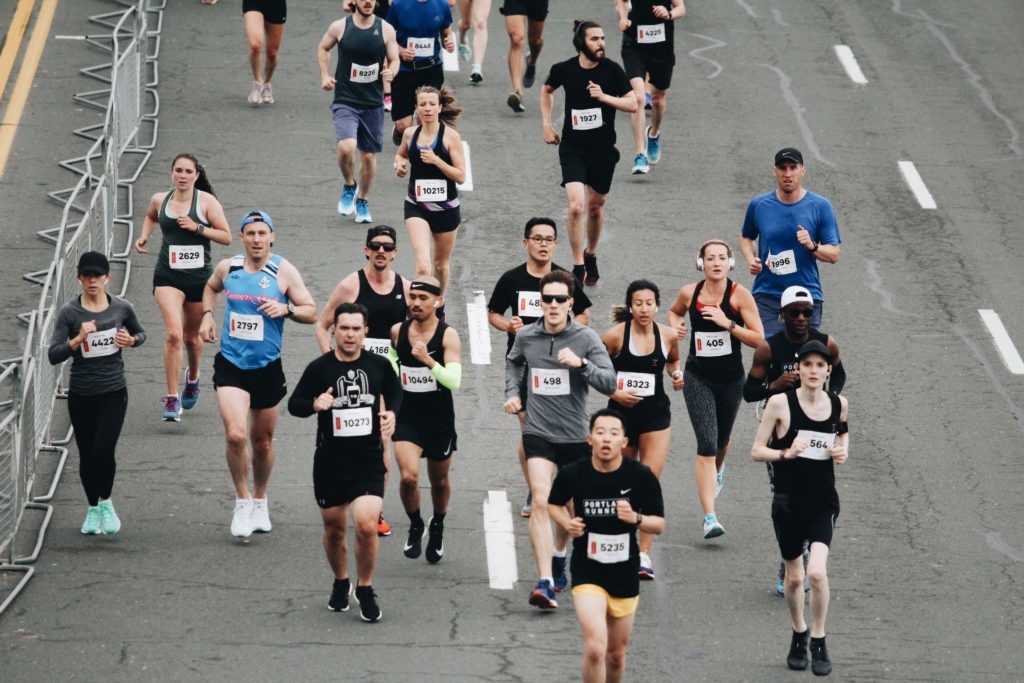
He told Canada Running Series, “My training since [the Toronto lululemon 10K] has been great. It has taken a step forward and I think there is a tendency to do that once you get your first race out of the way.”
Race race goes at 7:30 a.m. on July 7 starting at the Alberta Provincial Legislature.
(06/29/2019) ⚡AMPby Madeleine Kelly
Kenya´s Rhonex Kipruto will be the man to beat at AJC Peachtree Road Race
On July 4, Kipruto will be chasing an even-larger bonus at the AJC Peachtree Road Race —$50,000 in honor of its 50th Running - for breaking the event record of 27:04."I wouldn't put it past him," said Sam Grotewold, director of professional athletes at New York Road Runners, which puts on the Central Park race.
"You could tell (in New York) that you were watching something special even from the first mile or two." And that New York race wouldn't even be Kipruto's fastest 10K of 2018: In September, he won the Birell Grand Prix Prague 10K in 26:46, just two seconds off Komon's world record.
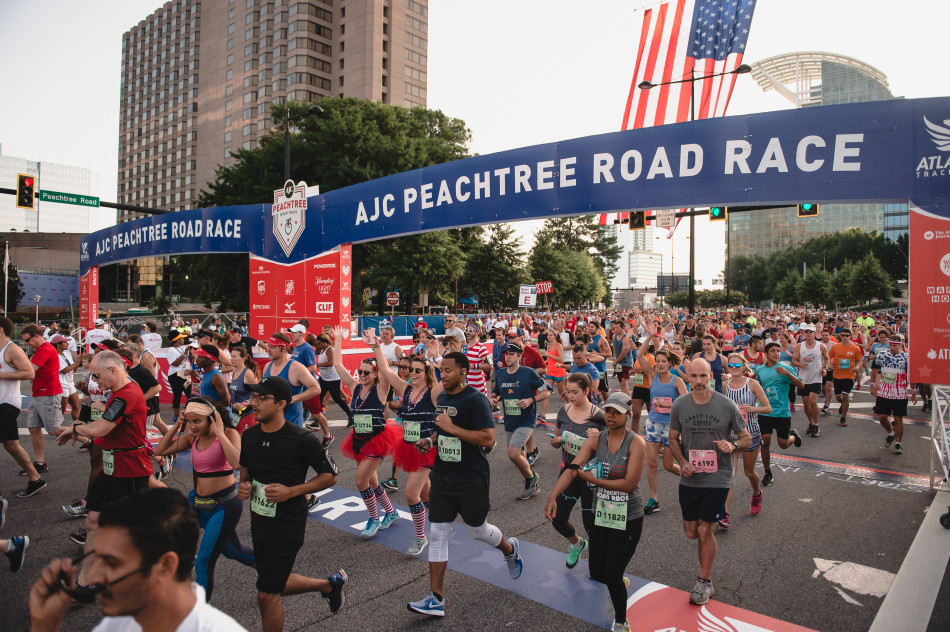
Set by Joseph Kimani in 1996, the Peachtree event record of 27:04 still stands as the fastest 10K ever run in the U.S. and is tied for ninth-fastest in the world. (The net downhill elevation of the Peachtree course means that times here are not eligible for official U.S. or world records.)
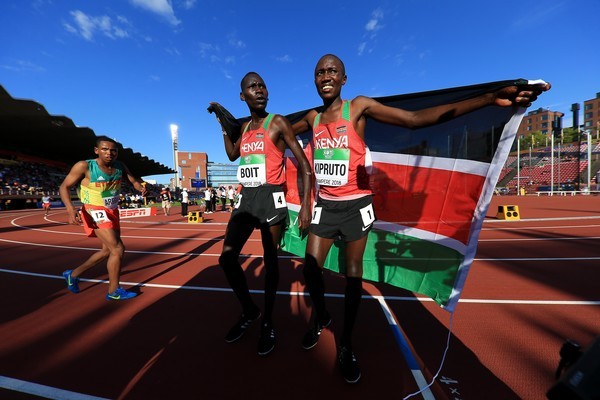
Kipruto said recently that his training is going well, declaring: "I am ready to tackle the race."Coached by the famed Brother Colm O'Connell, an Irish missionary at St. Patrick's school in Iten, Kenya, Kipruto finished sixth in the IAAF World Cross Country Championships earlier this year and is coming off a victory at the Stockholm Diamond League meet on May 30 in 26:50.16.
That's not only the fastest 10,000 meters on the track since the 2017 World Championships, but one of the fastest in almost eight years. And he's only 19 years old. "Distance runners run better as they get into their late 20s," said Jeff Galloway, winner of the inaugural Peachtree in 1970.
(06/29/2019) ⚡AMPAJC Peachtree Road Race
The AJC Peachtree Road Race, organized by the Atlanta Track Club, is the largest 10K in the world. In its 48th running, the AJC Peachtree Road Race has become a Fourth of July tradition for thousands of people throughout the metro Atlanta area and beyond. Come kick off your Fourth of July festivities with us! If you did not get...
more...Kenyan Maiyo Kipkurui and Emma kiruki won the 2019 Safaricom Lewa Marathon
Kipkurui, the two time Brighton Marathon champion clocked 2:20.04, three minutes ahead of Samson Lemaiyan (2:22.52) who took the second position while Edward Nderitu finished third in 2:24.31.
“I have been in training for the past two months preparing for this particular race, it felt like I was running in London, the support was massive.” Kipkurui told Citizen Digital.
“I did not even now that I was leading because I was with the 21km runners but they dropped one after the other until I was left alone,” he added.
In the women’s category, the 2008, champion Emma Muthuni Kiruki returned to her winning ways 11 years Later, clocking 2:50.31, 13 minutes ahead of Daisy Kipsugut (3:03.03) and Mary Wairimu 3:18.50.
The 36-year-old finished third in 21km in 2017 after a nine-year sabbatical from the competition.
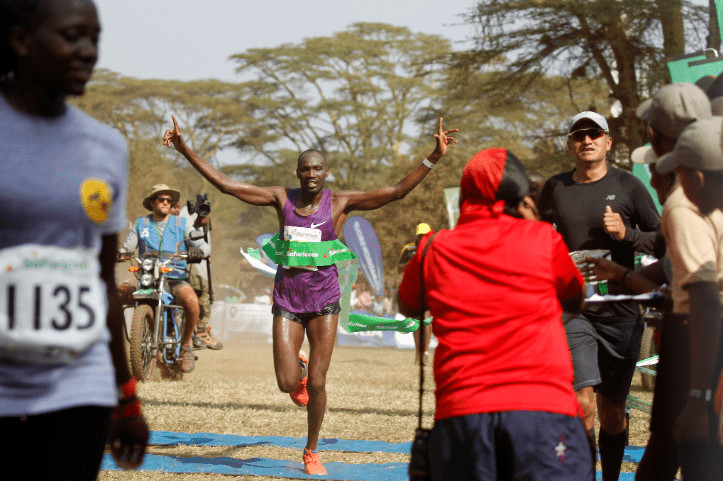
“The heat was too much and the track very difficult, following the half marathon runners helped me a lot in increasing my pace.
“I had prepared very well but the race got difficult towards the end now am going back to the drawing board to prepare for the next race,” Kiruki said.
In the 21km race Morris Munene easily defended his title in a time of 1:06.06 ahead of John Elimlim (1:06.29) and Mike Boit (1:06.53)
“The competition was stiff but I had prepared well, I wanted to use the race to prepare for the year’s Berlin marathon.” Munene told citizen digital
In the women’s category, fresh from pacing assignment in China Miriam Nakitare won the 21km women’s race in a time of 1:15.11.
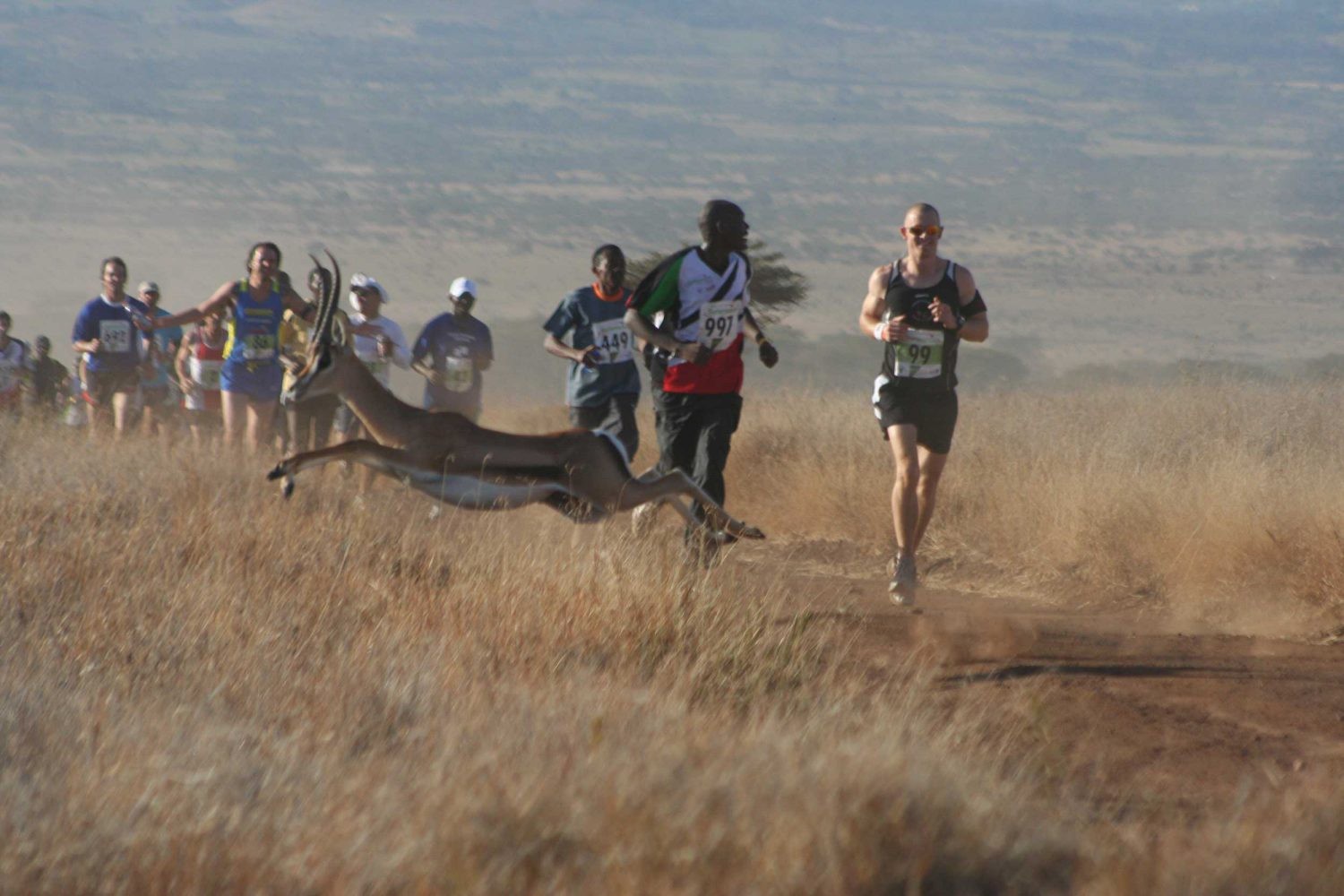
“I had prepared well for the race although when I started it was a little difficult but after 10km I saw the weakness in other competitors who could not take the hills easily and that is where I won the race.” Said Nakitare
Paulin Wangui (1:16.14) was second while Coroline nyaguthii (1:17.30) was third.
With the first lady Margaret Kenyatta being the chief Guest she joined over 1400 participants who took part in the event celebrating 20 years since inception on 2000. She took part in the 5km race.
(06/29/2019) ⚡AMPby Philip Muchiri
Safaricom Lewa Marathon
The first and most distinctive is that it is run on a wildlife conservancy, which is also a UNESCO world heritage site. The Lewa Wildlife Conservancy is home to a number of endangered and threatened species- and also a catalyst for community development for its neighboring communities. For the past 17 years, funds raised from the marathon have gone...
more...Three-time Berlin Marathon champion Kenya’s Gladys Cherono has predicted that the Women-only World Record could go down at the next London Marathon
Cherono, who made her London debut last year to finish fourth, disclosed on Wednesday that Mary Keitany’s Women-Only World Record of 2 hours, 17 minutes and 01 minute set at the same course in 2017 could be broken owing to the favorable weather and strong field in the English capital.
“It has been forecast that the weather in London will be warmer on Sunday and that, coupled with a strong field featuring the top five marathon entrants each of whom has run sub-2 hours and 20 minutes in the last one year with the exception of one, Keitany’s Women-only World Record in 2017 could be lowered,” said the 35-year-old Cherono, whose three World Marathon Major victories came from Berlin.
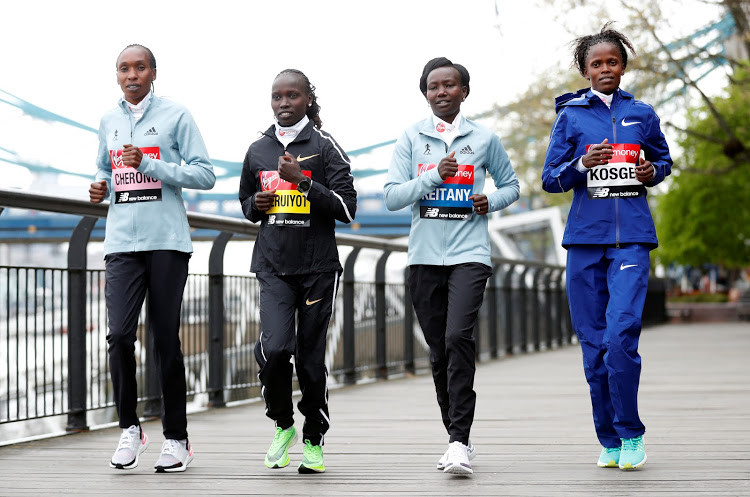
Cherono completed her hat-trick of victories in Berlin last year in 2:18:11, the sixth fastest time in the history of the marathon.

However, it’s Keitany who boasts the fastest time in the rich field for London Marathon from her trail-blazing victory in 2017, followed by Cherono’s 2:18:11 from last year’s Berlin Marathon. Defending champion Vivian Cheruiyot also weighs in with her triumphant time of 2:18:31 from last year’s race.
Kenya’s Brigid Kosgei has the fourth fastest time in the field of 2:18:35 from her victory at Chicago Marathon last year and is followed by Ethiopian Birhane Dibaba, who has a personal best of 2:19:51 from Tokyo Marathon last year.
(06/29/2019) ⚡AMPBMW Berlin Marathon
The story of the BERLIN-MARATHON is a story of the development of road running. When the first BERLIN-MARATHON was started on 13th October 1974 on a minor road next to the stadium of the organisers‘ club SC Charlottenburg Berlin 286 athletes had entered. The first winners were runners from Berlin: Günter Hallas (2:44:53), who still runs the BERLIN-MARATHON today, and...
more...Organizer Jim Ratcliffe says this about the sub two hour marathon attempt coming up: Nobody's been able to achieve this. It's not unlike trying to put a man on the moon.
Eliud Kipchoge will attempt to break the two-hour barrier for the marathon in Vienna in October after London was snubbed for the Ineos 1:59 Challenge.
The challenge - 65 years after Roger Bannister broke the four-minute mile - had been thought more likely to take place in the UK after the IAAF World Athletics Championships in Doha.
Instead, the Kenyan world record-holder will make his second bid to run the first sub-two-hour marathon in the Austrian capital on October 12.
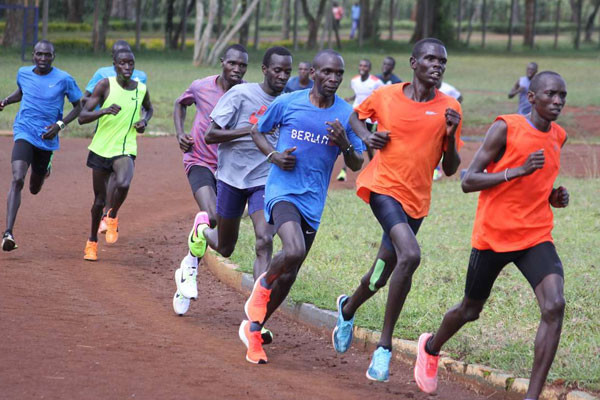
"After an extensive worldwide assessment process, The Prater - the famous Viennese park - has been chosen by the INEOS 1:59 Challenge as the venue that will give Kipchoge the optimum conditions to write himself into the history books," Ineos said.
Kipchoge ran the marathon in a time of two hours and 25 seconds on the Monza race track in Italy in his previous attempt to break the two-hour mark. He was assisted by pacemakers who ran set sections of the course on that occasion, meaning it was not recognised as a world record.
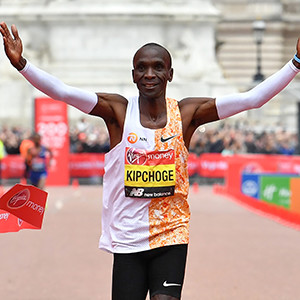
The 34-year-old 2016 Olympic gold medal winner set the current world record in Berlin last September when running 2:01:39, beating the previous best by 78 seconds.
He also ran the second-fastest time in history when completing the London marathon in April in a time of 2:02:37.
Sir Jim Ratcliffe, the Ineos chairman, said: "Eliud Kipchoge is the greatest ever marathon runner and the only athlete in the world who has any chance of beating the two-hour time.
"Nobody's been able to achieve this. It's not unlike trying to put a man on the moon."
(06/29/2019) ⚡AMPby Tom Morgan
INEOS 1:59 Challenge
Mankind have constantly sought to reach new frontiers and to achieve the impossible. From Edmund Hillary reaching the summit of Mount Everest to Roger Bannister’s four-minute mile to Felix Baumgartner jumping from space we have frequently redefined the limits of human achievement and broken new barriers previously seen as simply impossible. After the four-minute mile and the ten second 100m...
more...Wilf Leblanc 57-year-old smashes multi-Grouse Grind record on summer solstice
On June 21, Wilfrid Leblanc, 57, broke the Grouse Grind record, finishing 19 ascents in approximately 18 hours, and gaining 15,295 metres over 48K (almost double Mount Everest). The Grouse Grind trail ascends Grouse Mountain in North Vancouver. Every summer solstice, Grouse Mountain hosts the Multi-Grind Challenge, raising money for BC Children’s Hospital. Leblanc wasn’t the only vertical junkie breaking records. Brooke Spence, 37, and James Stewart, 40, each completed 18 Grinds. Spence, beat her previous record of 17 ascents, set in 2018.
The multi-grind challenge is unique as it relies on the Grouse Mountain tram system. For solstice, the tram is scheduled for every 10 minutes. Participants may begin as early as 4:00 a.m., and can begin their final Grind at 9:59:59 p.m. Leblanc met the legendary Spence a few weeks prior to the event, and determined that “19 was possible by doing 45-minute Grinds all day. 19 is not crazy.” Leblanc’s plan of attack was to “stay with Brooke. I know she’s strong. I’m just gonna stay with her, until I can’t.”

On June 21, Wilfrid Leblanc, 57, broke the Grouse Grind record, finishing 19 ascents in approximately 18 hours, and gaining 15,295 metres over 48K (almost double Mount Everest). The Grouse Grind trail ascends Grouse Mountain in North Vancouver. Every summer solstice, Grouse Mountain hosts the Multi-Grind Challenge, raising money for BC Children’s Hospital. Leblanc wasn’t the only vertical junkie breaking records. Brooke Spence, 37, and James Stewart, 40, each completed 18 Grinds. Spence, beat her previous record of 17 ascents, set in 2018.
The multi-grind challenge is unique as it relies on the Grouse Mountain tram system. For solstice, the tram is scheduled for every 10 minutes. Participants may begin as early as 4:00 a.m., and can begin their final Grind at 9:59:59 p.m. Leblanc met the legendary Spence a few weeks prior to the event, and determined that “19 was possible by doing 45-minute Grinds all day. 19 is not crazy.” Leblanc’s plan of attack was to “stay with Brooke. I know she’s strong. I’m just gonna stay with her, until I can’t.”

“More people did 15 [Grinds] this year alone than ever before,” says 2017 record-holder Ian Roberton. Robertson was planning on breaking his record of 17 ascents, until his stomach took a turn mid-day. Robertson, Leblanc, Spence, and Stewart were together for the first lap. But Stewart missed the first tram down at 4:45 a.m. due to a broken timing chip, which left him hiking solo until number 18. Leblanc and Spence hiked for 15 laps together, and had fun with friends joining the party for one to five Grinds.
The vertical master Spence says that “this year was a lot different than last year, because last year, I hiked alone. This year, there were four or five of us for a lot of it. It was tons of fun with pacers going in and out. You’re seeing all the other multi-grinders do it and everyone is so encouraging.” Leblanc said it was a highlight having his crew along with Spence’s hiking together.
(06/28/2019) ⚡AMPStrong, talented and deepest field at Western States Endurance Run at this year race
More than 350 of the world’s best endurance athletes will emerge from the cold and dark Saturday morning to stand at the start line at Squaw Valley, eager to begin the Western States 100-Mile Endurance Run from the resort to Auburn.
This year’s field of runners is one of the deepest in the history of the race, featuring the return of both the men and women’s champions along with several top-10 finishers from last year.
After coming up short in two previous bids to set the course record at Western States, Jim Walmsley, of Flagstaff, Arizona, broke through last year, finishing with a record time of 14 hours, 30 minutes, 4 seconds. Walmsley, 29, is set to defend his title this year against a deep field in the men’s division, which features eight of last year’s top-10 finishers.
Walmsley will make his fourth appearance in the race on Saturday. His attempt to break the course record in 2017 ended due to exhaustion at around mile 78. He rebounded the following year by setting the course record, and said breaking that mark could be in play on Saturday.
Walmsley said he’s also been told the early stages of the course are in better shape than they were in 2017, which had a similarly large snowpack. During 2017’s race he was also several minutes ahead of the record-breaking time he set in 2018.
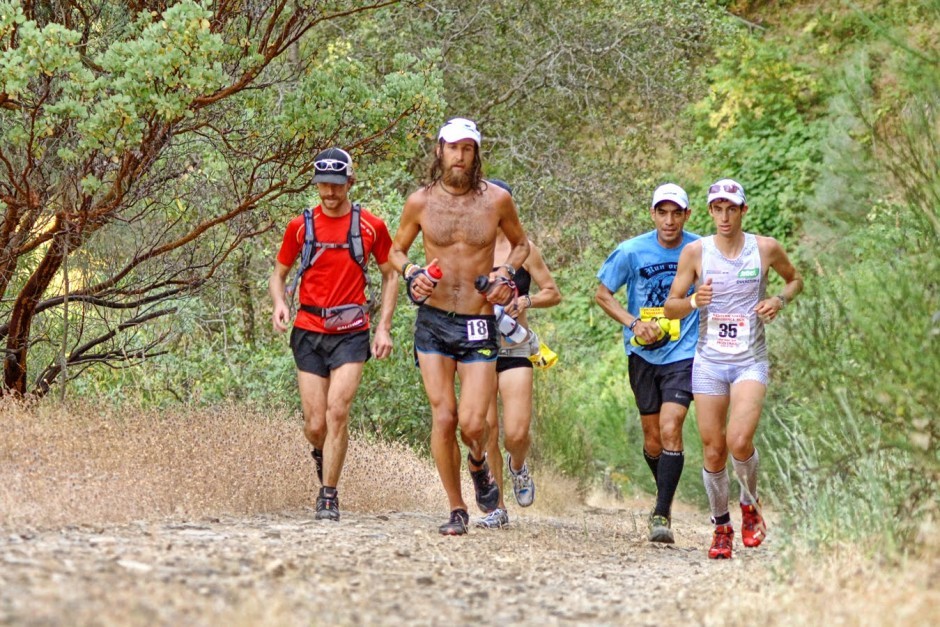
“Ultimately, it’s about listening to my own pace and just putting everything out there regardless,” he said. “As long as I end up giving my best effort and going to the well to get there, I’m always happy with it. Whether it’s the DNF in 2017 or the course record last year. I’m pretty proud of both days and the fact that I know I gave everything at both races. You can always live with that.”
Among those who could challenge Walmsley will be 2017 Western States winner Ryan Sandes. The 37-year-old South African broke through in his third attempt to win at Western States, and then ran as a pacer during last year’s event.
“I feel like it was a big thing for me to win Western States and a big achievement, so I feel pretty relaxed going into Western States from that point of view, but Western States is still one of the biggest 100 milers in the world, if not the biggest,” said Sandes. “I’ve still got that drive and hunger and I think that’s why I came back here. That’s a big motivating factor and I’m definitely hungry.”
Other top competitors on the men’s side include: Mark Hammond, Ian Sharman, Jeff Browning, Charlie Ware, Kyle Pietari, Paul Giblin and Kris Brown.
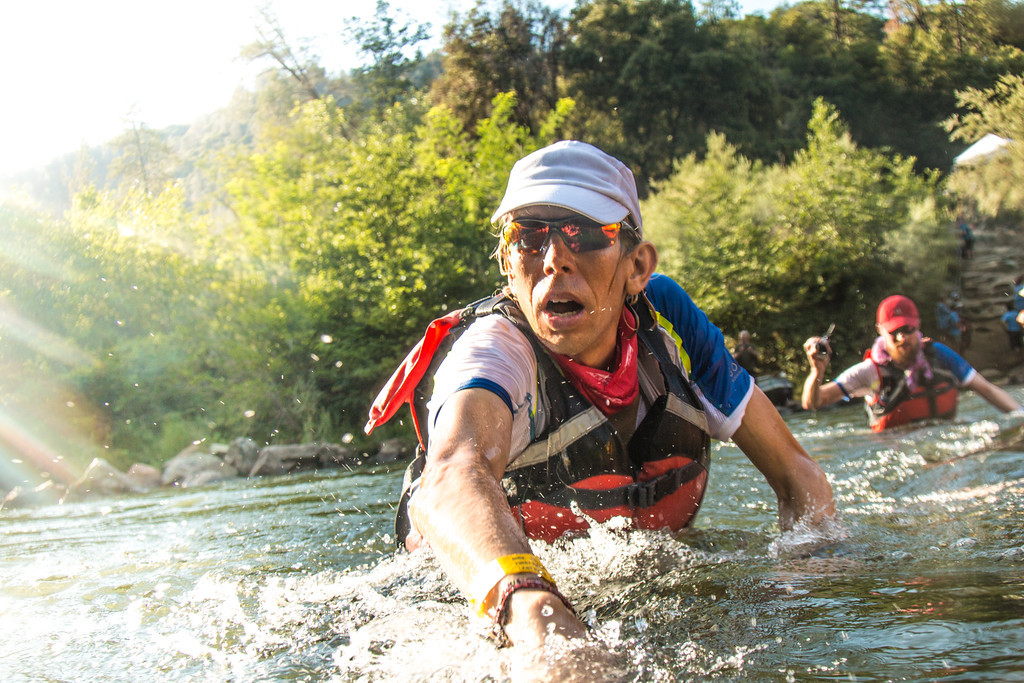
On the women’s side, defending champion Courtney Dauwalter, of Golden, Colorado, returns after winning in her first time out.
Dauwalter, 34, finished with the second fastest time ever for a woman last year, reaching Auburn with a time of 17:27:00.
Second-place finisher Katlyn Gerbin, 30, of Issaquah, Washington will also be in the field. Lucy Bartholomew, 23, of Melbourne, Australia, finished third last year and will be in this year’s field as well. Bartholomew has spent the past few weeks training in the area, and running with Truckee-Tahoe athletes at local races.
Kaci Lickteig, 32, of Omaha, Nebraska, who won in 2016, will race as well.
Other returning top-10 finishers from a year ago include: Amanda Basham, Cecilia Flori, Camelia Mayfield, Aliza Lapierre and Corrine Malcolm.
(06/28/2019) ⚡AMPWestern States 100
The Western States ® 100-Mile Endurance Run is the world’s oldest and most prestigious 100-mile trail race. Starting in Squaw Valley, California near the site of the 1960 Winter Olympics and ending 100.2 miles later in Auburn, California, Western States, in the decades since its inception in 1974, has come to represent one of the ultimate endurance tests in the...
more...Sinister 7 Ultra is coming up and this ultramarathon continues to test runners strength, endurance, and willpower to keep running when everything in them wants to stop
The sold-out ultra consists of seven legs that wind around the Crowsnest Pass. The course covers 161 km with an elevation gain of 6321 metres.
Each leg features a unique part of Crowsnest Pass. Leg 1 runs through the Frank Slide, and then Leg 2 runs along Hastings Ridge and below Turtle Mountain back to Blairmore. Leg 3 runs around Pass Powderkeg, the local ski hill. Leg 4 summits Saddle Mountain before heading straight to the Visitor Information Centre. Leg 5 runs through the Chinook/Allison area below Mount Tecumseh ending at the McGillivray staging area. Leg 6 is perhaps the most scenic, though it is often run in the dark. This leg is a tour around the iconic Crowsnest Mountain and the Seven Sisters. The course ends with Leg 7, around Wedge Mountain, crossing Nez Pierce Creek and ending at the Coleman Sports Complex.

The race attracts 1,600 registrants each year, including a few hundred soloists who run the full distance on their own. We have welcomed runners from across Canada, the USA, Europe, and as far away as Australia and Japan.
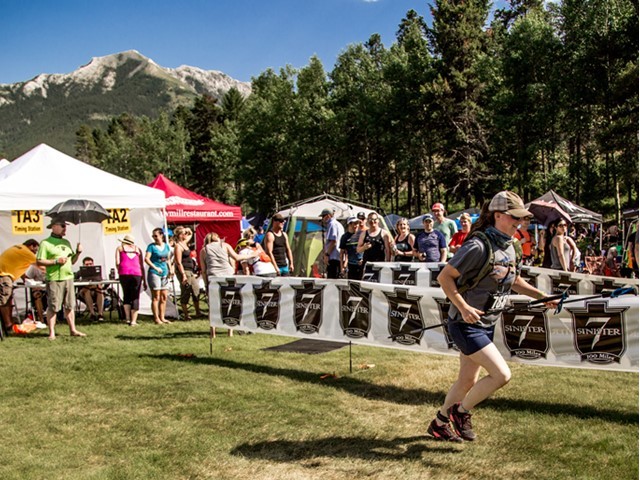
Many are drawn by the reputation of the race but most simply come for the unique challenge and the stunning scenery around Crowsnest Pass.
A special thank you goes out to all the volunteers for Sinister 7. This event would not be possible if it wasn’t for the many dedicated volunteers who come out to support the runners.
(06/28/2019) ⚡AMPSinister 7 Ultra
Welcome to the Sinister 7 Ultra — a race that may be the greatest challenge of your life. The 100 mile (161km) course will take you through the most rugged, remote and beautiful terrain in Alberta's stunning Rocky Mountains. With 6,400m of elevation gain across the course, this race will punish those who are not prepared.The Sinister 7 is open...
more...Inspirational Becca Anderson, 28, from Westcliffe Way, who overcame the odds to beat leukemia nine years ago is raising money for the charity that saved her life
Becca Anderson will run the Great North Run this year, in aid of the Anthony Nolan Trust, the blood cancer charity which helped her get a life-saving bone marrow transplant.
The trust matches individuals who are willing to donate their blood stem cells or bone marrow, with people in need of life-saving transplants. Just as Becca was nine years ago.
In May 2010, at just 18 years-old, Becca was diagnosed with Acute Myeloid Leukemia. Her only chances of survival were three rounds of intense chemotherapy followed by a bone marrow transplant.
None of her family were a match, but after three months of searching, the Anthony Nolan Trust was able to find her a donor, and on December 3, 2010, she received her transplant. Becca was given the all clear from cancer six months later.

“It’s a slow process, it takes about a year to fully recover, but you are constantly living in fear,” said Becca who was nominated for Role Model of the Year in the Pride of South Tyneside Awards 2011.
“You have got to build up your immune system from nothing. It’s only been in the last two or three years I have thought, ‘I can start living a life and taking advantage of these years I’ve been given’.”
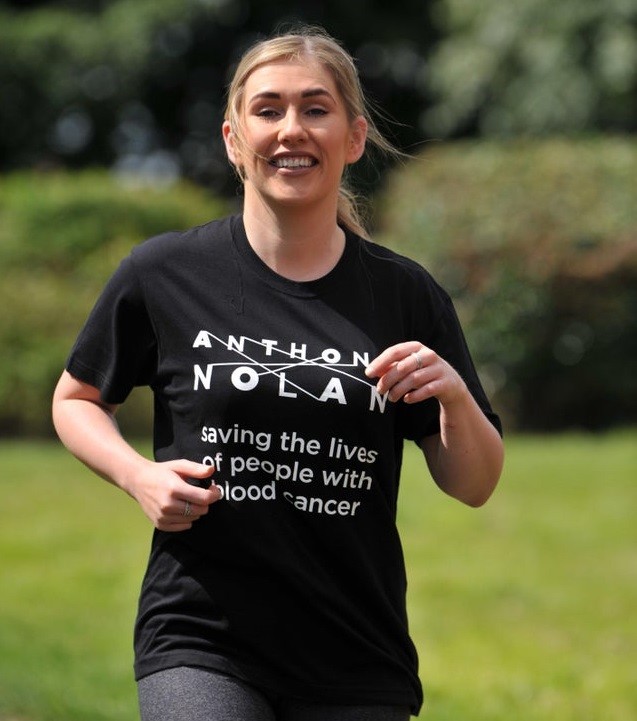
Now she is celebrating nine years of being cancer-free, by showing her appreciation for the charity that saved her life, and offering her support for those still waiting for a match.
She is aiming to raise £1 for each day of her life she has got back following her transplant, bringing the total amount to £3,201 by the day of the half marathon on September 8, 2019.
(06/28/2019) ⚡AMPGreat North Run
Great North Run founder Brendan Foster believes Britain is ready to welcome the world with open arms after the launch of the event's most ambitious plan to date. The Great World Run campaign seeks to recruit one runner from every country in the United Nations – 193 in total – to take part in the iconic half marathon in...
more...Kenyan Gladys Cherono will return to defend her Berlin marathon title
A top-class duel is in prospect in the BMWBerlin Marathon when Germany’s biggest marathon takes place on September 29. Gladys Cherono, both title and course record holder, will face Vivian Cheruiyot.
The two Kenyans are among an elite group of world-class women runners who have improved their personal bests to below 2:19 in the past year, winning high quality races in the Abbott World Marathon Majors (AWMM) series.
But they will both have to beware of a dangerous Ethiopian, Mare Dibaba, who has twice run under 2:20 and took the bronze medal in the 2016 Olympic Marathon in Rio.
“We are naturally delighted that we’ll be having the defending champion Gladys Cherono on the start line,” said Race Director Mark Milde and added: “Compared to the men, the women in Berlin have some ground to make up.
With three very strong contenders in the line-up, the women’s race on September 29 could be centre stage.” In the past twelve years the men’s race at the BMW Berlin Marathon has produced a string of world class times with six world records into the bargain. The presence of Gladys Cherono and Vivian Cheruiyot suggests that these two Kenyans could headline a show-stealing performance from the elite women in general.
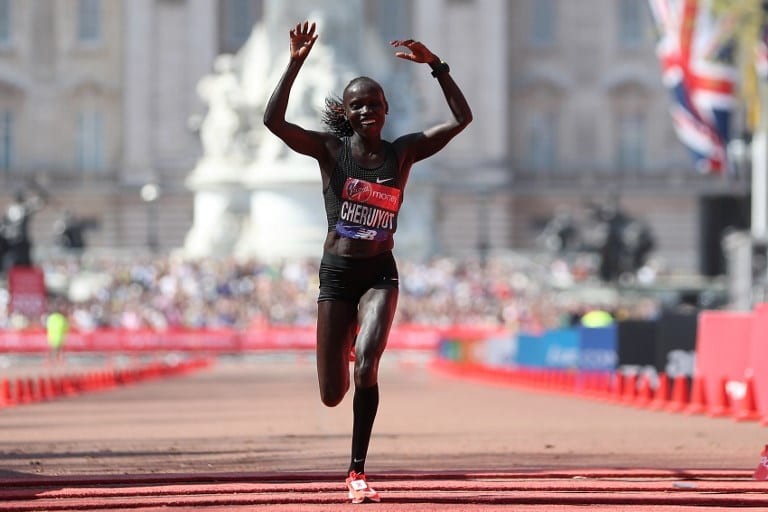
After victories in 2015 and 2017 Gladys Cherono achieved her third triumph in the BMW Berlin Marathon last year. The 36-year-old, who won the World Half Marathon title in 2014, also broke the course record of the Japanese Mizuki Noguchi of 2:19:12 which had stood for 13 years. Cherono’s time of 2:18:11 was a big improvement on her lifetime best and helped her join the exclusive company of women champions in Berlin with three wins apiece: Renata Kokowska of Poland, the home town favorite Uta Pippig and Ethiopia’s Aberu Kebede. “My goal is now to win for the fourth time in Berlin,” announced Gladys Cherono soon after she had completed the hat-trick last year.
Her return is a clear bid to go for the unique honour of a fourth title.
Gladys Cherono may well have to run another personal best to win title number four. Among her rivals will be her compatriot Vivian Cheruiyot who will be making her debut in the BMW Berlin Marathon. The 35-year-old Olympic 5,000m champion in 2016 won last year’s London Marathon, improving her best to 2:18:31.
This year in London she finished runner-up, beating Gladys Cherono on both occasions. Both Kenyans are in the women’s top ten of all-time fastest marathon runners with Cherono at number six and Cheruiyot at number eight, setting up what should be a fascinating clash.

Another who will be making her BMW Berlin Marathon debut will be Mare Dibaba. The 29-year-old Ethiopian actually has more marathon experience than either Gladys Cherono or Vivian Cheruiyot.
She won the world title in Beijing in 2015 and one year later took the bronze medal at the Rio Olympics. She has a best of 2:19:52, achieving that time twice, in 2012 and 2015. Given Berlin’s renowned fast course, Dibaba will be aiming to run another very fast time and challenge the Kenyan duo.
(06/27/2019) ⚡AMP
BMW Berlin Marathon
The story of the BERLIN-MARATHON is a story of the development of road running. When the first BERLIN-MARATHON was started on 13th October 1974 on a minor road next to the stadium of the organisers‘ club SC Charlottenburg Berlin 286 athletes had entered. The first winners were runners from Berlin: Günter Hallas (2:44:53), who still runs the BERLIN-MARATHON today, and...
more...Eliud Kipchoge’s second attempt to break the two-hour barrier for the marathon will take place in Vienna on October 12 event organisers INEOS said on Thursday
Kenyan runner Eliud Kipchoge's attempt to run a marathon in under two hours will take place in Vienna on Oct. 12.
The attempt will be on a multi-lap course in The Prater, a park in Vienna. If the weather is poor, organizers have reserved eight more days.

Kipchoge says Vienna offers "a fast and flat course, nicely protected by trees."

Kipchoge lowered the marathon world record to 2 hours, 1 minute, 39 seconds last year in Berlin. He has tried to break the 2-hour barrier before, running 2:00:25 at the Monza auto racing track in 2017.
That wasn't considered a world record because pacers entered mid-race and drinks were given to runners via mopeds.
(06/27/2019) ⚡AMPINEOS 1:59 Challenge
Mankind have constantly sought to reach new frontiers and to achieve the impossible. From Edmund Hillary reaching the summit of Mount Everest to Roger Bannister’s four-minute mile to Felix Baumgartner jumping from space we have frequently redefined the limits of human achievement and broken new barriers previously seen as simply impossible. After the four-minute mile and the ten second 100m...
more...Missoula’s running community creates many great athletes and many great volunteers during marathon week
Tim Mosbacher is a retired middle school teacher taking a break as he runs around the country to once again lend a hand to his hometown race.
Mosbacher started running because he didn’t have a better option.
“I was in middle school back in the day,” said Mosbacher. “One of the P.E. coaches said, ‘You have to do a sport.’ And I said, ‘Oh, I don’t know what do do. Well, I’ll go run.’ So I started doing cross country then, and I was really bad.”
The Billings native improved enough to earn a scholarship at Dickinson State University. He tried a couple marathons in the late 1990s, but then took a break. He hit the road again a decade ago, running his hometown Missoula Marathon, and pretty soon he had found something to chase.
“It wasn’t until probably my fourth one. I said, ‘Well, I’ve done four different states,'” said Mosbacher. “And then I started picking ones I liked. And so once I did my 10th one, then I said, ‘I’m all in.'”
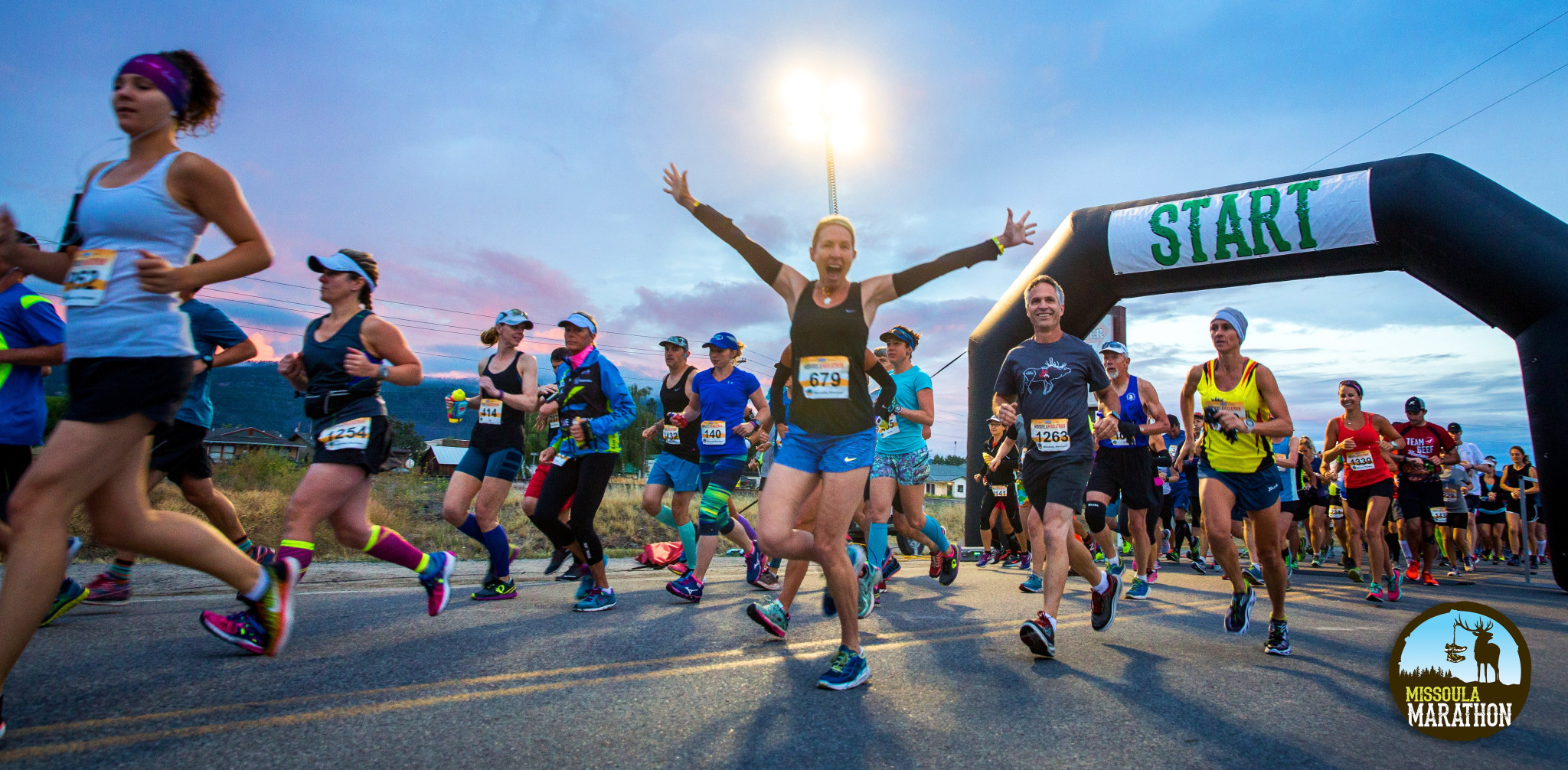
Mosbacher has now run marathons in 47 states. After Portland, Maine in October, the New York City Marathon in November, and a run in Maui in January, the 53-year-old can claim all 50. He has seen most of the country and every kind of race on his trek.
“I’ve run Boston, and I’ve run Chicago, so you’ve got those big ones,” Mosbacher said. “And then I’ve run really small ones. I’ve run one that had, I think, 15 runners in it.”
Ironically, Mosbacher has not run the Missoula Marathon in a decade. For the past six years, he helps the event by organizing and recruiting the elite runners who come to town.
“I go to other people’s communities and take from their community, really, when you’re running there,” said Mosbacher. “And so it’s really neat to give back.”

He admits he wants to run the Missoula Marathon again some day, because he wants a better time. In retirement, he is running faster than ever. Mosbacher won the Eisenhower Marathon in Kansas this year in a personal best time of 2 hours, 48 minutes, nearly 50 minutes faster than his 2009 time in Missoula.
Mosbacher also wants to run Tokyo, London and Berlin to finish off the six majors in the marathon world. He is excited to watch others chase fast times at the Missoula Marathon this week.
(06/26/2019) ⚡AMPby Derek Buerkle
Missoula Marathon
Half and full marathon in Missoula, Montana, in the city they call "The Garden City." Amazing participation by the entire town and county. Front lawn hose squads cool down the runners en route. Lots of rest stations. The full marathon is a Boston qualifier. Runner's World rated the course as one of the best overall road races. ...
more...Five-time Canadian record-holder Mohammed Ahmed and NCAA champion Justyn Knight are going head-to-head this Sunday in the Pre Classic two-mile
Both runners have had great 2019 seasons. Knight has already run a huge 5,000m personal best 13:09.76 at the Rome Diamond League to secure Olympic standard and one of the fastest 5,000m times in Canadian history.

In the same race, Ahmed became the first Canadian ever to go sub-13 in a 5,000m. He broke his own Canadian record by three seconds, running a 12:58.16 to finish sixth.
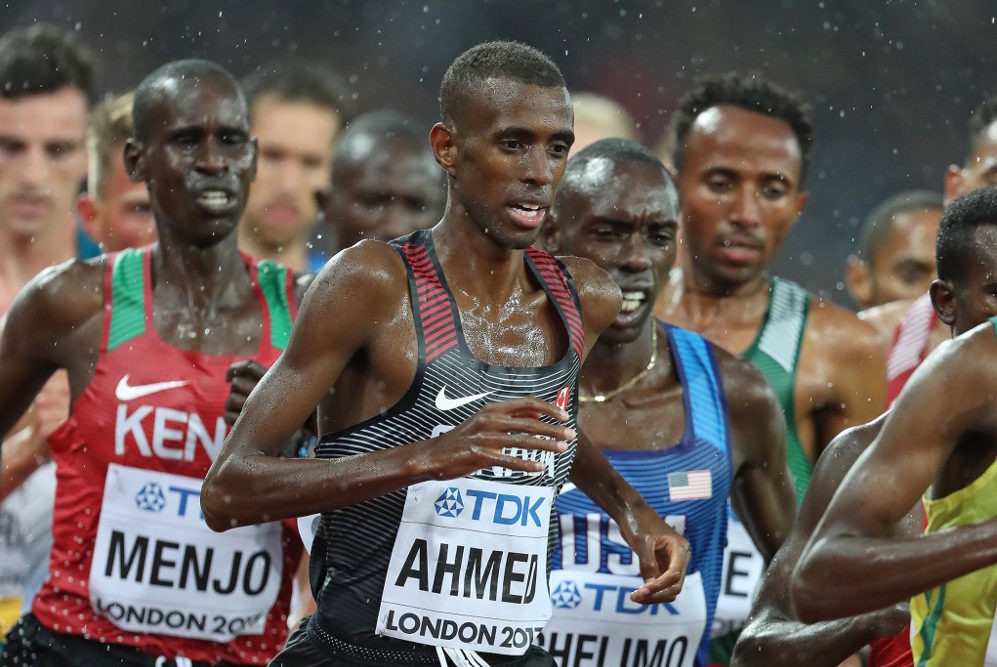
Ahmed had been hunting the 12:59 for a long time, but to run that fast takes a special day, and in Rome his time came.
Heading into Pre this weekend, both runners have an Olympic standard, which means they also have World Championship standard for this year’s championship in Doha. Ahmed has already been named to the team in the 10,000m.
(06/26/2019) ⚡AMPPrefontaine Classic
The Pre Classic, part of the Diamond League series of international meets featuring Olympic-level athletes, is scheduled to be held at the new Hayward Field in Eugene. The Prefontaine Classicis the longest-running outdoor invitational track & field meet in America and is part of the elite Wanda Diamond League of meets held worldwide annually. The Pre Classic’s results score has...
more...Kenyan Vivian Cheruiyot will race this year’s Berlin Marathon on September 29 for the first time
Cheruiyot will face defending champion, three-time winner and fellow Kenyan Gladys Cherono and 2016 Olympic bronze medallist and 2015 world champion in the marathon, Mare Dibaba of Ethiopia.
Cheruiyot finished second at New York in 2018, and second again in London in April behind countrywoman Brigid Kosgei, reversing their 2018 finishing positions.

Her personal best and Cherono’s (who was fourth in London this year) are very close, at 2:18:31 and 2:18:11. Cherono is 36, and Cheruiyot will turn 36 just before Berlin.
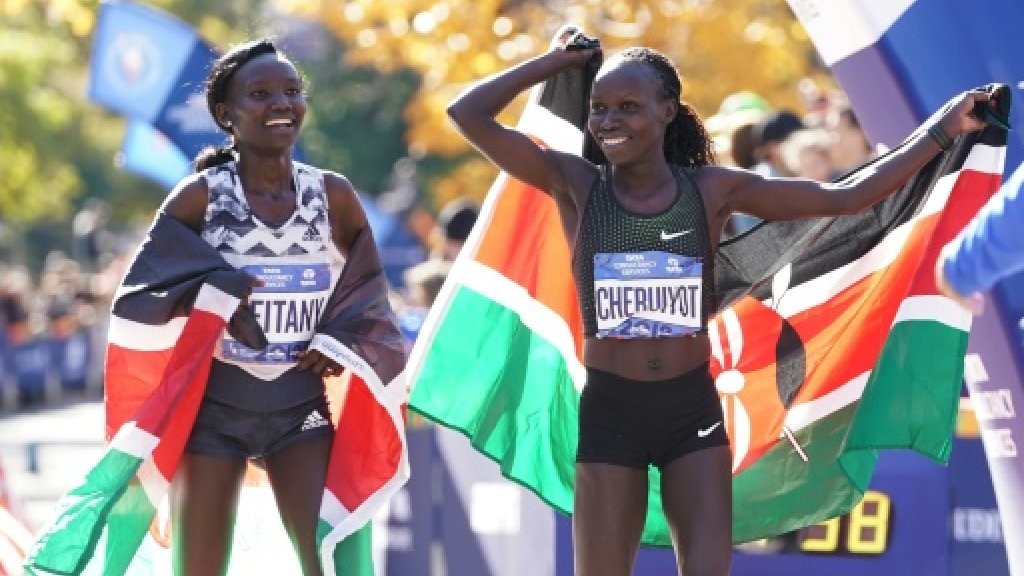
Considering both Rio gold medallist Jemima Sumgong and silver medallist Eunice Kirwa are now serving doping suspensions, Dibaba could realistically be considered the Olympic gold medallist (though neither Sumgong nor Kirwa has been relieved of their medals).
Her PB, 2:19:52, is from Dubai 2012, but at 29 she is somewhat younger than her competitors.
(06/26/2019) ⚡AMPBMW Berlin Marathon
The story of the BERLIN-MARATHON is a story of the development of road running. When the first BERLIN-MARATHON was started on 13th October 1974 on a minor road next to the stadium of the organisers‘ club SC Charlottenburg Berlin 286 athletes had entered. The first winners were runners from Berlin: Günter Hallas (2:44:53), who still runs the BERLIN-MARATHON today, and...
more...World leaders Christian Coleman and Shelly-Ann Fraser-Pryce form part of two strong 100m fields at the Prefontaine Classic
n 2018 Coleman broke the world indoor 60m record, won world indoor 60m gold and ended the season with the fastest time in the world, 9.79. After finishing second at the Prefontaine Classic in 2018 in a wind-aided 9.84, the 23-year-old returns to this year’s edition off the back of two world-leading marks: 9.86 in Shanghai and 9.85 in Olso.
This weekend he will face a field full of sub-10-second performers, two of whom have bettered that barrier this year.
Cravon Gillespie recorded lifetime bests of 9.93 for 100m and 19.93 for 200m on the same day to finish second in both events at the recent NCAA Championships.
European champion Zharnel Hughes of Great Britain is undefeated at 100m this year and heads to Stanford with a season’s best of 9.97, just 0.06 shy of his lifetime best.
The field also includes world champion Justin Gatlin, prolific sub-10-second performer Michael Rodgers, 2018 NCAA champion Cameron Burrell, 2018 Jamaican champion Tyquendo Tracey and Italian record-holder Filippo Tortu.
The women’s 100m may not be a scoring discipline in Stanford, but that hasn’t affected the quality as all eight women in the field have previously bettered 11 seconds and four of them have sub-10.80 PBs.
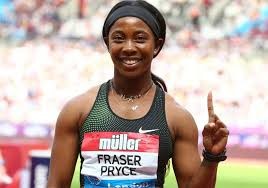
Multiple world and Olympic champion Shelly-Ann Fraser-Pryce, who became a mother in 2017, is back to her best. At the recent Jamaican Championships she posted times of 10.73 and 22.22 – her fastest times since 2013 and just a whisker away from her lifetime bests.
The 32-year-old won the Prefontaine Classic 100m in 2013 and 2015 so will be looking for a third victory this weekend.
But the experienced Jamaican will be up against one of the newest and most exciting sprint talents.
Sha’Carri Richardson, aged just 19, won the 100m in 10.75 and placed second in the 200m in 22.17 at the NCAA Championships earlier this month, breaking the world U20 records in both events (pending ratification).
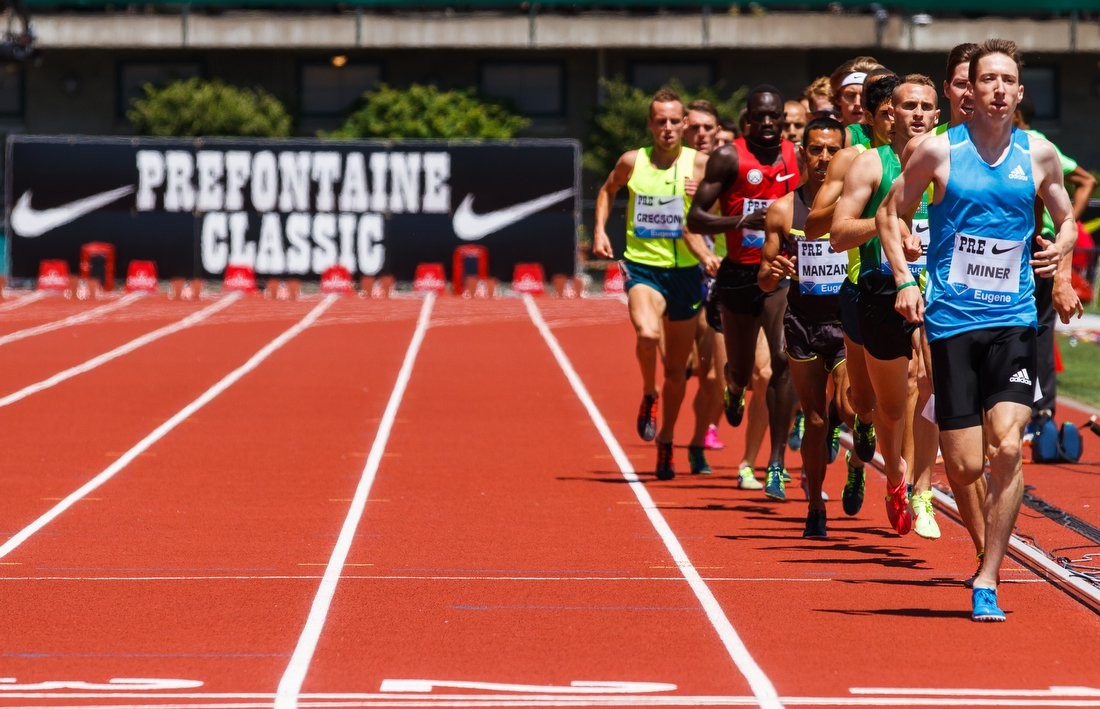
The teenager has since turned professional and this will be her first race since her record-breaking feats at the NCAA Championships.
Double world silver medallist Marie-Josee Ta Lou, who won last year’s Pre Classic, will be back, so too will her Ivorian compatriot Murielle Ahoure, the 2018 Diamond League champion.
Two-time Pre Classic winner English Gardner, US champion Aleia Hobbs, world indoor bronze medallist Mujinga Kambundji and Olympic finalist Michelle-Lee Ahye are also in the loaded field.
(06/26/2019) ⚡AMPby IAAF
Prefontaine Classic
The Pre Classic, part of the Diamond League series of international meets featuring Olympic-level athletes, is scheduled to be held at the new Hayward Field in Eugene. The Prefontaine Classicis the longest-running outdoor invitational track & field meet in America and is part of the elite Wanda Diamond League of meets held worldwide annually. The Pre Classic’s results score has...
more...Jessica Hull’s decision to turn professional and leave Oregon with a collegiate season of outdoor track eligibility remaining was thoughtful and ultimately bittersweet, she said
The times she was running, the way she was progressing in her training, and the big meets on the calendar over the coming year — including the 2020 Olympics in Tokyo — all indicated the time was right for the redshirt junior from Australia to move on.
“You don’t want the opportunity to slip free,” Hull said. “You want to make the most of all that there is out there. Hopefully, the transition will be with eyes wide open and I learn as much as I can the next 12 months leading to Tokyo.”
The 22-year-old middle distance runner, who signed with an agent last week but not yet a shoe sponsor, leaves the Ducks as a four-time NCAA champion, seven-time all-American and two-time record-holder who is coming off the most impressive year of her career.
She opened her indoor season by resetting her school record in the mile in 4 minutes, 32.03 seconds. In her second race, she broke Jordan Hasay’s school record in the 3,000 meters with an 8:53.91 at the Husky Classic.
She went on to win NCAA Indoor titles in the 3,000 and distance medley relay.
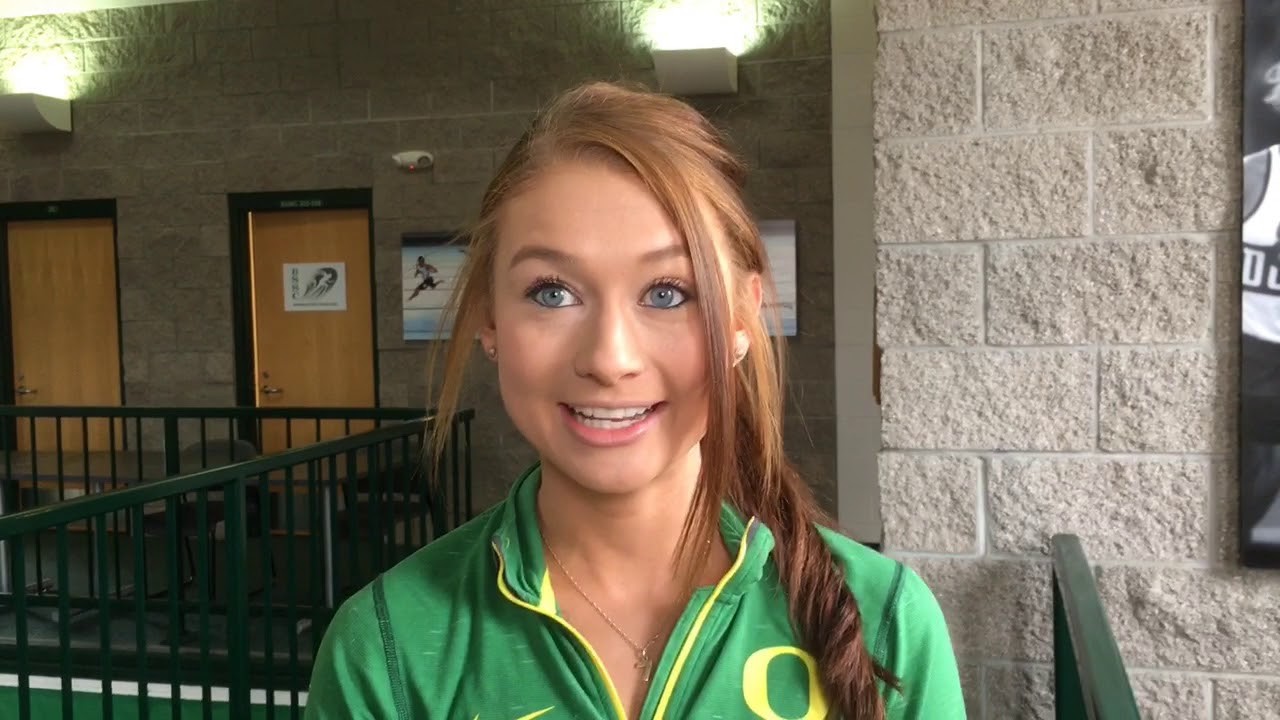
During the outdoor season, she was the national leader in the 1,500 during the regular season at 4:12.08 and then topped that with a 4:09.90 at the NCAA West Preliminary meet.
She also became the fourth-fastest performer in Oregon history in the 5,000 with her 15:34.93 at the Stanford Invitational and a two-time Pac-12 champion in the 1,500.
She went into the NCAA Outdoor Championships as the defending champion but finished in second place despite running a personal-record and World Outdoor Championship qualifying time of 4:06.27 — more than two seconds faster than what she ran in 2018 to win the title.
It was also that performance that gave Hull the last bit evidence she needed to turn pro.
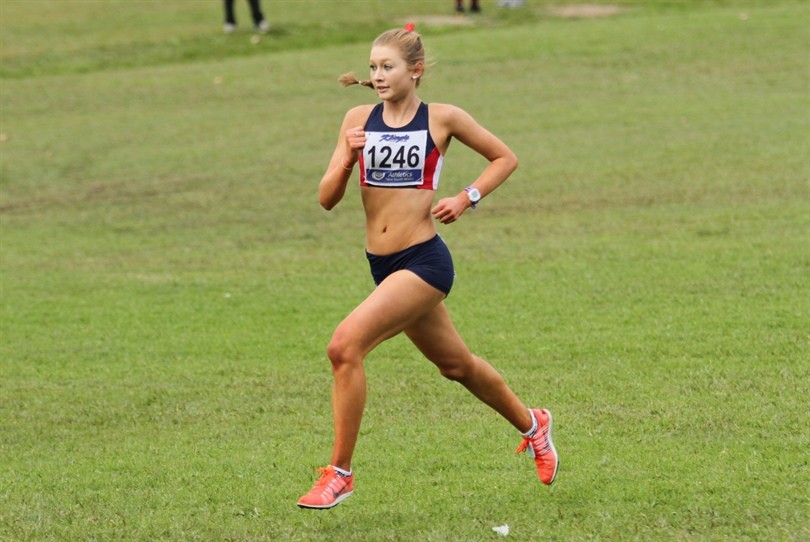
“It kind of solidified it,” said Hull, who is entered in summer school at Oregon to finish the last class she needs to complete her degree. “It definitely showed I was ready to mix it up with that level of competition. It was a bit of a confidence booster to see that I could do it. The way training was going, we knew those kinds of marks were there, I just hadn’t really been in a race to see that I could do it.”
Hull will get tested right away in her first race as a professional when she takes on a star-studded field in the 1,500 during the Prefontaine Classic on Sunday at Stanford’s Cobb Track & Angell Field.
(06/25/2019) ⚡AMPPrefontaine Classic
The Pre Classic, part of the Diamond League series of international meets featuring Olympic-level athletes, is scheduled to be held at the new Hayward Field in Eugene. The Prefontaine Classicis the longest-running outdoor invitational track & field meet in America and is part of the elite Wanda Diamond League of meets held worldwide annually. The Pre Classic’s results score has...
more...June 25 would have been Gabriele Grunewald’s 33rd birthday and the state of Minnesota has named June 25 Brave Like Gabe Day
Gabriele Grunewald was initially diagnosed with adenoid cystic carcinoma, a rare form of cancer affecting the salivary gland, in 2009, and thyroid cancer the following year.
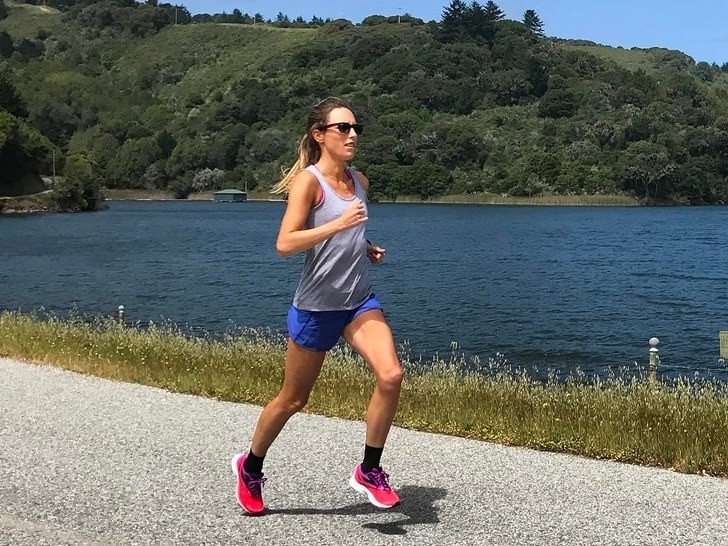
She graduated as an NCAA All-American in the 1,500m, and pursued a professional running career despite dealing with several surgeries and chemotherapy. In 2014, she won the US indoor national championship in the 3,000m. Grunewald was sponsored by Brooks.
In late 2016 she learned the cancer had spread to her liver, and she had an operation that left a long and visible scar on her abdomen, which became a badge of courage as she continued to race and began to speak publicly about her cancer journey.
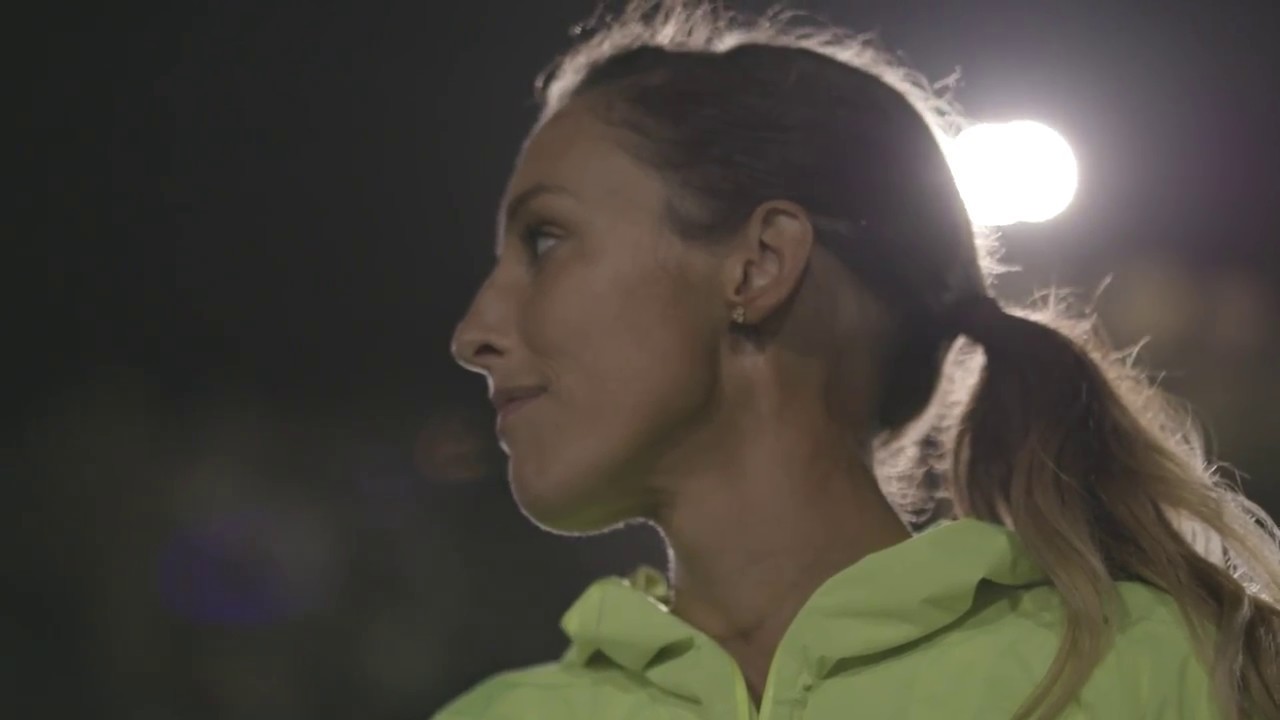
Two weeks ago Gabe lost her battle and passed away. The world lost an amazing woman but she will never be forgotten.
In her honor runners will gather on Tuesday (June 25) evening at 6:15 pm in B.F. Nelson Park in Minneapolis, Minnestoa to honour Grunewald.
If you’re not able to make the run in person, you can contribute via Strava. So far 6,693 participants have run a collective 8,735 miles.
The Strava challenge is open for the entire day today. Additionally, runners can photograph their runs and use the #BravelikeGabe or #Runningonhope to contribute.
(06/25/2019) ⚡AMPby Madeleine Kelly
Glenn Sutton is aiming to break Kiwi record at Death Valley
Home to the hottest temperature ever recorded on the planet, Death Valley is not a place many Kiwis would pick for a mid-winter escape.
For Dunedin ultra-marathon runner Glenn Sutton however, he’s picked the soaring desert as the venue for his latest conquest.
Starting on July 15, he’ll run 217 kilometres in temperatures ranging from the low forties to the high fifties.
"They don’t call it the toughest foot race in the world for nothing," he told 1 NEWS.
Sutton will become the first Kiwi to attempt the race for a third time, after finishing it in both 2014 and 2015.

His goal this time though is to become the quickest Kiwi, aiming to cross the finish line in less than 36 hours and 32 minutes.
"If you complete the course in under 48 hours, you get a belt buckle and a t-shirt," he says.
His training involves running a 100km every week. While much of it is outside in the freezing Dunedin winter, a lot of it is done inside his custom-built heat-box.
Sutton powers the heavily-insulated box with three high-powered heaters, with temperatures getting up to the mid-forties.
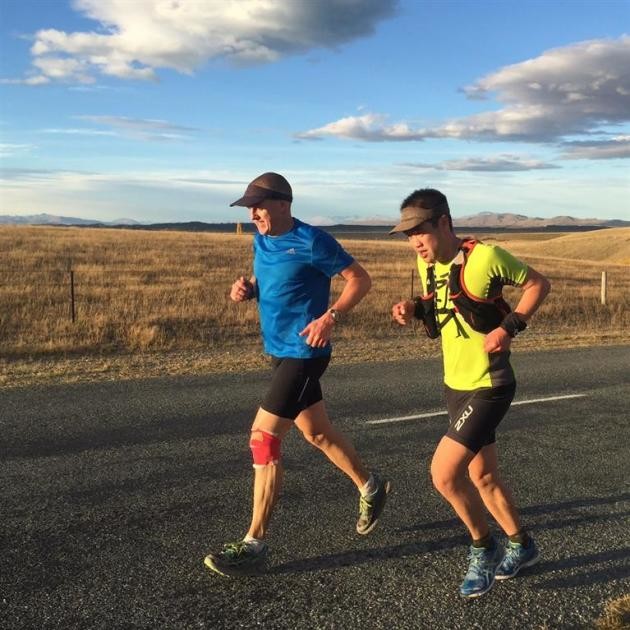
The Dunedin runner has even managed to draw the attention of one of New Zealand’s biggest breweries, with Emerson’s creating a beer dedicated to Sutton’s mission.
Called - Into The Valley - the company have given the brew a low 2.17 per cent alcohol rating, to match the 217 km journey Sutton will be running.
But with temperatures at last year’s event getting up to an unofficial 58C, Sutton’s first choice of drink at the finish line, might just have to be water.
(06/25/2019) ⚡AMPby John Mckenzie
Death Valley Trail Marathon
This scenic wilderness trail run is on a gravel jeep road from Beatty, NV through the picturesque Titus Canyon, finishing in Death Valley (entire run is in Death Valley National Park). The desert is beautiful this time of year with mild temperatures; lows at night between 30 and 40 degrees and highs during the day from the low-60s to mid-70s....
more...The secret to a healthier life may lie in the guts of athletes, Scientists who studied runners discovered a type of bacteria that flourished in their digestive tracts
The Veillonella bacteria produce a molecule that helps increase exercise endurance.
The results, published Monday in the journal Nature Medicine, could someday change the way we work out, said microbiologist George Weinstock from the Jackson Laboratory in Farmington, Conn.
“It starts to build the case that someday we may be able to take a Veillonella probiotic just before we are going to exercise, and we'll be able to exercise more” said Weinstock, who wasn’t involved in the study.
Our bodies are teeming with microbes, helping us digest the food we eat and providing us with nutrients that we can’t make ourselves. Studies of these microbes — collectively known as the microbiome — have led to insights into diseases ranging from obesity to arthritis.

Previous research has found that athletes have a very different composition of microbes within their guts compared to non-athletes, but it’s not yet clear how those differences contribute to an athlete’s health.
“It’s the notion of mining the biology of super-healthy people and translating that into nutritional interventions for everyone else,” said study leader Jonathan Scheiman, who began studying the microbiomes of athletes while working at Harvard’s Wyss Institute for Biologically Inspired Engineering.
Almost every day for a week before and after the 2015 Boston Marathon, the Harvard researchers collected stool samples from 15 runners entered in the race as well as from 10 non-athletes, who served as controls. Those samples allowed researchers to see what kinds of microbes were inhabiting subjects’ guts.
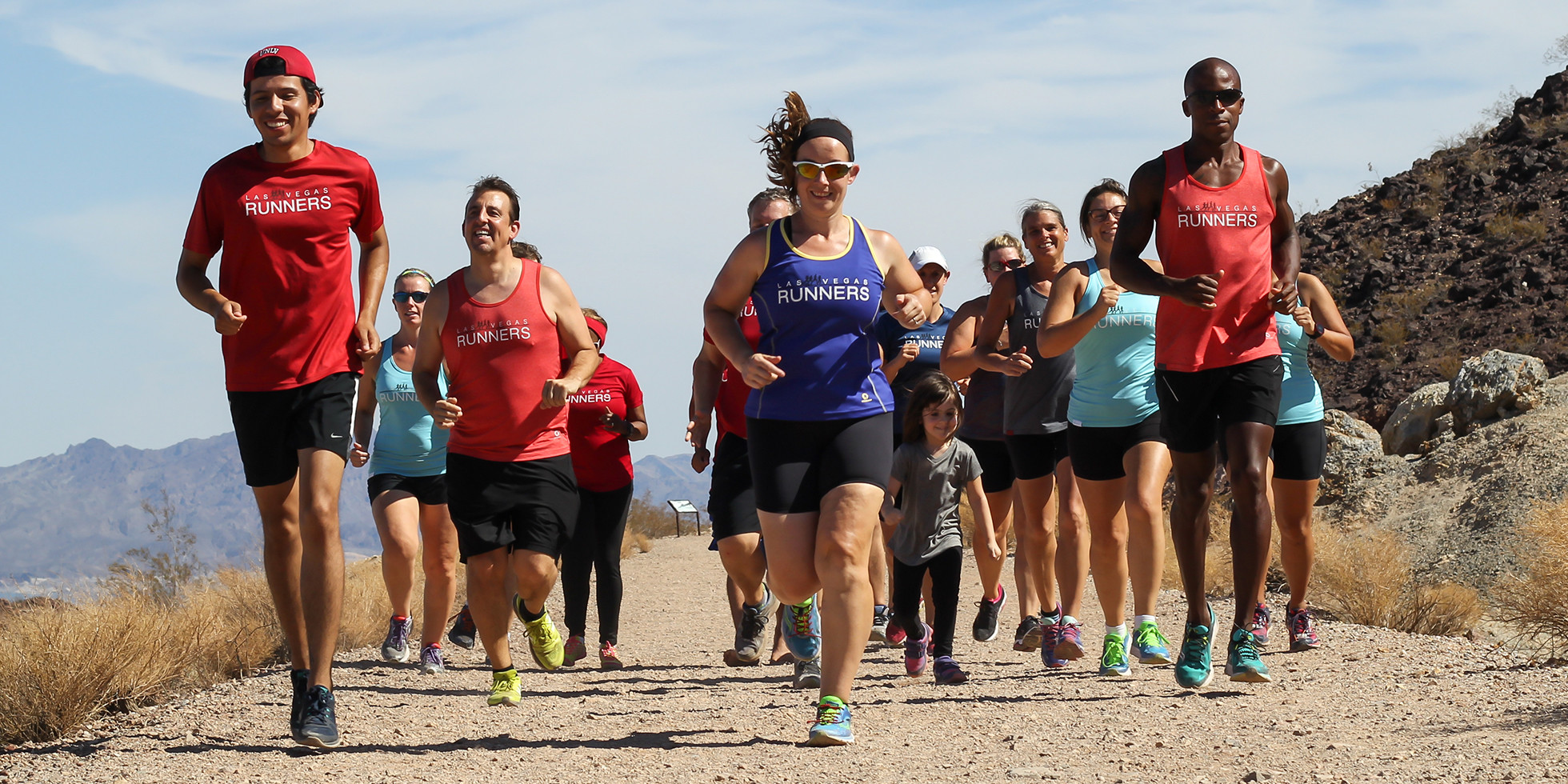
When they compared the abundance of the different species of bacteria within those samples, one group in particular jumped out at them.
“We found this one bacterial genus, Veillonella, that was not only in higher abundance in athletes compared to controls, but almost immediately after the marathon there's this spike in abundance,” Scheiman said.
What was especially intriguing about these bacteria was their appetite for a molecule called lactate.
This discovery “was kind of a lightbulb moment because lactate is a metabolite that accumulates in the blood after strenuous exercise,” Scheiman said. ”When your ability to utilize it gets outpaced by your ability to produce it, it then starts to accumulate in the blood, and it tends to be a marker of fatigue.”
This connection between Veillonella, lactate, and exercise prompted the researchers to wonder whether giving Veillonella to mice might affect their endurance.
(06/25/2019) ⚡AMPby STEPHANIE DEMARCO
Kyle Robidoux is legally blind and will be making history as he takes on the Western States 100 this weekend
When 43-year-old Roxbury, Massachusetts resident Kyle Robidoux sets foot on the starting line at Squaw Valley Saturday morning, he will be making Western States history.
According to Race Director Craig Thornley, Robidoux will be the first known runner in the 45-year existence of the Western States 100-Mile Endurance Run who is legally blind.
With the help of a team of sighted guides, Robidoux will attempt the 100.2-mile trek from Squaw Valley to Auburn. But he is no stranger to ultra running. Since being declared legally blind at age 19, Robidoux has completed a number of premier running events, including five Boston Marathons.
"I've run in three 100-mile races, all with varied terrain, but Western States by far will be the most challenging," said Robidoux, who is being sponsored by Clif Bar. "There are a variety of conditions, so it'll be important for me to run really hard when terrain is runnable, knowing on climbs I'll have to walk. I'll have to make up my time during the runnable stuff."
Robidoux was diagnosed with Retinitis Pigmentosa, a degenerative eye disease that affects night vision and typically leads to complete blindness, when he was 11. Though he still has an estimated 3 percent field of vision, his eyesight has gradually declined over time.
"I have very extreme tunnel vision, like looking through a paper towel roll," Robidoux said. "I have no peripheral vision, no up or down, no night vision at all. I'm not colorblind but I can't see contrast very well. When I'm running, I can't tell the difference between dirt, rocks or roots. I can't see elevation change and I can't see if I need to step up or down."
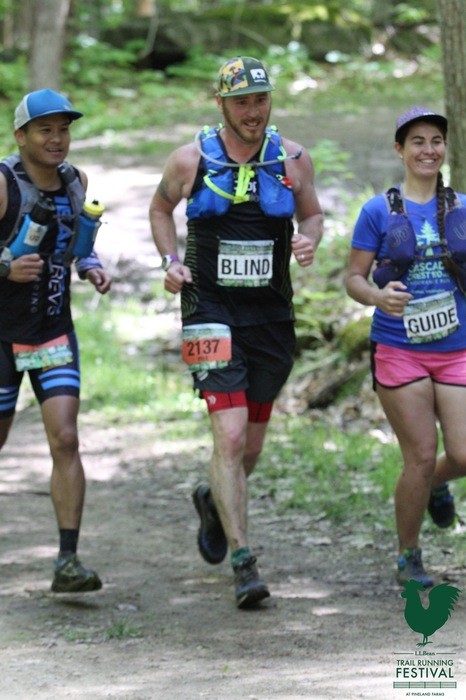
That's where his guides come in. Connected through an organization called United in Stride, which helps recruit sighted guides for visually impaired runners and vice versa, Robidoux's guides run side by side with him, bound together by a tether. The guides act as a sight coach throughout the race, giving various verbal cues to the visually impaired runner.
"Their goal is to keep me safe and keep other runners safe during races," Robidoux said. "They keep me moving forward and upright. That puts me in a position where all I have to focus on is running; not if I trip on something or run into someone else."
Among Robidoux's guides is seven-time WSER champion Scott Jurek.
"It will be fun seeing this course in a different light," said Jurek. "It's so cool to have an opportunity to be someone else's eyes."
After getting to know each other over the past several years, Jurek feels Robidoux is up for the challenge.
"Kyle's got a tenacity to him," Jurek said. "He might not be the fastest, but he's got an intense desire, something you have to have for Western States, whether you can see or not."

That desire sprouted from depression. Robidoux's initial resentment toward his diagnosis made him inactive, overweight and on a path toward Type 2 diabetes.
"I essentially dealt with it by not dealing with it," said Robidoux. "I was bitter and angry about my eyesight. I was convinced things were being taken away from me that I loved doing."
With the support of his family, Robidoux began seeing a therapist to help deal more effectively. Soon after, he started running again to improve his health and be able to play with his daughter, Lucy. He dropped 70 pounds and completed his first event – the Maine Half Marathon – by age 34 in 2010.
“I started to realize that things weren’t being taken away from me, I was giving up on them,” Robidoux said. “I still have days when I get really angry and frustrated. It’s a continuing process. There’s a strong likelihood that I’ll lose all of my vision. It’s scary, but I’m learning how to adapt and emotionally prepare for that.”
Robidoux has finished over 25 marathons and ultra marathons and plans to continue for as long as he’s able.
(06/25/2019) ⚡AMPby Nick Pecoraro
Western States 100
The Western States ® 100-Mile Endurance Run is the world’s oldest and most prestigious 100-mile trail race. Starting in Squaw Valley, California near the site of the 1960 Winter Olympics and ending 100.2 miles later in Auburn, California, Western States, in the decades since its inception in 1974, has come to represent one of the ultimate endurance tests in the...
more...Quinlan Moll qualified for the United States Olympic Trials in the marathon after running a 2:18:50 on Saturday in the Grandma’s Marathon
The “B” Standard for qualification to the Olympic Trials is 2:19:00.
“I really wanted to get the standard. That was one of my big goals going in,” Quinlan Moll said. “I didn’t know what to expect because I had never run a marathon before. I knew I was in good shape coming off track season, but it is a marathon so you never know what to expect. It is such a long distance that pretty much anything can happen during it.”
Moll competed at UMKC the past five years and finished up his eligibility this spring. UMKC distance coach Brett Guemmer continued to advise Moll through his marathon training.
“He (Coach Guemmer) advised me to take it out slow the first couple miles. It is 5:18 (per mile) average to get under 2:19. He told me not to go out at that, but to start out at 5:30 or 5:25 the first few miles and see how it felt. I was right around low 5:20’s for the first few miles, and the plan was to cut down from there. I was feeling good early on, but it is a long race,” Moll said. “Around mile nine I started dropping closer to 5:18’s to 5:15’s. I wasn’t having any trouble clicking them off, so I (decided) to keep going at that (pace) for a while.”

The steady pace kept Moll feeling good through the half, but his half marathon time of 69:48 was not going to get him to the standard, so he had to pick up the pace.
“I saw I came through the half (marathon) at 69:48, so I knew that I would have to pick it up and start pushing a little more,” Moll said. “Once I started getting later in the race and I still had a little left in my legs, I figured I still had a shot so I just had to keep at it.”
Moll dropped his average mile pace to 5:15 from the half marathon to the 20-mile mark to get closer to where he needed to be to hit the standard.
Going into the event, Moll had never raced longer than a 10-kilometer race or done a training run longer than 20 miles.
“I got to the 20-mile mark and (thought) this is my normal race distance left,” Moll said. “At that point my legs were getting a little heavy, but I was still feeling good enough to where I could convince myself that I had come 20 miles, 6.2 miles isn’t that much further to go. It is just really a mental thing. That was the hardest thing was trying to convince myself I had less distance left than I did.”
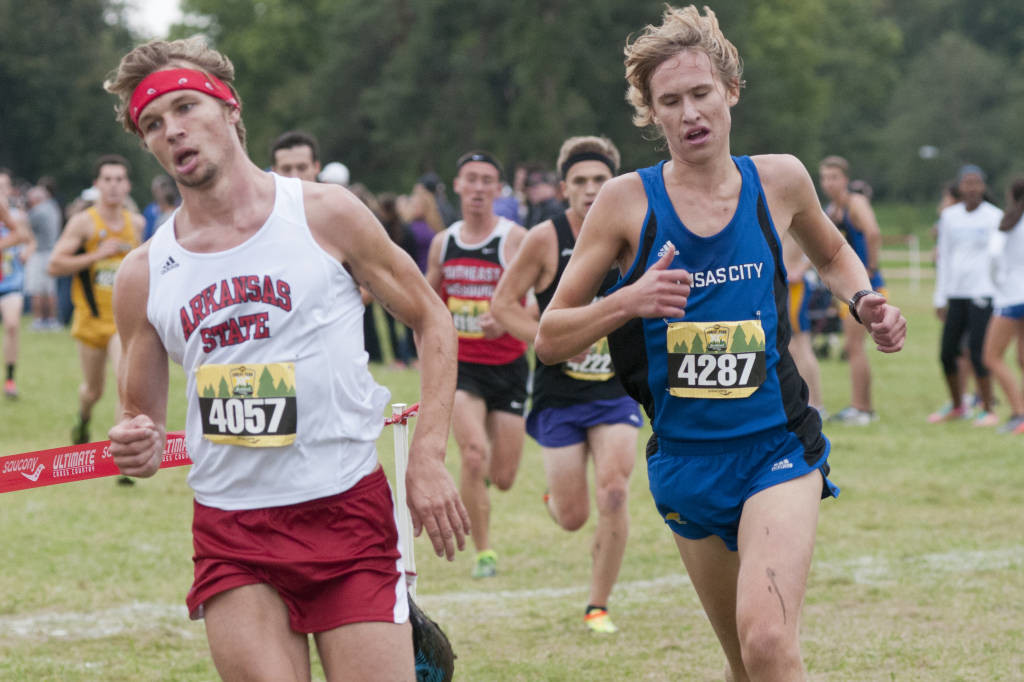
After 26 miles, Moll still was in position to hit the standard to qualify for the trials, but it was going to be close.
“I was checking my watch the entire time. Towards the end of the race there are a bunch of curves you have to go around. I felt like my legs weren’t going to give out or anything, so I knew if I could push a little harder that last mile that I could get there. I kept looking at my watch and would pick it up a little bit. Coming down the homestretch, I saw the clock, saw my watch and saw where the finish line was and knew it was going to be close. Once I got toward the homestretch I knew I had it. That was a really good feeling,” Moll said. “I was just grinning across the line. I think I gave a little fist bump too because some of the guys in front of me were celebrating because they knew they were under the standard too.”
The Kickapoo alumus will now have the chance to compete with some of the best distance runners in the United States at the U.S. Olympic Trials in Atlanta on Feb. 29, 2020.
(06/24/2019) ⚡AMPby Chris Parker
2024 US Olympic Trials Marathon
Most countries around the world use a selection committee to choose their Olympic Team Members, but not the USA. Prior to 1968, a series of races were used to select the USA Olympic Marathon team, but beginning in 1968 the format was changed to a single race on a single day with the top three finishers selected to be part...
more...Cecilia Flori often smiles through pain, but now she’s hoping an injury doesn’t keep her from competing at the 2019 Western States 100-mile race
The gap between elites and amateurs can feel wide indeed, but one area of common ground is an injury that threatens the start line of an important race. That’s the relatable place elite ultrarunner Cecilia Flori finds herself as she struggles with a foot injury a few weeks out from the Western States Endurance Run, the 100-mile race on June 29, from Squaw Valley to Auburn, California.
Expected to be a favorite in this year’s event, Flori arrived in California more than a month before the race, hoping to train on the course. The 38-year-old Italian physicist, who currently calls New Zealand home, earned bib F5 and says she was feeling as fit as ever when her foot began to hurt.
“I’ve been working on my speed by running marathons this year,” she said. “I think the Western course suits my strengths and I was more than ready for it.”
Relatively new to the ultra scene—and running in general—Flori made a big entrance to the sport, nabbing a podium spot at the North Face Endurance 50-miler in Canada in 2015.
“I’ve always loved the outdoors and was a climber before a triathlete friend convinced me to run a half marathon with him,” she said. “I really enjoyed it and I was hooked.”
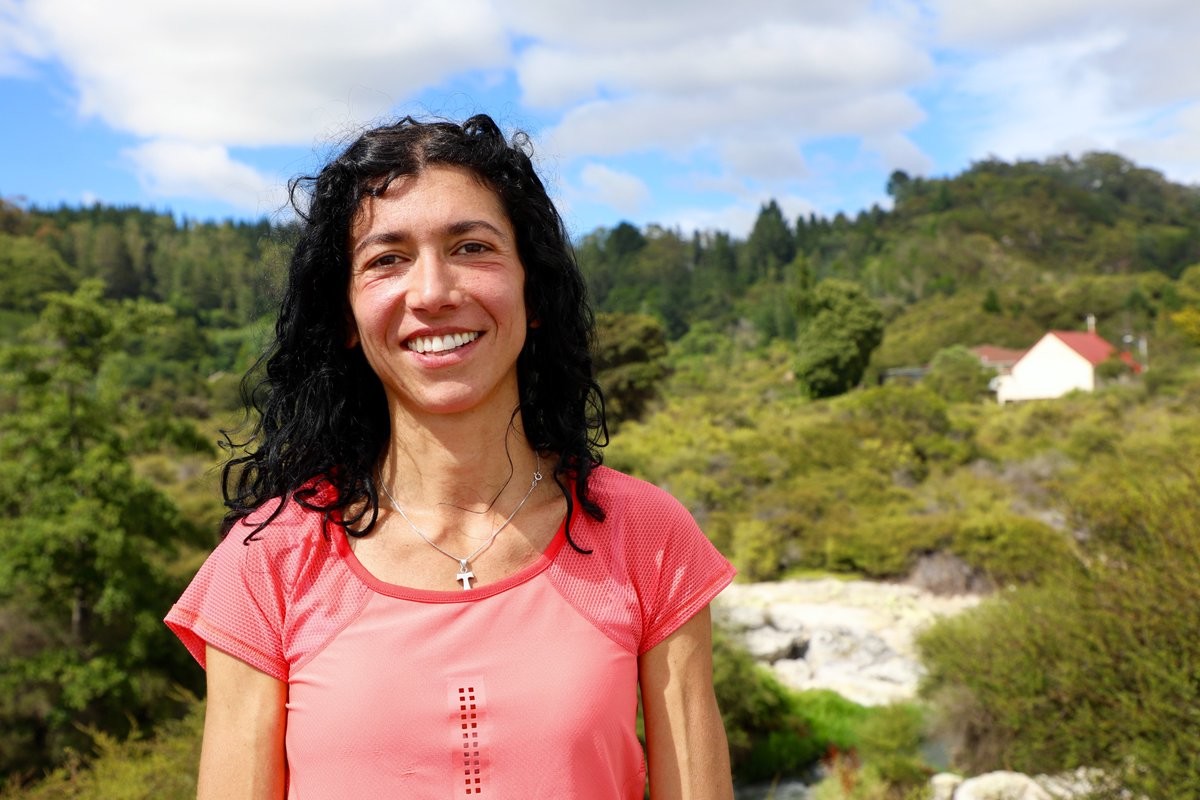
Flori says the flow of running is what drew her in. “The repetitive motion makes me feel alive,” she said. “It’s a primal feeling—I’m at one with nature when I’m on trails.”
Relocating for her research to scenic New Zealand in 2016, Flori migrated entirely from climbing to running, joining a running club for training. She took on some shorter distance trail races and then won the Taupo 100K. “I started thinking that maybe I was good at endurance,” she says. “In 2017, I entered the Tarawera 100 and took third behind [2008 U.S. Olympic marathoner] Magda Boulet and [2017 Comrades champion] Camille Herron. I was shocked but I realized I could compete on an international level.”
Herron has since become Flori’s coach, and it was that Tarawera race that made Herron take note.
“I watched her run neck-and-neck with Magda Boulet,” Herron said. “What I remember most as I looped around and saw her was the big smile on her face.”

Since then there have been few hiccups in Flori’s ascent to the upper echelons of ultras. She pulled off fifth at last year’s Western States in 19:44 and followed it up with a 10th place finish at the 101K CCC in the French Alps last September, which she admits, tested her. “It was a learning experience,” she said. “I was sick and had to stop at aid stations quite a bit. But I still managed 10th and I’m proud of myself.”
Herron says Flori has a bright future ahead of her. “I saw that same smile on Cecilia’s face at 62 miles into Western last year. For someone to look that good in fifth place tells me she has lots more to give.
(06/24/2019) ⚡AMPby Amanda Loudin
Western States 100
The Western States ® 100-Mile Endurance Run is the world’s oldest and most prestigious 100-mile trail race. Starting in Squaw Valley, California near the site of the 1960 Winter Olympics and ending 100.2 miles later in Auburn, California, Western States, in the decades since its inception in 1974, has come to represent one of the ultimate endurance tests in the...
more...Kara Goucher says the Leadville Trail Marathon was the hardest thing she'd ever done
Former elite US marathoner Kara Goucher was the fifth female across the finish line and first in her 40-49 age group at Leadville Trail Marathon in the Colorado Rockies. “Without a doubt, the hardest thing I’ve ever done in my life,” she tweeted–quite a statement from a two-time Olympian, world championship silver medallist, and two-time Boston Marathon third-place finisher.
Goucher has blogged about the experience of transitioning from the roads to the trails on her sponsor Oiselle’s blog, where she also dispenses advice to those considering (or executing) a similar transition.
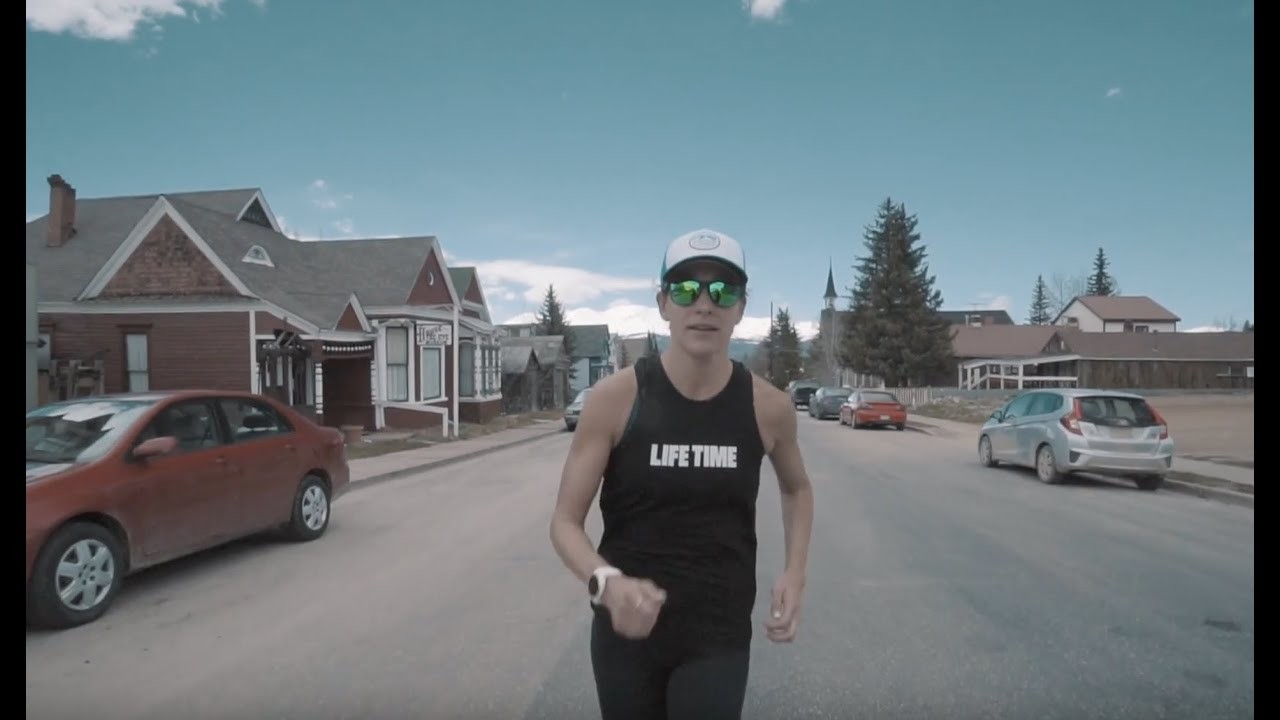
It seems road running and trail running are, well, quite different. For one thing, terrain and weather conditions play havoc with road runners’ expectations regarding time and pace, which are mostly beyond anyone’s control. (Goucher’s time was 3:54:07.)
"I pushed beyond any limit I ever have, thanks for making me find out what I’m made of when the going gets rough!” Goucher said in another tweet. Goucher told Runners World that she was vomiting repeatedly from altitude sickness throughout the race.

Tara Richardson of Glenwood Springs, Colo., Jana Willsey of Denver and Corinne Shalvoy of Castle Rock went 1, 2 and 3 for the top three females while Joshua Lund of Boulder, Pat Cade of Leadville and Chad Trammell of Anchorage stood on the men’s podium (which also happened to be the M30-39 podium).
The course runs through old mining roads and trails, reaching a maximum elevation of 13,185 feet (4,019m). This was the race’s 19th year.
(06/24/2019) ⚡AMPby Anne Francis
Leadville Trail Marathon
Run through the historic mining district’s challenging old mining roads and trails, and hit a high of 13,185 feet at Mosquito Pass during the Blueprint for Athletes Leadville Trail Marathon or Heavy Half Marathon. The views will leave you breathless, if you’re not already. This exciting race is hosted in the Historic Mining District located on the east side of...
more...The Boilermaker 15K Road Race has reached its cap for participants again this year
The 15-kilometer race — Utica’s premier summer sports event is set for Sunday, July 14 — reached its cap of 14,500 spots on Tuesday afternoon, Boilermaker officials announced. Each of the Boilermaker’s 4,500 spots in the 5-kilometer race have been claimed since mid-April.
“We’re certainly happy (to reach the cap),” said Boilermaker President Mark Donovan, who was officially introduced as Boilermaker president on June 6 in 2018. “Those that want to be here (in Utica for the race) lock in March.

Everyone else is seeing what their schedule looks like and what life throws at them before they commit.”
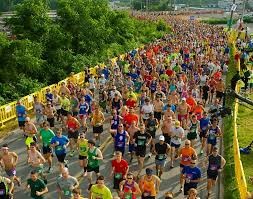
While the total number of spots in the 15K has changed in recent years – the cap was set at 14,500 beginning in 2017 -- the Boilermaker has sold out of spots for each race dating back to at least 2011. Last year, the 15K reached the cap in early July.
“It is such a unique event,” said Donovan when asked what it means for the event to reach the cap again. “It is a community thing and people talk about it and the experience. Everybody’s experience is different and it is fun. I bet if you asked 10 people about their experience on (race day), you’ll get 10 different answers.”
(06/24/2019) ⚡AMPBoilermaker 15k
The Boilermaker 15K is the premier event of Boilermaker Weekend. This world krenowned race is often referred to as the country's best 15K. The Boilermaker 15K is recognized for its entertaining yet challenging course and racing's best post-race party, hosted by the F.X. Matt Brewing Company, featuring Saranac beer and a live concert! With 3 ice and water stops every...
more...Group running can be more fulfilling that running alone
A running community can help you to be accountable and focused. When you feel you are too busy with work or school, it provides a platform to check in with one another and maintain discipline.
While some might argue that such support is unnecessary, the same can't be said of runners who are either new to the sport, or who see running as a long-term undertaking to improve and maintain fitness.
You will also have a safe space in which to grow without being impeded by fears of inadequacy, where you can receive feedback and well-intentioned advice to improve your running.
A runners' community allows everyone to journey together through training, injury and races.
Lessons learnt and shared help members avoid repeating the growing pains. Your friends will also be the ones who constantly help you discover and rediscover your aptitude for running, by being your pillar of support and motivation.
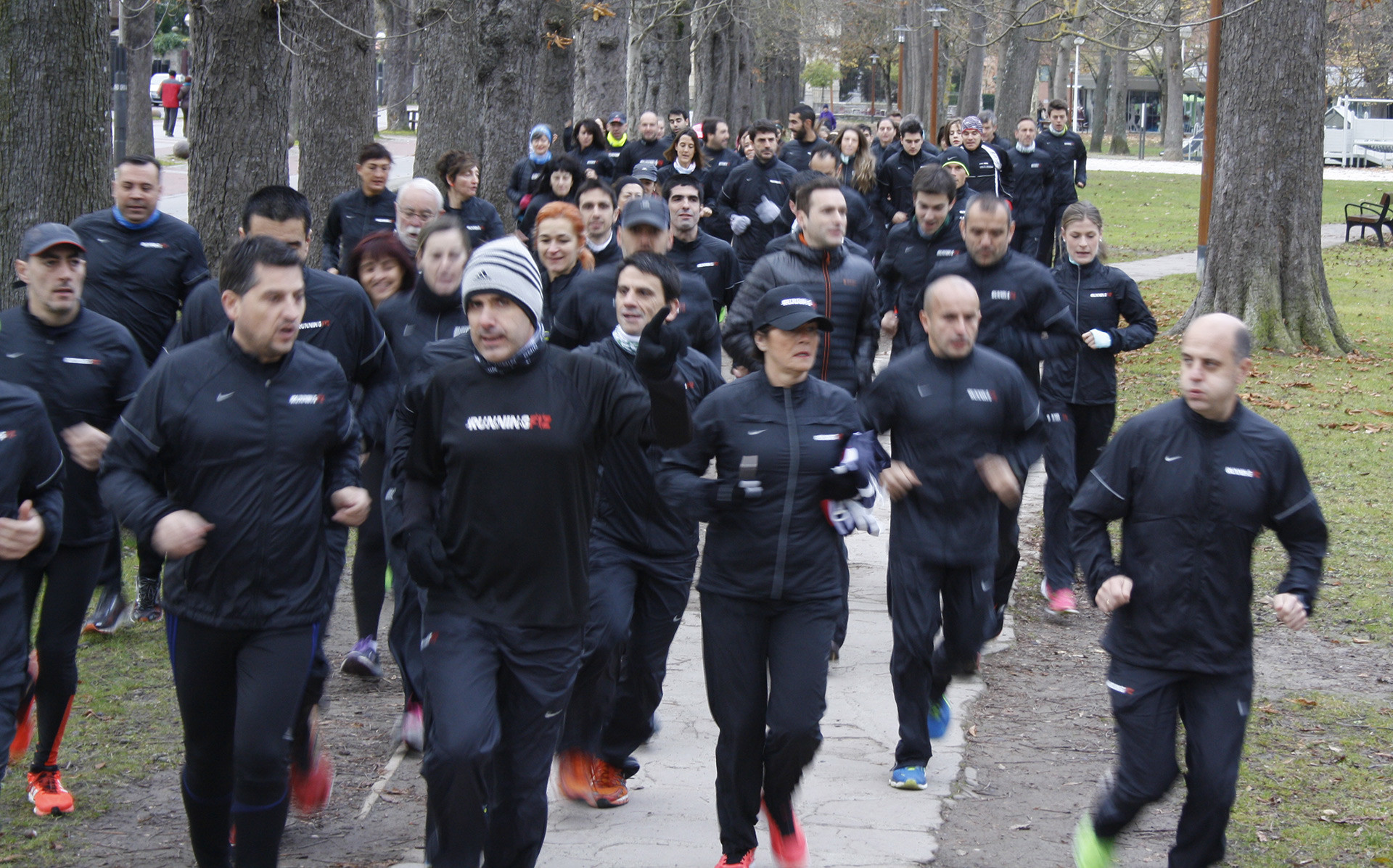
As you build on each other's experiences through the highs and lows, it creates a tapestry of memories that enrich and elevate the running experience.
Being in a group helps to redirect and drive the group's purpose outwards, towards the community and people around us.
Recently, I got to know a group who come together to run every Saturday. Eventually, they started asking themselves what more they could do with their time and love of being active and outdoors.
This sparked an interest in volunteering (to assist children with cancer) after their training sessions.
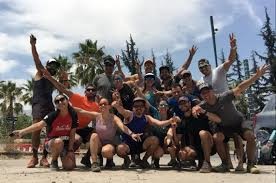
They were able to look beyond their group's needs and serve the needs of another community, through simple acts of planning games that helped these ill children be more active. One of them mentioned that Saturdays were "deeply satisfying" as a result.
While every group is likely to identify with its own sense of purpose and motivation, they are all bound by their love of running.
(06/24/2019) ⚡AMPby Jed Senthil
Runners are getting slower but they are getting older as well
Runners are getting slower. How much slower? According to statistician Jens Jakob Andersen and mathematician Ivanka Nikolova, today’s average recreational male marathoner takes an additional 40 minutes, 14 seconds to cross the finish line as compared with 1986, when the average finishing time was 3:52:35. Nowadays it takes the average male marathoner 4:32.49 to run 26.2 miles (42K).
Women’s times have also gotten slower, adding an extra 38 minutes, 19 seconds to their finishing time. But unlike the men, whose times have been on a steady incline, the women found a burst of speed sometime after 2001. Today’s times are four minutes faster than those posted in the early 2000s (4:56.18), with the average female marathoner now clocking in at 4:52.10.
This slowing trend isn’t limited to the marathon. It spans all popular distances: marathons, half marathons, 10K and 5K, and encompasses runners in most age groups.

Andersen has a runners’ love of numbers. Based out of Denmark and a founder of RunRepeat.com, he combed through 107.9 million race results (recreational runners only – elites were excluded) from 70,000 events held in 193 countries between 1986 to 2018. He claims the data represents “the largest study of race results in history.”
The slowest marathoners are from the United States and the fastest finishers from Spain. Canadians rank mid-pack among nations, behind Spain, Australia, Germany and Sweden, but faster than the Americans, the French and runners from the UK.
Part of the reason race times are increasing is that runners are getting older. The average age of runners in 2018 is 39.3 years, four years older than in 1986.
“It’s not the individual who’s getting slower, but the average of all runners, meaning that the “demography” has changed,” suggested Andersen. “More slow runners participate.”
But Andersen didn’t just look at the marathon. His data includes races of all distances, noting that half-marathons and 5Ks are the most popular distances worldwide, with the number of half-marathoners accounting for 30 per cent of race results — up from just 17 per cent in 1986. Marathoners, on the other hand, are on the decline, accounting for just 12 per cent of racers.
All tolled, there are 7.9 million runners competing recreationally in races across the globe, a 57.8-per-cent increase in participation in the last 10 years, making running a popular pastime for a significant swath of the population. The numbers are down from 2016, when the sport peaked at 9.1 million results.
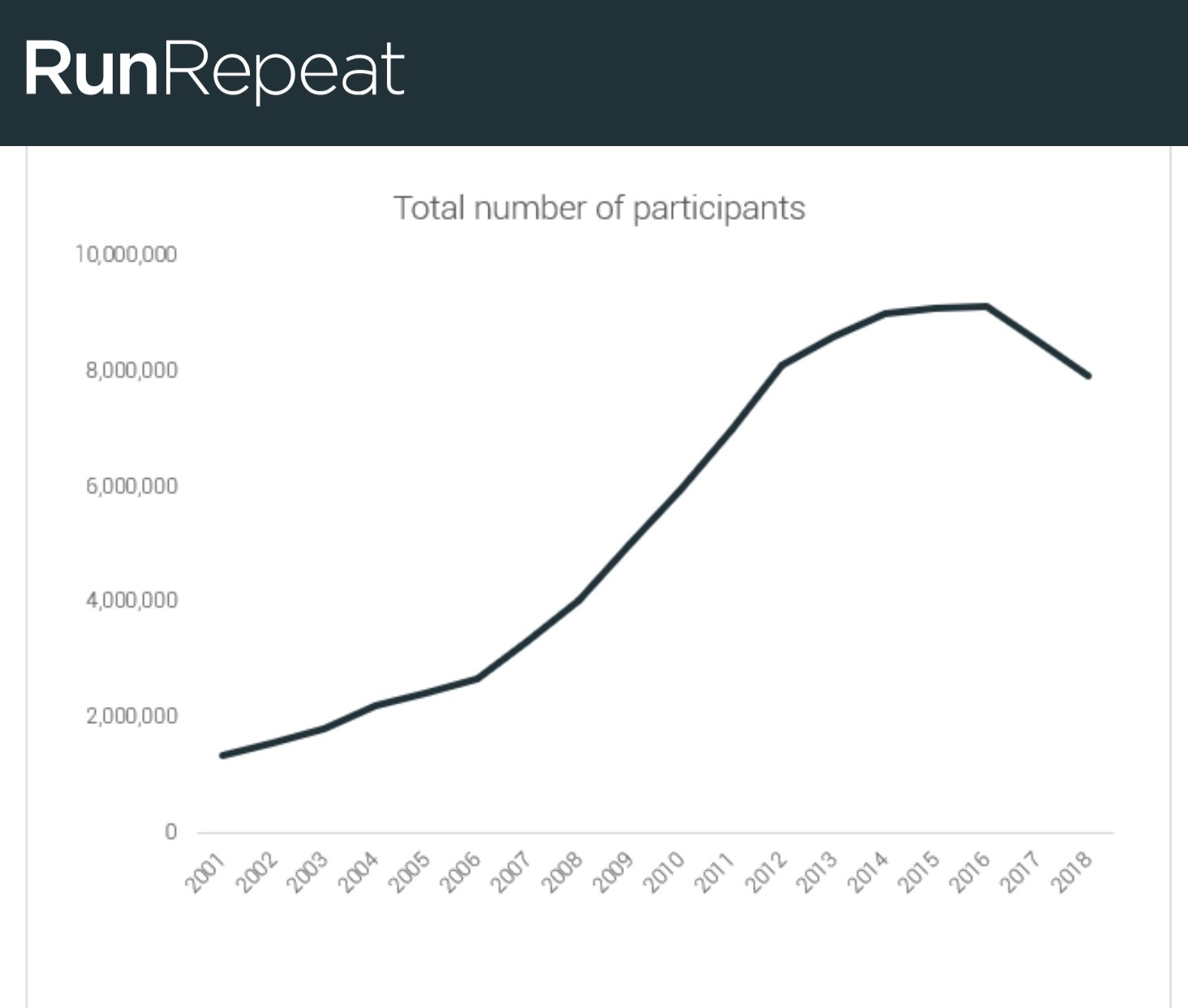
But participation numbers and finishing times aren’t the only thing to change over the last few years. Andersen says that today’s runners are less likely to be achievement-focused. Instead they’re more interested in having a great experience than posting a personal best. Certainly the slower pace of the recreational field supports this theory, with the average marathoner clocking 6:43 per kilometre for men and 7:26 for women.
The fastest runners are the half-marathoners, who maintain a 5:57 pace per kilometre for men and 6:40 per kilometre for women, a trend that suggests some of the faster marathoners may be moving to the half-marathon distance. The slowest runners are in the 5K (7:21 men and 8:44 women), which typically attract the largest crowd of new runners.
How do the runners in the United States stack up? In the 5k men and women both rank 25th in the world. The average men’s time is 35 minutes and women 41 minutes. The Ukraine is the number one country with their average men’s time being 25:08 and women’s 29:26.
For the half marathon US men are ranked 35th in the world averaging 2:02 while Women at 34th averaging 2:26. Russia leads the world for both men (1:40) and women (1:50).
In the marathon US men and women are ranked 36th in the world. Men’s average finish time is 4:31 and women are 4:57. Spain leads the world for men with an average time for men being 3:49:21. Switzerland leads the women with 4:04.
How do Canadians measure up against the global competition?
Our female runners rank second in the world in female participation and 13th in speed. As for the Canadian running landscape, we boast the third-largest growth in participation in the 5K over the past 10 years. But like the rest of the world, we’re getting slower. The average Canadian marathon time increased by 1:10 minutes/seconds over the past 10 years. The half-marathon got 2:33 minutes slower, the 10K got 0:29 seconds slower and the 5K 4:34 minutes slower over that time period.
But one of the most notable trends in running over the past 30 years is the increased number of women, with total female participation going from just under 20 per cent in 1986 to just over 50 per cent in 2018. In 5K races, women make up 60 per cent of the field. Once a male-dominated sport, the Olympic marathon was only opened up to women in 1984, 88 years after the men’s marathon made its debut in 1896. But it looks like we’re doing a pretty good job of making up lost time.
(06/23/2019) ⚡AMPby Jim Barker
Fancy Chemutai wins BAA 10k women’s race and sets course record
A course record fell to the wayside at the 2019 B.A.A. 10K, presented by Brigham and Women’s Hospital. Fancy Chemutai of Kenya set a new women’s course record of 30:36.
Presenting sponsor Brigham and Women’s Hospital was represented by 550 runners, who have raised a combined $250,000 through today’s event.
Chemutai earned breakaway wins thanks to tactical moves made early in her race. After crossing the halfway mark in 15:25, Chemutai began to leave the rest of the women’s field behind, pulling away as she made her way towards Kenmore Square.
Splitting 8K in 24:33, Chemutai knew she was on course record pace and buckled down for the final minutes of racing. At that point, she had nearly a 25-second lead on countrywoman Brillian Kipkoech and was on pace to shatter Shalane Flanagan’s 30:52 course best.
“I saw it was coming, that the course record was coming,” she said. When asked if that motivated her, she smiled and said, “yeah, sure!”
Triumphantly crossing the finish in 30:36, Chemutai established a new course record. The time also ranks tied for second fastest in the world this year.

“I enjoy being in Boston and enjoyed to win. It was very hot. It was hot,” said Chemutai of her Boston road racing debut. “I was going for the course record, it was in my mind.”
Kipkoech placed second in 31:04, with 2015 Boston Marathon champion Caroline Rotich taking third in 31:58. Top American honors went to Aliphine Tuliamuk, eighth place in 32:27.
The men’s open race was a fierce battle between Kenyans David Bett, Daniel Chebii, and Stephen Sambu, alongside Tanzania’s Joseph Panga. With opening miles of 4:34 and 4:33, the men’s leaders came through 5K in 14:16 and then began to push the pace even more. The quartet broke from the field, and clocked a 4:29 fourth mile, setting up for a final push down Commonwealth Ave. towards the finish.
It was Bett who had the best sprint of the day, making the turn onto Charles Street first and holding off the hard charging Chebii, who would finish a second behind, 28:08 to 29:09. Sambu rounded out the top three in 28:11, followed by Panga (28:14).
(06/23/2019) ⚡AMPB.A.A. 10K
The 6.2-mile course is a scenic tour through Boston's Back Bay. Notable neighborhoods and attractions include the legendary Bull and Finch Pub, after which the television series "Cheers" was developed, the campus of Boston University, and trendy Kenmore Square. ...
more...Yassine Rachik and Lilia Fisikovici win Olomouc Half Marathon
Italy’s Yassine Rachik and Lilia Fisikovici of Moldova continued their winning ways in the RunCzech EuroHeroes Challenge series, taking the titles at Mattoni Olomouc Half Marathon in the Czech Republic.
In hot conditions, with the temperature around 30°C at the start of the race at 7pm local time, Rachik clocked 64:26 and Fisikovici 73:32 for clear victories.

That makes it three wins from three races for the pair in the EuroHeroes series, following their success in Karlovy Vary in May and Ceské Budejovice at the beginning of this month.
The four-race series was launched in 2018 with the support of European Athletics and aims to highlight new sporting heroes from the continent, as athletes claim points for their performances and can compete for a separate EuroHeroes ranking and prize structure.
Ukraine’s Olha Kotovska was second in 74:35 and her compatriot Darya Mykhailova was third in 74:57. Matea Parlov finished fourth in 75:18.
In the men’s race, London Marathon ninth-placer Rachik solo ran his way to success, with Ukraine’s Roman Romanenko securing second in 66:01 and Ireland’s Paul Pollock placing third in 66:12.
The top Czech runners were Vít Pavlišta in fifth with 68:09 and Marcela Joglová in ninth with 77:55.
“It was hard to run alone,” said Rachik, “and it wasn’t easy to fight with that heat, too.”
A total of 10,078 runners took part in the Mattoni Olomouc Half Marathon events, with 6481 in the main race and 3597 in the family run.
The fourth and final event in this year’s EuroHeroes Challenge will be the Mattoni Ústí nad Labem Half Marathon, held on September 21.
(06/23/2019) ⚡AMPIt is really going to be hard to get tickets to the 2020 Tokyo Olympics because the demand is so great
Millions of people were disappointed last Thursday when applicants in a ticket lottery — for Japan residents, only — began learning if they landed tickets. The answer is going to be overwhelmingly — no. The same will be true for residents outside Japan who could experience a similar dejection: too much demand and too few tickets.
This was not the case at the last several games — the 2018 Winter Olympics in Pyeongchang and the 2016 Summer Olympics in Rio de Janeiro — when tickets were given away and volunteers were often summoned to fill empty seats for the television cameras. At times, there were too many empty seats to fill.
“This is probably going to be the most popular Olympics, and possibly one of the most popular events of all time," Ken Hanscom, the chief operating officer of TicketManager, told The Associated Press in an interview.
His Los Angeles-based company does not buy or sell Olympic tickets, but manages tickets for corporate clients, several of which are major Olympic sponsors.
Hanscom said he follows ticketing patterns for every major event and estimates that 80-90% of Japan residents who applied for tickets could get nothing.

"I'm interested in seeing what the reaction is and how the organizing committee addresses this," Hanscom said. "It's good news for the demand, and bad news on the ticket side and the public."
Tokyo's organizing committee was unable Thursday to say how many Japan residents got tickets, and it's unclear if — or when — it will disclose the overall numbers. Organizers will run a second ticketing phase where the odds will probably be even worse.
Japanese media immediately began reporting about disheartened fans. A completely unscientific AP survey of a few fans showed one ticket awarded in 15 application attempts. The millions who failed got this message in email from Tokyo organizers.
"Thank you for your interest in purchasing Tokyo 2020 tickets. The demand for tickets was incredibly high, and unfortunately, you were not awarded any of the tickets you requested in the lottery."
Simple math explains the supply and demand crunch.
Tokyo organizers say that 7.5 million residents of Japan registered to apply for tickets through the lottery system. Extrapolating from the 2012 London Olympic lottery, Hanscom estimates that Tokyo organizers may have received 70-85 million individual ticket requests. This could be at least 10 times more than what's available. Maybe more.
Organizers estimate there are 7.8 million tickets for all Olympic events, but 20-30% of those are for distribution outside Japan where buyers could face the same problems and end up paying more.
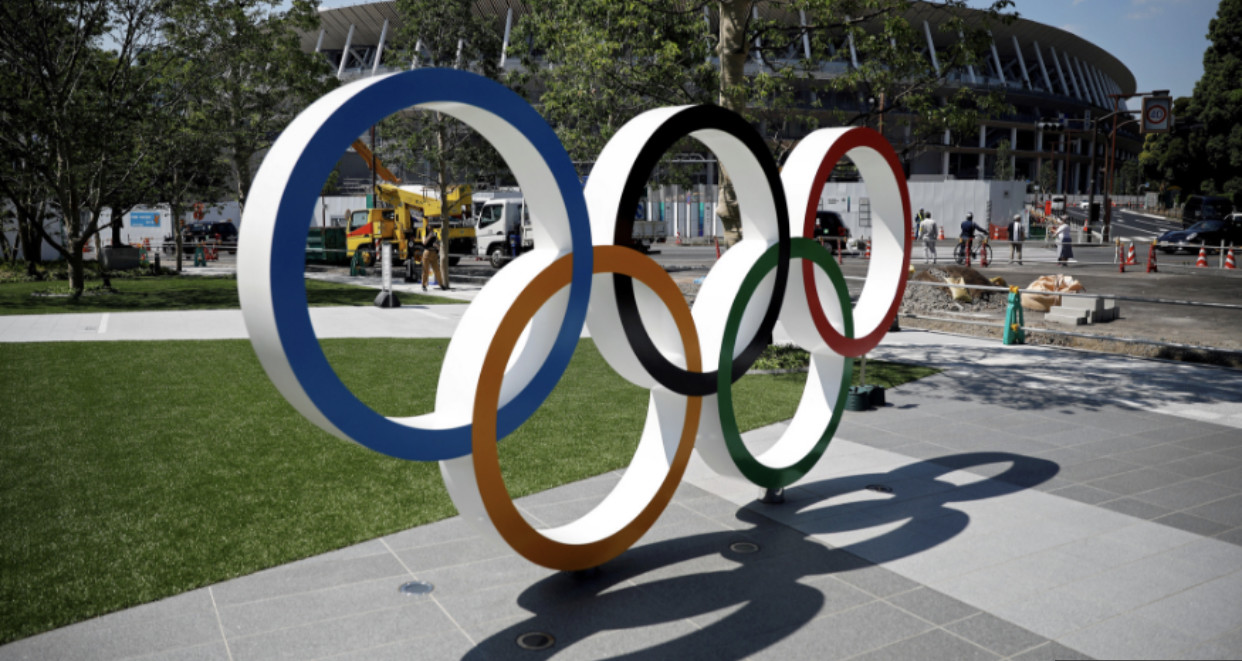
Buyers outside Japan must get tickets from Authorized Ticket Resellers, companies appointed by national Olympic committees. They were authorized to begin sales on Thursday.
The reseller for the United States is CoSport, which also handles sales in Australia, Jordan and several European countries. Cartan is the reseller for much of Latin America including Mexico.
Resellers are allowed to charge a 20% handling fee on every ticket. They can also use a generous currency exchange rate, and often package desirable tickets with top hotels that charge way over the usual going rate during the Olympics.
Ticket prices for buyers in Japan vary greatly and are listed in the competition section on the organizers' website.
The opening ceremony on July 24 features the most expensive ticket — 300,000 yen ($2,700). The most expensive ticket for the closing ceremony is 220,000 yen ($2,000).
Even with the soaring demand, many venues could still wind up with hundreds of empty seats that are typically set aside for International Olympic Committee officials, corporate sponsors, and local dignitaries. Often they don't show up while angry fans line up outside without tickets.
"I expect there will be a problem in Tokyo," Hanscom said. "The industry figure is that 40% of tickets that sponsors buy go in the trash," he said. He said the problem was acute for the Olympics and World Cup.
"Every Olympics you have a new group of people running ticketing," he said. "And you have new technology. So you're always scrambling to put the process together."
(06/22/2019) ⚡AMPTokyo 2020 Olympic Games
Fifty-six years after having organized the Olympic Games, the Japanese capital will be hosting a Summer edition for the second time, originally scheduled from July 24 to August 9, 2020, the games were postponed due to coronavirus outbreak, the postponed Tokyo Olympics will be held from July 23 to August 8 in 2021, according to the International Olympic Committee decision. ...
more...Kenyan Boniface Kongin wins men's Grandma's Marathon clocking 2:11:56
Kenyan Boniface Kongin, who entered in the citizen field after the elite field filled up, won his first Grandma's Marathon men's race Saturday by overcoming hamstring and Achilles problems to win in 2 hours, 11 minutes and 56 seconds.
Kongin, who has stayed in West Duluth and trained in town since arriving April 19, stopped several times during the 26.2-mile race and walked across the finish line while pointing to the sky and dropping to his knees.
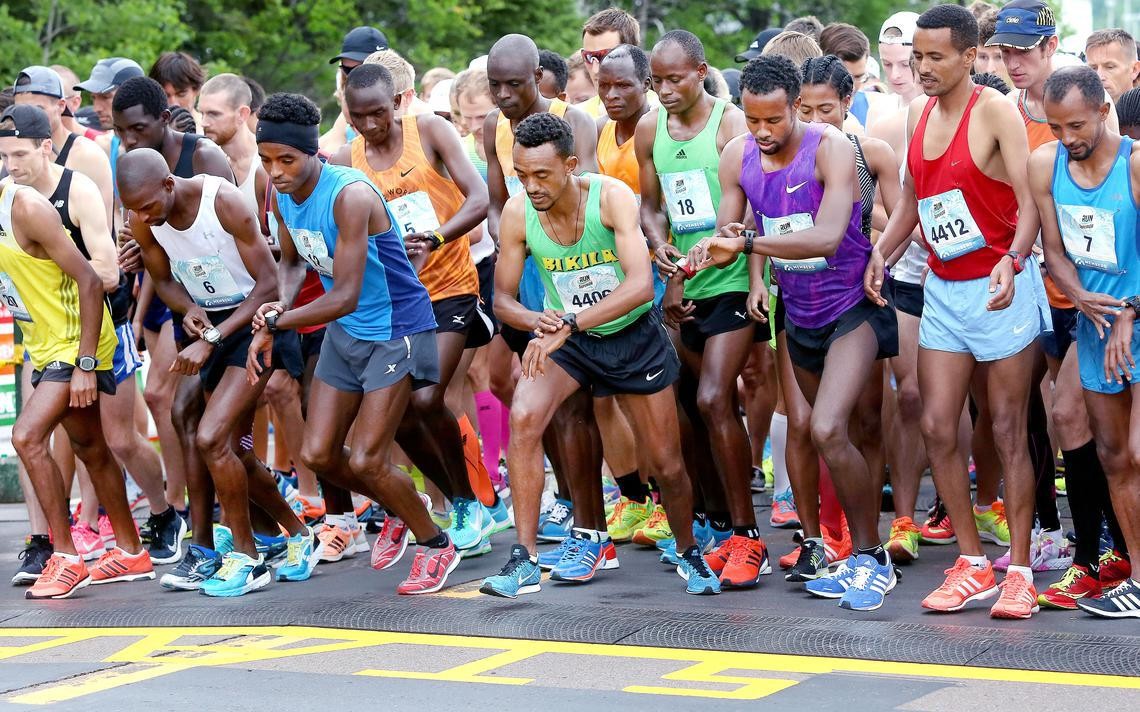
Kongin won the Pittsburgh Marathon on May 5 in a personal-best time of 2:10:34 but injured his left hamstring and right Achilles in the process. Running a 2:06 pace nearly halfway through the race, he slowed down several times in the last half of the race as his ailments worsened.
He beat runner-up Andrew Colley of Blowing Rock, N.C., by 17 seconds. Harbert Okuti of Uganda was third, 1:05 off the pace.
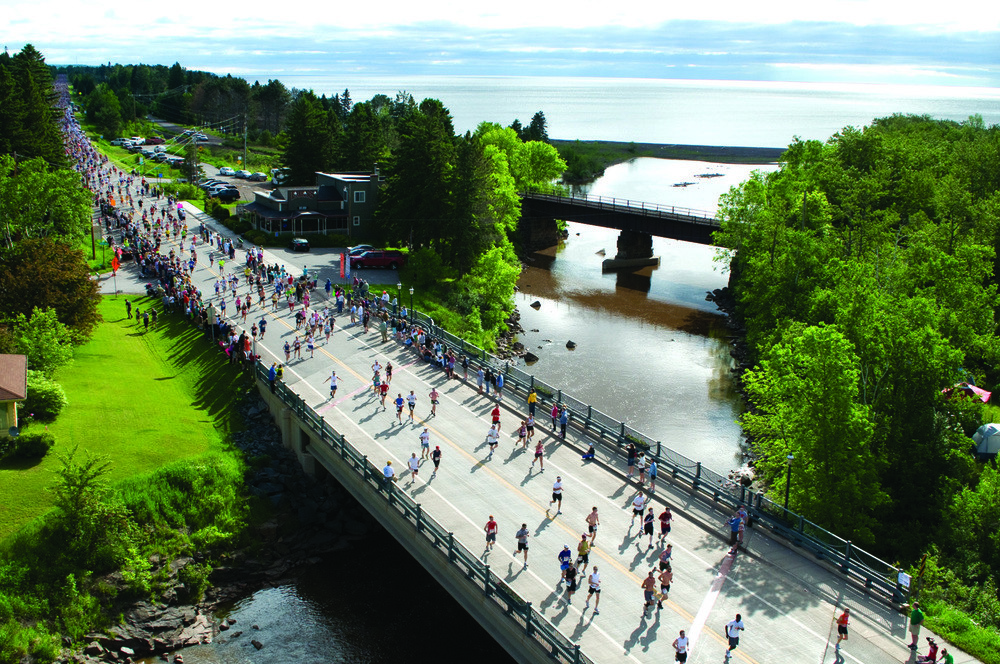
Four-time defending champion Elisha Barno and course-record holder Dominic Ondoro each finished outside the top 10.
(06/22/2019) ⚡AMP
Grandmas Marathon
Grandma's Marathon began in 1977 when a group of local runners planned a scenic road race from Two Harbors to Duluth, Minnesota. There were just 150 participants that year, but organizers knew they had discovered something special. The marathon received its name from the Duluth-based group of famous Grandma's restaurants, its first major sponsor. The level of sponsorship with the...
more...New Racing Rules Remove Some Barriers for Transgender Runners
As president of the board of the nonprofit that oversees one of the most prestigious ultradistance races in the country, John Medinger has had to deal with many concerns: sponsors, weather, permits, volunteers.
But it wasn’t until this year that he and his colleagues at the Western States 100-Mile Endurance Run were compelled to address an issue few would have envisioned when it was first held in 1974: transgender competitors.
“It’s not something we would have been thinking about back then, that’s for sure,” said Mr. Medinger, 68, who has run Western States five times and has been involved in race management since 1991. “But it’s the nature of society now.”
And it’s something that the world of competitive athletics, including the Olympics, USA Track & Field and the National Collegiate Athletic Association, has been grappling with: how transgender women, in particular, should be entered and scored in competition and whether they have an unfair biological advantage over cisgender women, whose identity reflects the sex they were assigned at birth.
Although the science is mixed on the biology, some people contend that transgender women have an advantage because of size and the presence of testosterone, even though hormone levels change during transition.
But others, most notably the researcher and transgender runner Dr. Joanna Harper, are skeptical that such an edge exists, particularly in endurance sports in which (as opposed to say, sprinting or shot-putting) transgender women appear to have similar cardiovascular measures as cisgender women and thus little or no advantage.
While Western States starts near the site of the 1960 Winter Olympics, there is no prize money, scholarships or endorsement deals are at stake.
There are no gold medals, but there is some precious metal involved: a handmade silver belt buckle for those who manage to complete the distance in less than 24 hours.
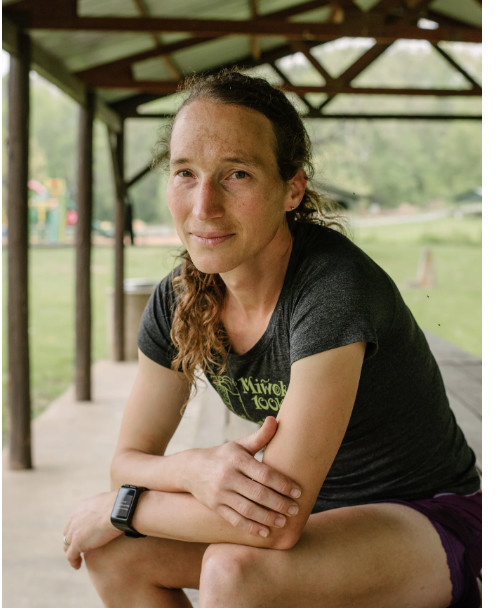
On June 29 and 30, 369 runners (chosen through a lottery entered by 5,862 runners) will take on the Western States challenge, as they attempt to navigate a mind-and-body-boggling 100 miles of trails and altitude changes from Squaw Valley to Auburn, Calif. The swiftest will be running to finish among the top 10 men or women. Recognition is also given to the top three males and females in five age groups from 30 to over 70.
The question of transgender fairness arose for Western States in December, when Grace Fisher — a transgender runner who is an outstanding ultradistance competitor — was selected through the race’s traditional lottery system.
The event’s management team decided it was time to come up with a policy. “We felt that this was not something we should ignore,” said Diana Fitzpatrick, a board member. “If it turned out that she finished in the top 10, it would be better for her and everyone that we had a policy in place.”
Back in high school in Utah, Ms. Fisher, now 38, was a male-identified track runner. She recalls that when some teammates ran a local marathon their senior year, “I said, ‘I’ll never do that, it’s crazy.’” Eventually, Ms. Fisher began running distances far longer than the marathon. She has completed about 40 ultramarathons, including eight 100-mile races.
She continued running during the years when, she said, “I was figuring things out.” After hormone treatments, she ran her first ultramarathon as a woman in 2015. She said she slowed down since her transition as a result of muscle mass loss, which can be attributed to hormonal treatments.
But Ms. Fisher, who lives in Hancock, Md., ran a personal best time in a 100-miler in Virginia last September of 18 hours 41 minutes. She was the first female finisher and fifth overall in that race.
Ms. Fitzpatrick, 61, a lawyer who is also a runner (she, too, has competed in Western States five times), worked with a committee of four other board members to develop the policy. They looked at existing guidelines from other organizations and races, and spoke to leading figures in transgender sports.
During the process, they were also cognizant that the runner who had sparked their action did not ask for the guidelines.
The guidelines they came up with, and which were announced in March, are being viewed as a model for other participatory running events.
Ms. Fitzpatrick acknowledged that “we really tried to have a `live and let live’ view on this.”
Hence Western State’s guidelines state that “a runner’s self-declared gender at registration will be accepted at face value.” No one need produce a driver’s license or other identification as has been the case for some races.
If, however, a finisher in the top 10 or among the top three in their age group is challenged, race management may ask the runner for documentation that they have undergone medically supervised hormone treatment for gender transition for at least a year before the race.
Even in the event that a transgender runner wins an award or is challenged and the challenge is upheld by race management, the guidelines state that “the runner will be allowed to keep their finisher’s buckle.”
That allowance, Ms. Fitzpatrick says, is to underscore that the new guidelines are “not about punishment.” By contrast, competitors who violate Western States doping policy are stripped of their silver buckle — as well as whatever other award they won.
“Underneath this all are real people with real feelings who have usually had a long, hard journey to get where they are,” Ms. Fitzpatrick said. “The last thing they need are additional challenges and hurdles.”
(06/22/2019) ⚡AMPby New York Times
Western States 100
The Western States ® 100-Mile Endurance Run is the world’s oldest and most prestigious 100-mile trail race. Starting in Squaw Valley, California near the site of the 1960 Winter Olympics and ending 100.2 miles later in Auburn, California, Western States, in the decades since its inception in 1974, has come to represent one of the ultimate endurance tests in the...
more...Kenya's Eliud Kipchoge has started training to break the two hour mark in the marathon
World marathon champion Eliud Kipchoge said on Thursday that he has started training in order to be fit to battle the INEOS 1:59 Challenge.
This will be the second attempt for the 34-year-old to beat the odds and run the marathon distance in under two hours as the fastest man.
"I think a good career is where you give yourself a challenge every now and then and so I think it is high time for me to try another challenge by beating the two-hour mark," said Kipchoge from Eldoret.
In 2017, Kipchoge missed 26 seconds from his initial attempt to break the two-hour mark as he clocked in two hours and 25 seconds in his "Breaking Two" project on Italy's Monza motor racing circuit.
Now he has shelved plans to compete at the World Championships or defend his Berlin marathon title to focus on running to break the two-hour mark in a bid sponsored by British manufacturing company INEOS.
It will take place on an unspecified flat loop circuit venue in London, on a date to be decided in October.

"INEOS Challenge is a noble course, it's a historic challenge where I am going to make history. Many ideologies have been said that no human can break the two-hour mark. But personally, I have dared to try for the first time and I missed by 26 seconds. Now I have a rich experience from Monza and am confident that I will beat the mark because our training program is different from the other training," said Kipchoge.
Indeed, the Olympic champion has had two months of total rest after winning the London marathon clocking 2:02:37 less than a minute off his world record set in Berlin of 2:01:39.
He has started his training with gym sessions for two weeks in late May and has moved to high altitude training camp in Kaptagat for the full preparation.
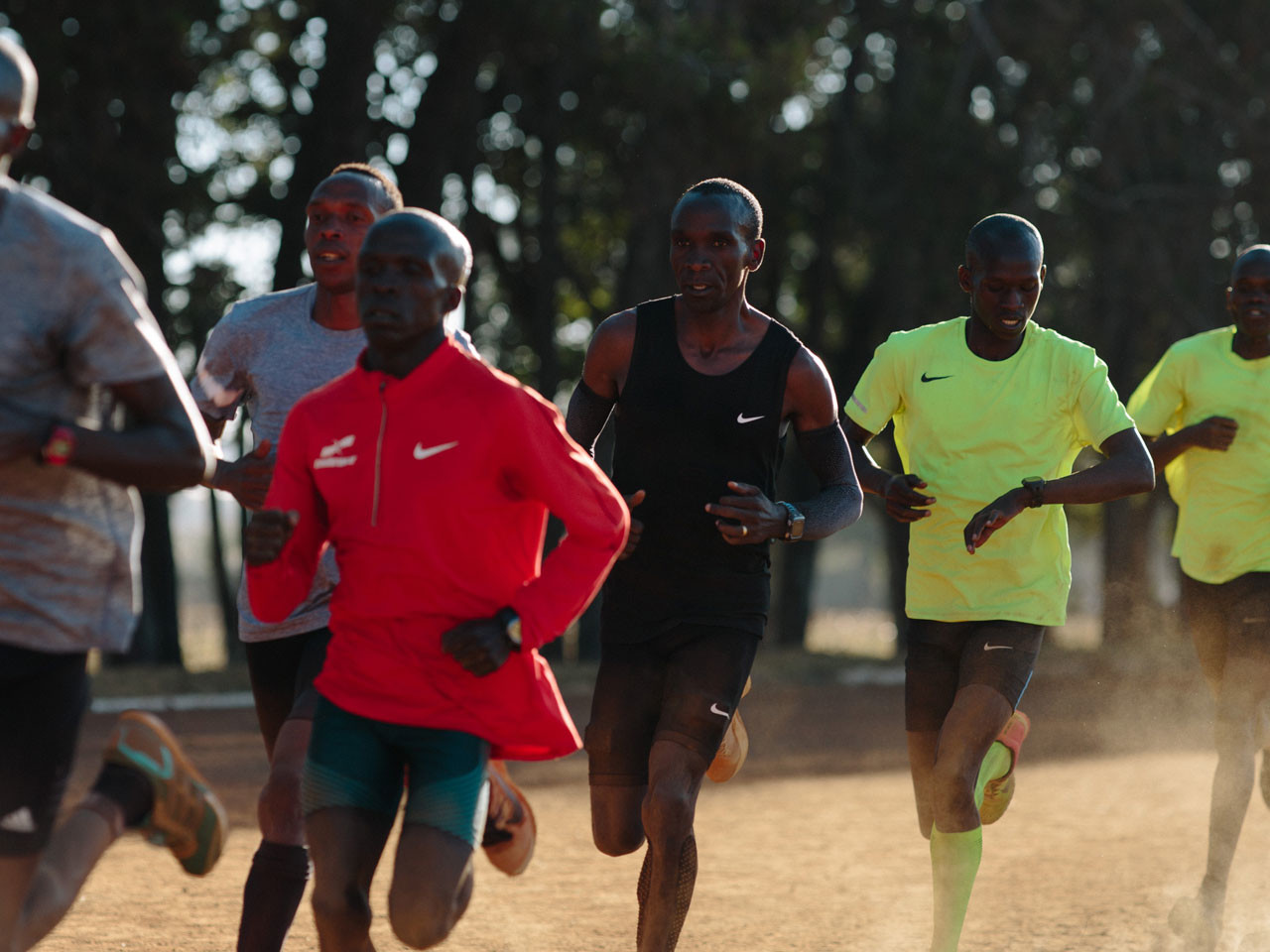
"Our training has started again. When we finished the season, we have four days of running slowly to recover and then three weeks of total rest and then we start again. When your mind is relaxed and fit, the physical part can go on as usual. When we start we start at zero and we need three -four month to be fit again for another marathon," said Kipchoge.
His longtime physiotherapist Peter Nduhio, who is now part of INEOS 1:59 Challenge team, said he is amazed by Kipchoge's ability to remain focused despite challenges in his life.
"Eliud keeps on setting the bar higher. Each time he makes us climb the ladder higher. His best season was 2018, now he has a new challenge and he will attain it," said Nduhio. "What makes this challenge inspirational is that it has no template to follow."
(06/21/2019) ⚡AMPby
INEOS 1:59 Challenge
Mankind have constantly sought to reach new frontiers and to achieve the impossible. From Edmund Hillary reaching the summit of Mount Everest to Roger Bannister’s four-minute mile to Felix Baumgartner jumping from space we have frequently redefined the limits of human achievement and broken new barriers previously seen as simply impossible. After the four-minute mile and the ten second 100m...
more...Henri Lehkonen is more prepared than ever for the Western States 100 Mile Endurance Run
The Hong Kong-based Australian Henri Lehmonrn will run the Western States 100 with a power monitor attached to his shoe and will stick religiously to a predetermined wattage.
“It’s been a revelation. If I lost the thing, I’d buy another tomorrow,” he said. “It’s a miracle way to control yourself in racing.”
Lehkonen believes it is better than other similar metrics, like heart rate, because it removes variables like excitement or altitude.
“I’ve done enough races now when I’ve not followed the watch and I’ve blown up, and when I’ve followed the watch and I’m tearing past people at the end,” he said. “I follow it for the first third – that’s where the damage is done if you over exert yourself. Then you get the adrenaline from passing people.”
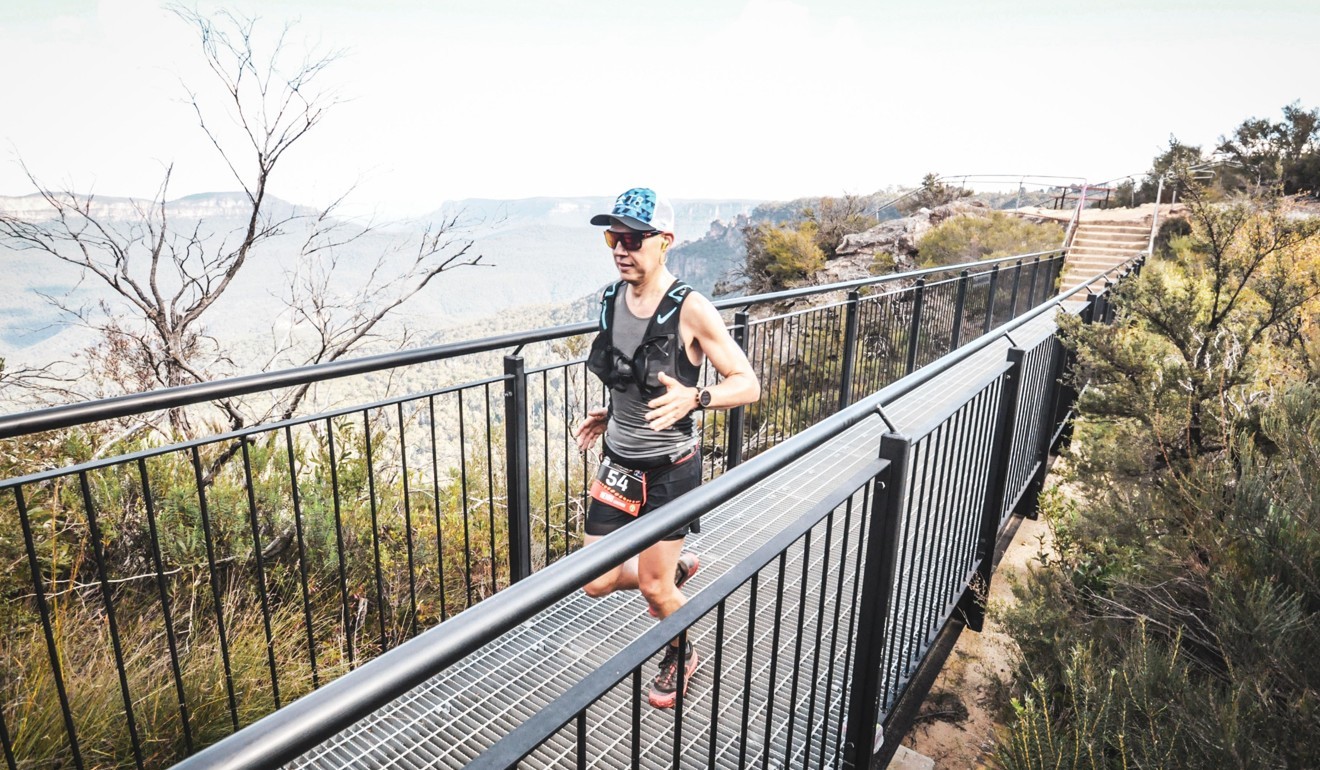
And it is working. In March, he ran the 100km Ultra Trail Australia (UTA). He was 69th after 1km, but finished 11th in a highly competitive field.
Power meters are common in sports like cycling, but are yet to be taken up widespread in trail running. Lehkonen was introduced to the meter by his coach Andy Dubois, who crunches the data to give him an accurate power curve for his races.

Aside from the gadgets, Lehkonen is leaving no stone unturned. It is notoriously hard to win a place at WSER100. Hopefuls enter a lottery, and improve their chances by entering the lottery multiple years in a row. This was Lehkonen’s third year submitting an application, which is relatively quick.
“It’s Western States. It’s that big and it’s hard to get into, so I’m viewing it as all in,” he said.
He flew to California for a weekend to look at the course. The race directors organised a three-day event where runners could do the last 112km of the course, with some of the checkpoints set up.
(06/21/2019) ⚡AMPWestern States 100
The Western States ® 100-Mile Endurance Run is the world’s oldest and most prestigious 100-mile trail race. Starting in Squaw Valley, California near the site of the 1960 Winter Olympics and ending 100.2 miles later in Auburn, California, Western States, in the decades since its inception in 1974, has come to represent one of the ultimate endurance tests in the...
more...British Steph Twell has been having a great year and is set to race the Mattoni Olomouc Half Marathon this weekend
The 29-year-old, Steph Twell has already improved both her half-marathon and 10km PBs in 2019 and is looking forward to testing herself at a race she describes as “a bit of an undiscovered gem."
The Olomouc Half Marathon is an IAAF Gold Label race and as a result it offers athletes the chance to gain points in the IAAF world rankings, while it is also the third race in the EuroHeroes Challenge series which was launched last year with the support of European Athletics and aims to celebrate and encourage athletes from the continent.
Twell is looking to be competitive at the front of a European-only field and also gain experience of racing in warm conditions, with temperatures set to be around 28°C when the race sets off at 7pm local time in Olomouc, a city situated 179 miles south east of the Czech Republic capital of Prague.

“It’s a new challenge for me to do a half-marathon at this time of year. I’m against a competitive field but one that I hope I can be quite close to the front of,” says Twell, who ran 71:33 when finishing second at The Vitality Big Half in March before getting close to that lifetime best when running 71:37 to win in Reading a week later.
“What was really important for me (in choosing to race in Olomouc) before the British Athletics selection policy came out for the Tokyo (Olympic Games) marathon, was really to try and sort out this confusion with the rankings system that I’m still trying to get my head around.
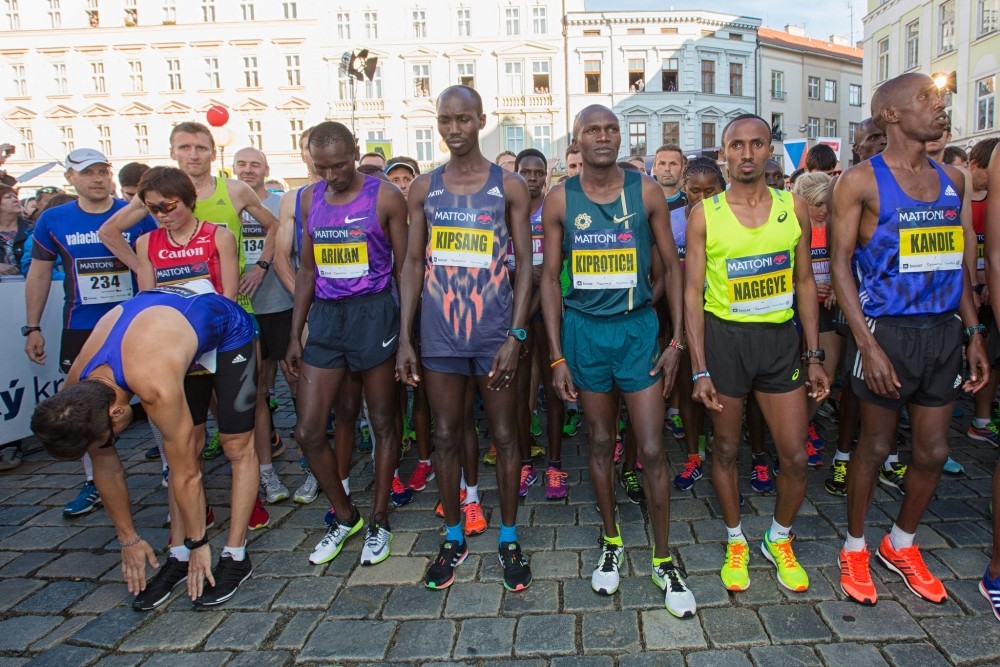
“It was a bit of an undiscovered gem, really, to have an IAAF Gold Label race at this time of year when maybe not everyone is targeting half-marathon. For me, it’s an opportunity to see where I can position myself and get as many points as possible to help support my opportunity to qualify for the Olympics. To come out here, in an IAAF ‘A’ race, I would love to try and get a podium place, if not a win, against some quality marathon runners.
“There’s that aspect for me personally trying to support myself as strategically as possible ahead of Tokyo,” adds the two-time Olympian. “But secondly, this concept (EuroHeroes) I just think is a fantastic concept. I have found it hard to be supported and to support myself bridging the gap to world-class athletics. I’ve been on the cusp for a long time but for me this year is about being more independent and trying to step up and improve in a new challenge over the roads.”
(06/21/2019) ⚡AMPMattoni Olomouc Half Marathon
The annual Mattoni Olomouc Half Marathon takes place in the ancient capital of Moravia. More than 6,000 runners wend their way past Baroque architecture. An experience matched only by the warmth of the welcome runners receive here. Come to Olomouc and Enjoy the sensational atmosphere of running through a charming Baroque city in the heart of Moravia which is one...
more...91-year-old Doris Wiebler is preparing to run her 40th Bix 7 race
91-year-old Doris Wiebler is preparing to participate in the Bix 7 race once again. The lifelong Quad Cities resident has taken part in 39 Bix races, and is looking forward to next month's seven-mile race, "The good lord willing and the creek don't rise, this will be my 40th year."
Doris, also known to her 36 great grandchildren as 'GG,' says the trick to her training is walking at least a few miles each day.
When the weather doesn't allow for outdoor walking, she says she'll go to the mall and get her exercise by walking around there.
As she prepares to take on the difficult course, she reflects on nearly 40 years ago when she first decided to register for the race, "My children were running the Bix from the time it started and I've always liked to walk. One night at dinner I just said, 'Hey I'm gonna do the Bix this year.' They said, 'Mom, this is a run, not a walk.' I said, 'you do your thing, I'm gonna do mine.'"
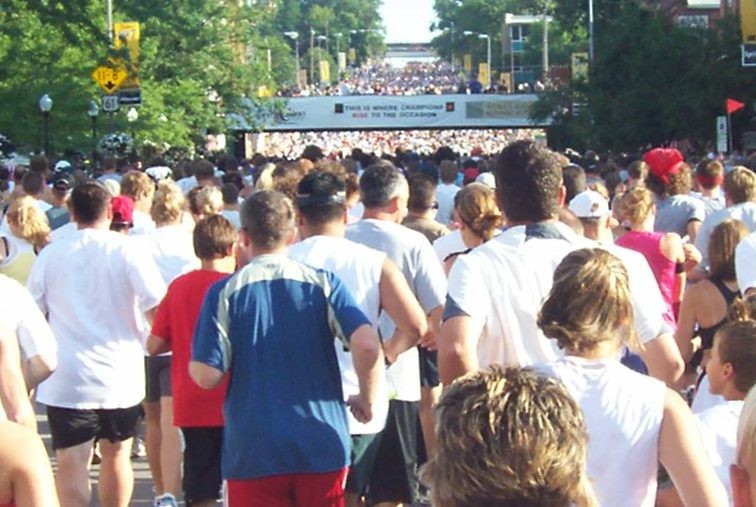
She held to her word.
For year 40, Doris says she will have extra special motivation and support by her side.
Her granddaughter Stephanie, a mom of three who's currently fighting cancer, is planning to also participate in another Bix race.
Doris says each year she looks for Stephanie at the top of the hill on Brady Street and hopes this year will be the same, "She's one beautiful person and she's so strong. Gonna get by this. That's for sure."
In addition to support for each other, there is no lack of support from the rest of the family.
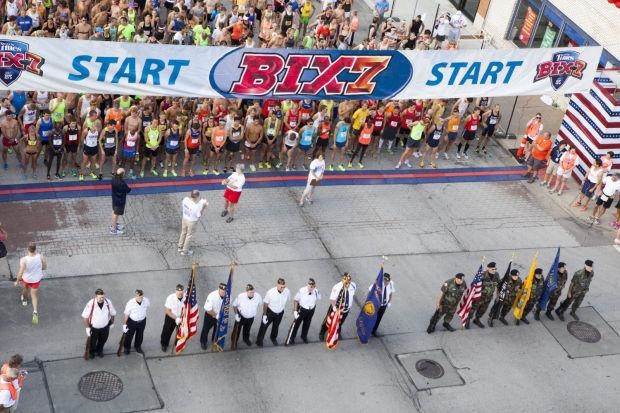
Doris says much of her family travels to Davenport for the race each year from across the country, and she looks forward to this year being no exception.
She says what makes the race all the better is the excitement and, "the amount of my kids that have decided to walk with me, which has been a big help. It's not as much fun doing it by yourself."
Bix day holds a special place in Doris' heart.
Three of her children married on Bix day.
While Doris says only one of those weddings took place on a day where she participated in the race, she was thrilled she was able to do both. The was in the morning; the wedding, at night.
While her medal collection and family have continued to grow, there's one thing she says has never changed about the Bix, "The music, the spectators, the volunteers, everybody is just so into it and just so happy for you. You know, it's just the cheers, everything. It's awesome. It really is."
That encouragement, Doris says, is why she loves the race so much, "Once you start, it's everything going on that keeps you going."
Doris has one suggestion for people who, like her, might be considering walking in the race. She says everyone should train at least a little bit.
(06/21/2019) ⚡AMPby Courtney Spinelli
Bix 7 miler
This race attracts the greatest long distance runners in the world competing to win thousands of dollars in prize money. It is said to be the highest purse of any non-marathon race. Tremendous spectator support, entertainment and post party. Come and try to conquer this challenging course along with over 15,000 other participants, as you "Run With The Best." In...
more...Cam Levins will return to the Scotiabank Toronto Waterfront Marathon to defend his national title and hopefully lower his own Canadian marathon record
On Sunday, October 21, 2018, Levins broke a record that had stood for many more years than he’d been alive. Levins crossed the line in his marathon debut in 2:09:25, 44 seconds ahead of the record set 43 years ago by Jerome Drayton.
Levins had hoped to take another stab at the marathon in London this year, but was sidelined due to injury. Since withdrawing from the London Marathon, Levins has gotten healthy and announced his fall marathon will take place in Toronto.
Levins told journalist Paul Gains, “I was thrilled with how I performed, and I will probably remember crossing the finish line there for the rest of my life. It’s exciting to go back to a race where I now know the entire course.
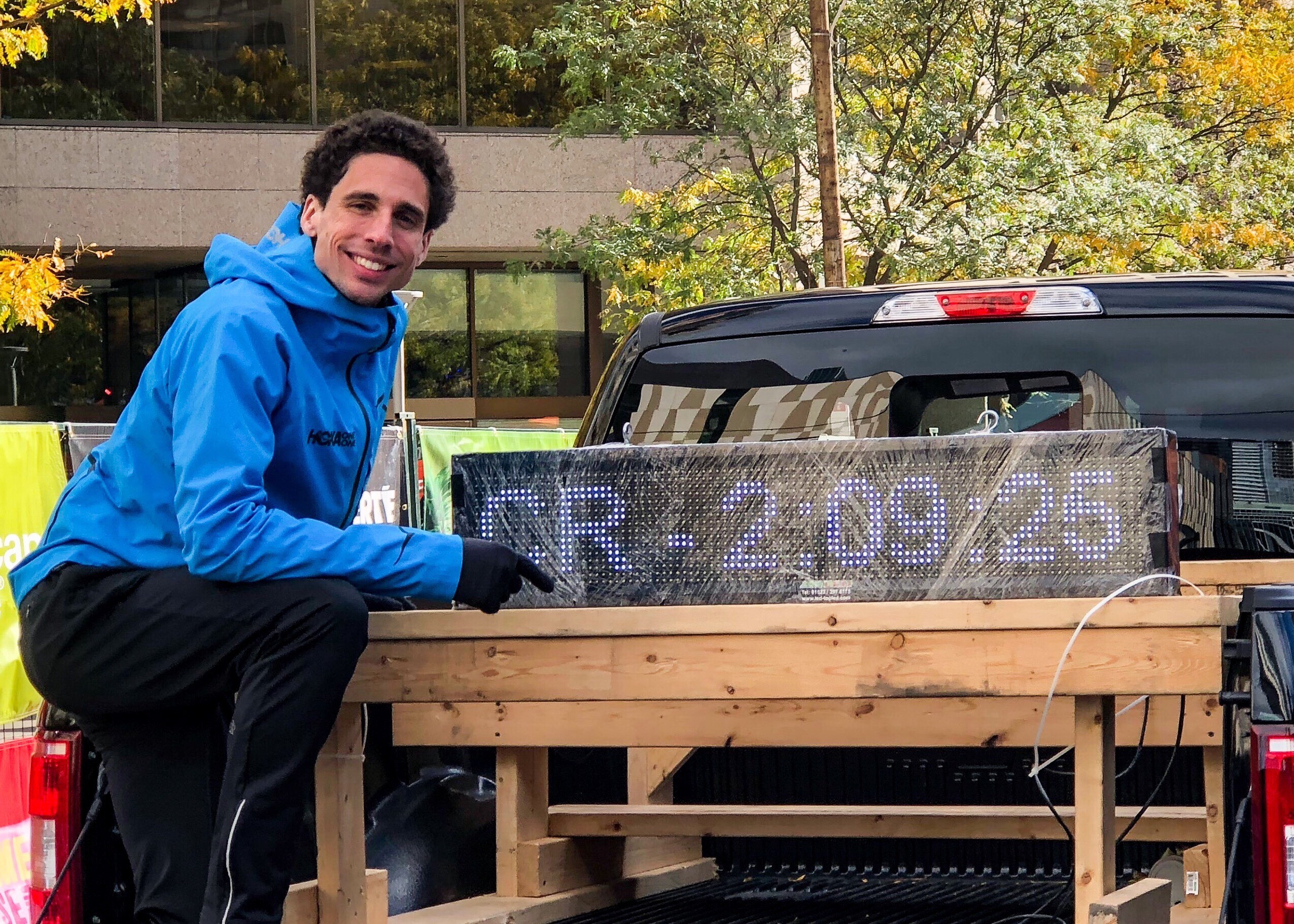
I also feel like I know what to expect. I may not feel the same as I did last year, but if I can go and have a similar experience, I will be happy.”
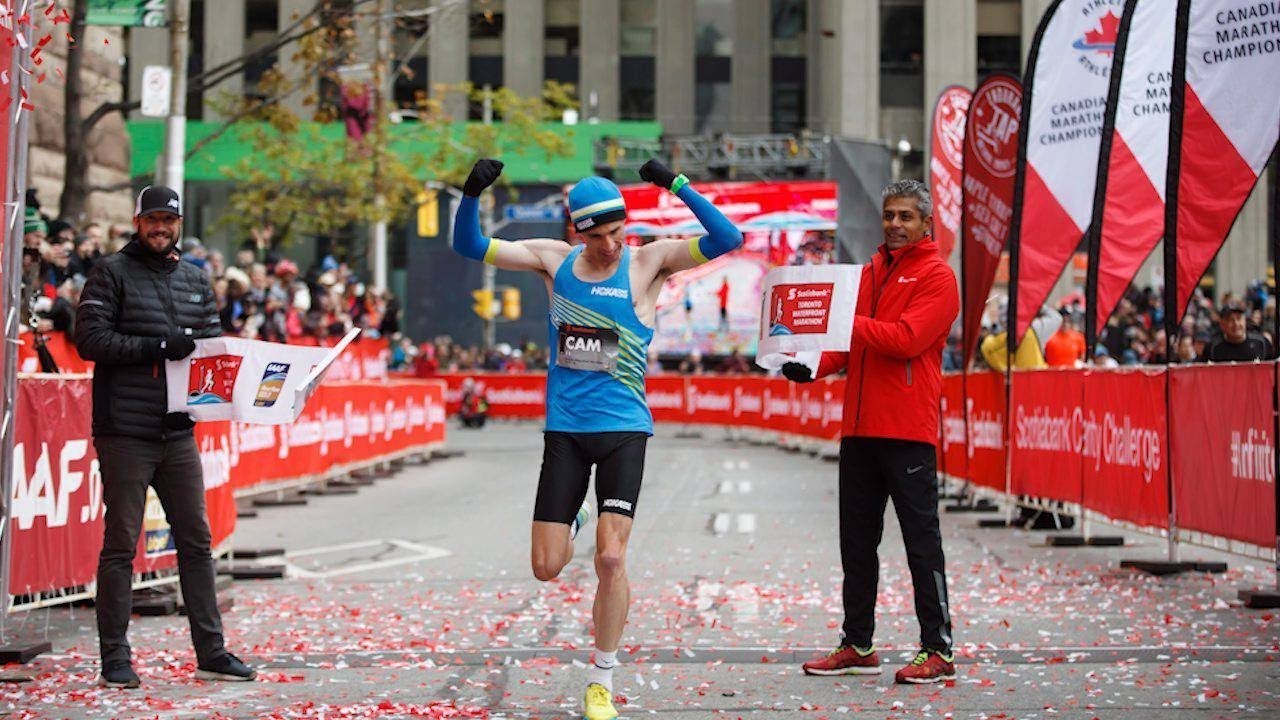
As an added bonus, the 2019 STWM is also the Canadian Marathon Championships, and therefore, an Olympic qualifier. The first Canadian male and female finishers will receive automatic pre-selection for the Tokyo Olympic marathon next August, provided they achieve the 2:11:30 (male) and 2:29:30 (female) standards.
If they do not go under those standards on October 20th, a place will still be held open for them until May 31, 2020 to allow them to attain the standard. Anyone else hoping to represent Canada in the marathon in Tokyo will have to wait until June 1, 2020 before selections are announced, so the Toronto Championship race offers a huge incentive.
(06/20/2019) ⚡AMPTCS Toronto Waterfront Marathon
The Scotiabank Toronto Waterfront Marathon, Half-Marathon & 5k Run / Walk is organized by Canada Running Series Inc., organizers of the Canada Running Series, "A selection of Canada's best runs!" Canada Running Series annually organizes eight events in Montreal, Toronto and Vancouver that vary in distance from the 5k to the marathon. The Scotiabank Toronto Waterfront Marathon and Half-Marathon are...
more...Julia "Hurricane" Hawkins 103-year-old is still setting records on the track
Julia "Hurricane" Hawkins is the oldest woman ever to compete on an American track.
And if this week's National Senior Games are any indication, the 103-year-old sprinter isn't slowing down any time soon.
Hawkins won gold in the 100-meter dash at on Tuesday with a time of 46.07 seconds — falling six seconds shy of her own over-100 world record but beating the second place finisher at the Games, 91-year-old Julia Manigo, by a full second. The Louisiana resident also ran the 50-meter dash Monday and finished in 21.05 seconds.

Hawkins was the only woman over 100 to compete in either event after a rare challenger, Hollyce Kirkland of Tennessee, withdrew due to an injury. She was also scheduled to compete in the 200-meter dash on Thursday.
"As you get older, you need challenges," Hawkins told The Albuquerque Journal last week. "You need passions. I think you need to have a lot of passions because they keep you alive and they keep you alert."

Hawkins has said she took up running because she thought it would be fun to try to run the 100-meter dash at the age of 100. Previous cycling experience — and tending to the acre of property she owns in Louisiana — has helped her stay fit, she's said.
"I hope I’m inspiring (others) to be healthy," Hawkins told KRQE-TV, "and to realize you can still be doing it at this kind of an age."
(06/20/2019) ⚡AMPYoung parents break world record by running half marathon every day for 77 days
A South Australian couple have broken a world record after completing a half marathon every day for 77 days.
Most couples with full-time jobs and three young children would have enough on their plate, but Justin McDonald, 37, and Kate McDonald, 34, from Penola in south-east South Australia, completed their record attempt at the weekend.
The effort was more remarkable considering Ms McDonald did not know what distance a marathon was 10 years ago.
"I thought a marathon was, like, something just for the Olympics. I didn't know that normal people just did that," she said. "I didn't know anything about running at all. Some people thought we were crazy."

After deciding she wanted to try running marathons, Kate found an online training program for beginners and the couple got started.

In 2013 they ran their first marathon. While running became an immediate passion, it took some time for Kate to be comfortable with the new obsession.
The goal 77 half marathons in 77 days. Two years ago, Kate started following a woman in Canada on social media who was looking to break the same 21k-per-day record that they would attempt.
"I just couldn't stop looking [at her account] everyday," Ms McDonald said.
"Everyday I wanted to see how she'd gone … I just needed to check how she was going."
Halfway through her attempt, Kate knew she wanted to go after the record herself.
At that stage, the couple was running five kilometres every day, but six months ago that then extended to 10km in preparation for their record attempt.
"When Kate first started running she would run early in the morning or late at night so we wouldn't be seen, but now that doesn't bother us at all," Justin said.
(06/20/2019) ⚡AMPLewiston teacher wins TCS New York City Marathon contest
When it's Julia Gibson's turn to take hall duty at Gieger Elementary School, she often tells students not to run. Interesting advice considering the fact that she's become quite the runner herself. Gibson has run in 5K and 10K races, as well as half and full marathons. She started running in 2011 after her mom died because of complications from type two diabetes.
"Took a couple years before I kind of figured out that I needed to get my health in check, so right before my 40th birthday I started running," said Gibson.
The fifth and sixth grade teacher has run 26.2 mile marathons around 13 times. She's currently preparing to run in the TCS New York City Marathon. TCS selected 50 teachers to run this year, as part of a contest, and Gibson was one of the winners. Her entire school was excited to hear the news.

"I usually hear people beeping the horns, 'Mrs. Gibson' yelling out the windows," said Gibson. "Cheering me on, or kids will see me Monday morning, 'hey Mrs. Gibson I saw you running over the weekend'."

Gibson runs four to five days a week to train and has been walking with her husband five days a week to help him get motivated to exercise more. The TCS NYC Marathon will be held November 3.
(06/20/2019) ⚡AMPTCS New York City Marathon
The first New York City Marathon, organized in 1970 by Fred Lebow and Vince Chiappetta, was held entirely in Central Park. Of 127 entrants, only 55 men finished; the sole female entrant dropped out due to illness. Winners were given inexpensive wristwatches and recycled baseball and bowling trophies. The entry fee was $1 and the total event budget...
more...99-year-old George Etzweiler did not finish the Mount Washington Road Race this year but is already planning to do it next year
George Etzweiler of State College, Penn., who is 99 years old, did not finish the Northeast Delta Dental Mount Washington Road Race this year, but he’s okay with that and says he’s coming back next year.
“George participated but did not finish,” he wrote, referring to Saturday’s race in New Hampshire. “He and his team decided to call it quits at about the 6.5-mile mark… I think it was a combination of the wind and also time he was at, which was around four hours and 10 minutes at that point.”
“He did seem in great spirits afterwards and said he’s coming back next year.”
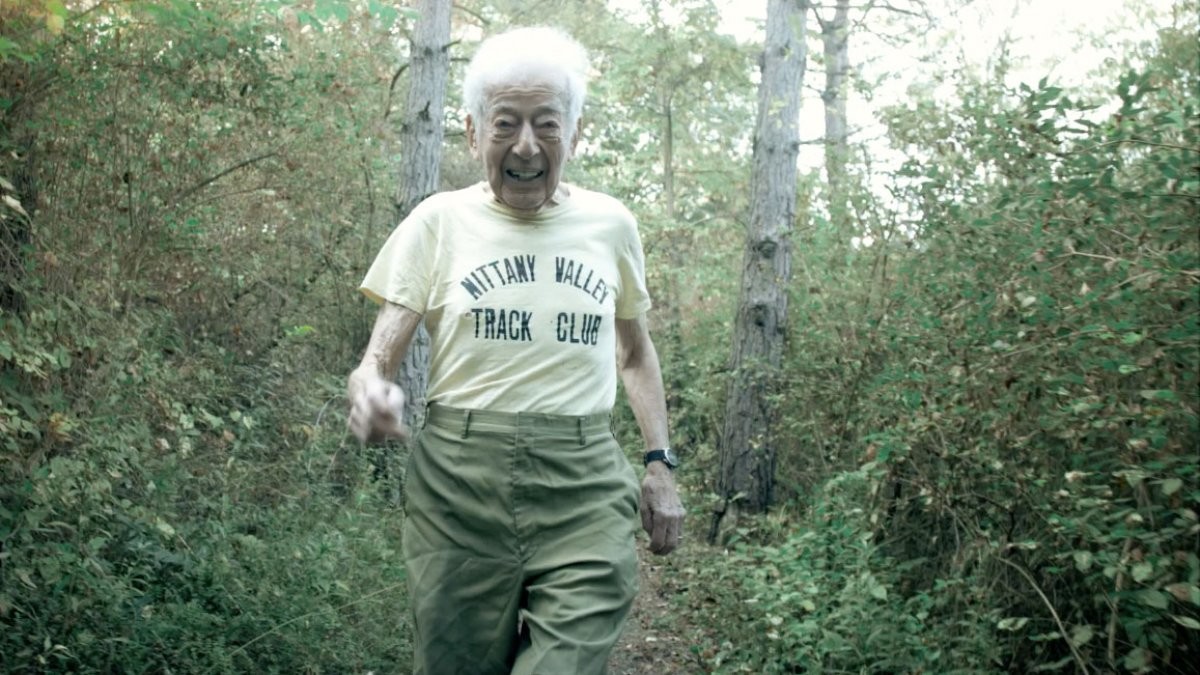
It was the 14th time Etzweiler, a retired engineer who took up running at age 49, has run this race, a 12K road ascent of Mount Washington, the highest peak in the northeastern United States.
This year’s race produced a first-ever tie, between Brittni Hutton and Heidi Caldwell, who broke the tape together in 1:16:17. Kim Nedeau took third place, in 1:16:49. In the men’s race, Eric Blake was the winner, in 1:02:52, followed by Francis Kamiri in second place (1:03:51) and Lee Berube in third (1:05:44).
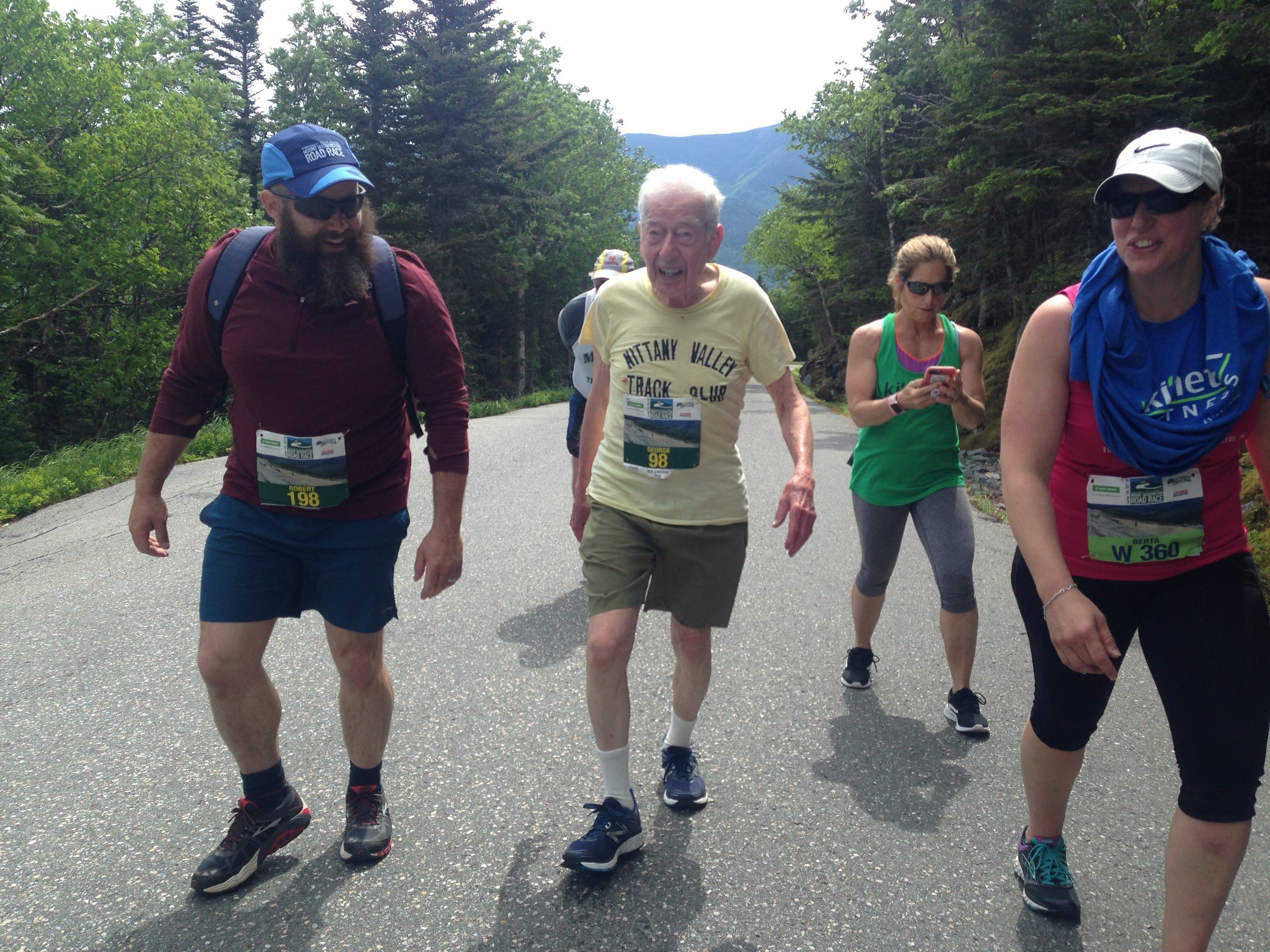
by Anne Francis
Mount Washington Road Race
The historic all uphill run draws thousands of runners from across New England, throughout the U.S., and from countries as close as Canada and as far away as Kenya, to make the grueling climb to the summit of the highest peak in the Northeast. As the race begins its second half-century, the challenging annual event is now officially an in-house...
more...Oakdale California mom is running the Chicago Marathon To Honor her late husband
Asking for help, let alone money is not something Erica (Henson) Lopez is comfortable or accustomed to doing. Yet as her life changed drastically in the fall of 2017, she learned to ask for help.
Little did she know at the time 18 years later she would run to honor the memory of her husband, Ernie. He lost his battle with a rare form of lymphoma on May 3, 2018. He was 47 years old.
“I started running for physical looks, but then when we got married we moved 3,000 miles away,” Lopez confided. “I didn’t have anybody and a week after moving to Virginia he got deployed. To keep my sanity and not cry from missing my family (we’re very close) and my new husband, I started running.”

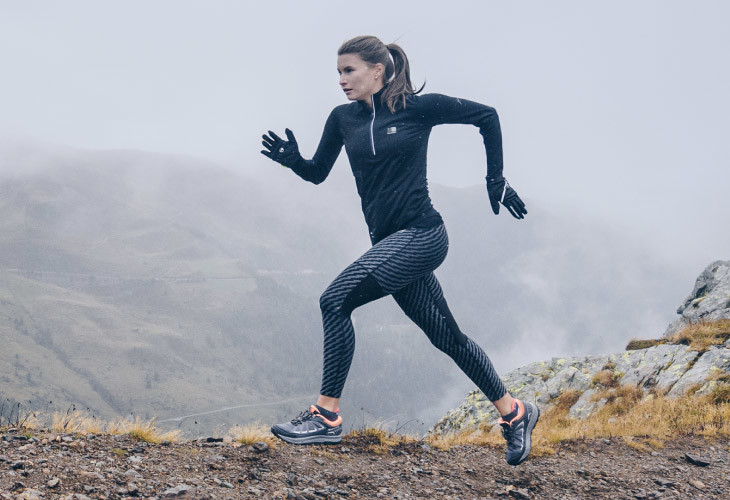
This fall the widow and mother to four-year-old daughter Carsyn, will lace up and run not one but two Full Marathons in honor of her late husband, Chief Petty Officer, Master at Arms, Ernie Lopez.
Now, with an opportunity to participate on the Tragedy Assistance Program for Survivor (TAPS) Team at the Bank of America Chicago Marathon, the Navy widow is looking for sponsors. A man in uniform was the reason she laced up a pair of sneakers for the first time in 2001 and come this October, he is the reason she will do it again.
(06/20/2019) ⚡AMPSouth Africa’s Caster Semenya has switched from the 3000m to 800m event at the Prefontaine Classic
“Caster’s representation requested that she be moved from the 3,000 metres (where she was originally entered) to the 800 metres, and we are happy to comply,” Prefontaine Classic meet director Tom Jordan said in a statement.
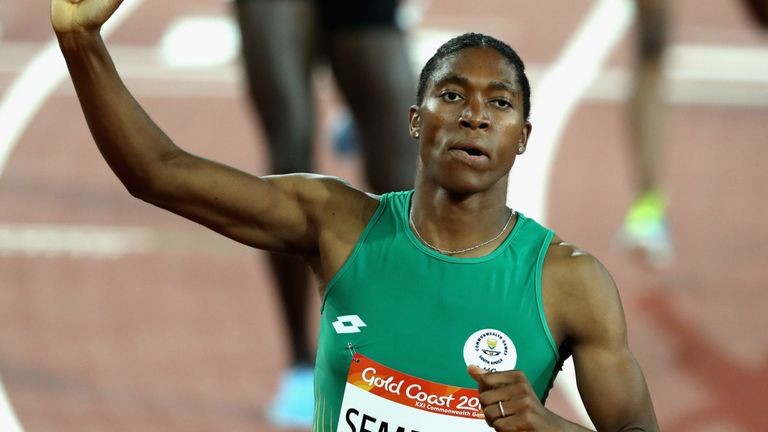
The Federal Supreme Court of Switzerland last week rejected the International Association of Athletics Federations (IAAF) bid to impose the female eligibility regulations immediately on Semenya.
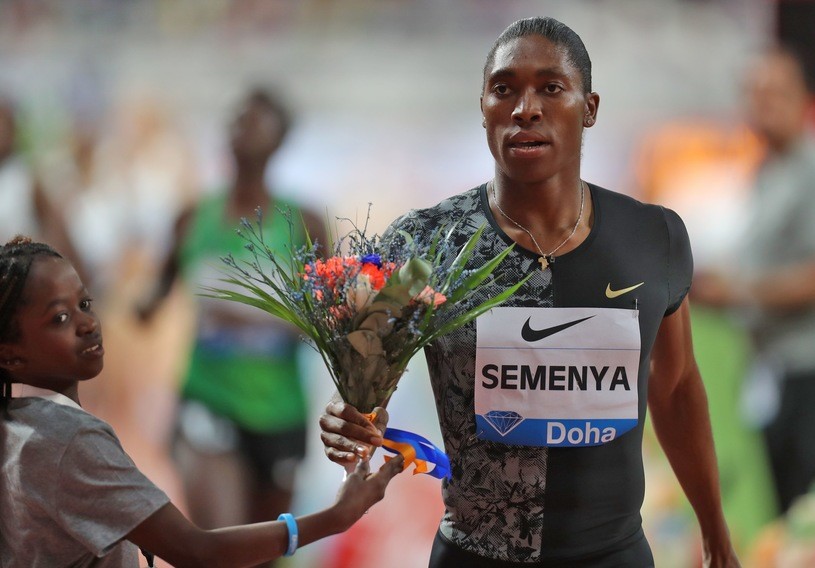
The ruling meant Semenya was allowed to compete without taking any testosterone-lowering medication. The 28-year-old, however, was still not allowed to race in the women’s 800m event in Rabat on June 16 initially.
The double Olympic 800m champion was given permission to run the 800m too late for her to adequately prepare and make travel arrangements - meaning she could not take up the invite to compete.
(06/19/2019) ⚡AMPPrefontaine Classic
The Pre Classic, part of the Diamond League series of international meets featuring Olympic-level athletes, is scheduled to be held at the new Hayward Field in Eugene. The Prefontaine Classicis the longest-running outdoor invitational track & field meet in America and is part of the elite Wanda Diamond League of meets held worldwide annually. The Pre Classic’s results score has...
more...94-years-old Maureen has completed her 25th Marathon
Maureen, from Drombane, has yet again faced her yearly challenge and completed her 25th consecutive Marathon in Dublin. At 94 years of age, she still enjoys participating with all the other women who run or walk this event each year. She is an inspiration to many who have participated over the years and her amazing zest for life and her endurance has undoubtedly encouraged many more elderly folk to take up the task.
Maureen insists that self enjoyment is paramount, “if you enjoy doing something then it becomes easy so I look forward to this marathon each year and of course I still do my daily walk around home which keeps me fit in the meantime”.
Maureen is proud of her achievements and rightly so but she states “I have made it to number 25. 25 Marathons completed, each one I have enjoyed throughly, I loved the build up each year. The excitement of it all and of course raising funds that assist others is what its really all about. For me now I think its time to hang up the runners on this event”.
Not many can say they are going to retire at 94 and actually do so but Maureen insists that she will still do her daily walk and support Upperchuch hillwalking club to the best of her ability.
(06/19/2019) ⚡AMPKenyan Caroline Rotich is hoping to do something only one other female runner has done, win both the Boston Marathon and the BAA 10K this Sunday
Kenyan Caroline Rotich will try to accomplish something only one other female runner has done: win both the Boston Marathon and the Boston Athletic Association 10K.
Rotich, who won the Marathon in 2015, came close to the tandem victory last year but finished second in the 10K.
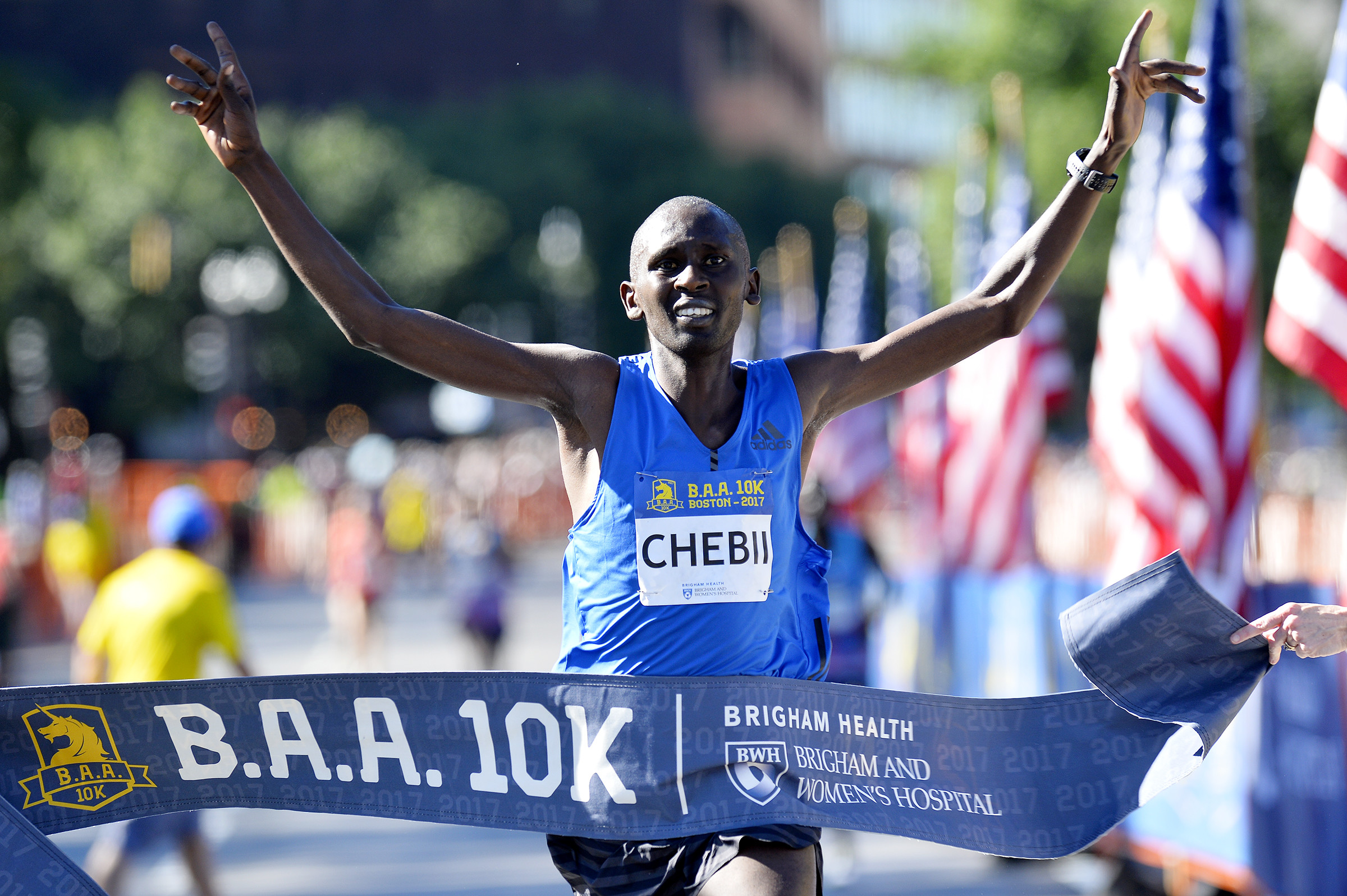
She will have another chance as she joins a multitude of runners on the 6.2-mile course through the Back Bay. The race will start and end on Charles Street, and runners will see Boylston, Arlington, and Babcock streets as well as Commonwealth Avenue along the way.
A total of $48,500 will be handed out in prize money, with $10,000 going to the first-place finishers.
Competing against Rotich will be fellow Kenyan Fancy Chemutai, whose personal-best 10K time of 30:06 stands at the top of the women’s elite field. Other noteworthy runners in this group include 2016 Olympian Betsy Saina, reigning BAA 5K champion Monicah Ngige, and Sharon Lokedi, the 2018 NCAA 10,000 meters champion. Mamitu Daska of Ethiopia, who has twice won the BAA 10K, also will compete.

On the men’s side, two two-time champions of the BAA 10K will compete in Stephen Sambu (2013, 2014) and Daniel Chebii (2016, 2017). Neither has the best personal time in the field, however. That belongs to Geoffrey Koech, whose 27:18 tops the 21-person elite group.
Also running will be Abdi Abdirahman, a four-time US Olympian who finished first in the 40-44 age group at this year’s Boston Marathon.
(06/19/2019) ⚡AMPby Nick Kelly
B.A.A. 10K
The 6.2-mile course is a scenic tour through Boston's Back Bay. Notable neighborhoods and attractions include the legendary Bull and Finch Pub, after which the television series "Cheers" was developed, the campus of Boston University, and trendy Kenmore Square. ...
more...Darrell Christensen will be the oldest runner in the Grandma's Marathon as he is set for his eighth race
Darrell Christensen, of Bloomington, Minn., is 81 years old and age hasn’t stopped him from running Grandma’s Marathon.
Christensen will be the oldest runner pounding the pavement Saturday, and he’s looking forward to it.
“I love Grandma’s Marathon. I think it’s a wonderful race,” he said. “It’s just fun coming to Duluth for a few days with some friends and other runners.”
Christensen didn’t start running until he was 60, after he retired. He said he would see people running around a lake near where he lived in Bloomington and he decided to try it himself.
“I couldn’t run half a mile to start with,” Christensen said. “Eventually, by the end of that summer, I could run once or twice around the lake for three or four miles.”
The next year, Christensen said, he ran a 5K and a 10K. A year later, in 1999, he ran a 10-mile race, and the following year, he ran his first marathon.

“I didn’t do so well and I was very disappointed, so I didn’t run another marathon for three years,” Christensen said.
He said that after his first marathon he started training with a running group, and in 2003 he tried running a marathon again and qualified for the Boston Marathon.
“So I went from my first marathon and doing poorly to my next marathon three years later and qualifying for Boston,” Christensen said.
Christensen ran the Boston Marathon twice, once in 2004 and once in 2008.
“I never thought I would qualify to run in the Boston Marathon, but it was a great experience,” he said.
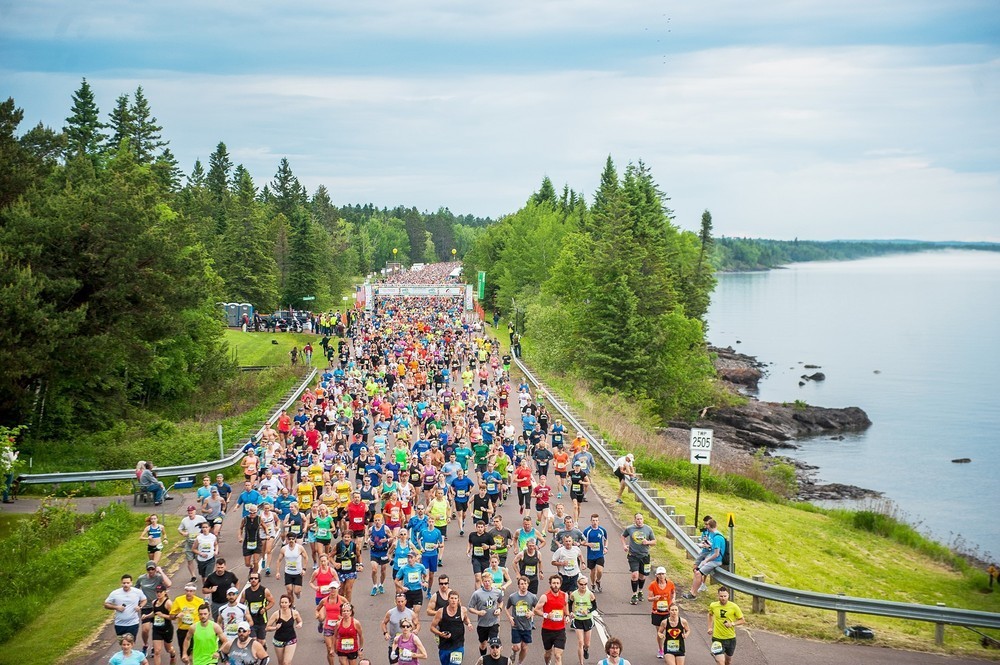
Christensen said this will be about his eighth time running in Grandma’s, and even though he doesn’t have high goals set, he does have one.
“A few years ago I did under four hours, but last year I did poorly and was over six hours,” Christensen said. “I would like to break six hours this year.”
Christensen said he wasn’t very prepared last year. A few injuries this year sidelined him for a week, but those injuries have healed and he feels prepared for Saturday, he said.
Christensen said in the past he has relied on those handing out water and other things for nutrition along the route. This year he plans on bringing as much with him as he can as well as having his wife meet him along the course with more. Christensen also learned from his mistakes last year regarding his pace.
“Last year I started out fast,” he said. “I hadn’t run a marathon in three years at that point, so I learned I should not come out at a five-hour pace when I know I can’t do it. So slower to start and faster as I progress.”
Christensen said he may stop running marathons in a few years, though he plans to run as long as he can.
“It isn’t my goal to stop running,” he said. “If I am still able and running, I’ll certainly try Grandma’s Marathon again.”
(06/19/2019) ⚡AMPGrandmas Marathon
Grandma's Marathon began in 1977 when a group of local runners planned a scenic road race from Two Harbors to Duluth, Minnesota. There were just 150 participants that year, but organizers knew they had discovered something special. The marathon received its name from the Duluth-based group of famous Grandma's restaurants, its first major sponsor. The level of sponsorship with the...
more...Hopkinton the starting line for the Boston Marathon hopes to create the International Marathon Center
Hopkinton officials and the nonprofit 26.2 Foundation hope to create a similar experience to Cooperstown, New York, with an International Marathon Center, which will include, a museum with interactive exhibits, hall of fame, classrooms and a conference center.
With the Boston Marathon starting in town since 1924, many view Hopkinton as the Cooperstown of marathon running. But outside of a couple days a year, there’s not much to show for it.
Cooperstown, New York, is the well-known home to the National Baseball Hall of Fame and Museum, which draws about 300,000 visitors each year to a small village in between the Adirondacks and Catskills mountains.

For one day a year, the world watches the small town of Hopkinton, Mass for the start of the Boston Marathon.
"Our schools have murals in them, we have Kenya Day -- that happens before the marathon, the kids grow up speaking Swahili and singing songs when the Kenyan runners come in," Select Board Member John Coutinho said.

Organizers are hoping their new proposal for the International Marathon Center will make Hopkinton a year-round international Mecca for all kinds of high-endurance athletes.
"This training center would have the treadmills and everything with the breathing apparatuses, but also classrooms and lecture halls," Coutinho said.
Tim Kilduff was the race director of the Boston Marathon in the 1980s, he now runs the 26.2 Foundation and the center is his brainchild.
"There's nothing quite like what we're talking about in the world, at the moment," Kilduf said.
In addition to the training facility, the center would house a hall of fame and museum, and an educational center for children.
"Very active, interactive exhibits, for example," Kilduf said. "They need to change. We're talking about creating an institution that, in terms of its programming, rivals the Museum of Science."
And that would just be phase one. Phase two might be housing for the athletes. Hopkinton doesn't currently have a hotel.
Right now the plan is for it to be privately funded. Boston Athletic Association CEO Tom Grilk says the organization would certainly support it.
Photos are rendering of the proposed center.
(06/19/2019) ⚡AMPBoston Marathon
Among the nation’s oldest athletic clubs, the B.A.A. was established in 1887, and, in 1896, more than half of the U.S. Olympic Team at the first modern games was composed of B.A.A. club members. The Olympic Games provided the inspiration for the first Boston Marathon, which culminated the B.A.A. Games on April 19, 1897. John J. McDermott emerged from a...
more...





